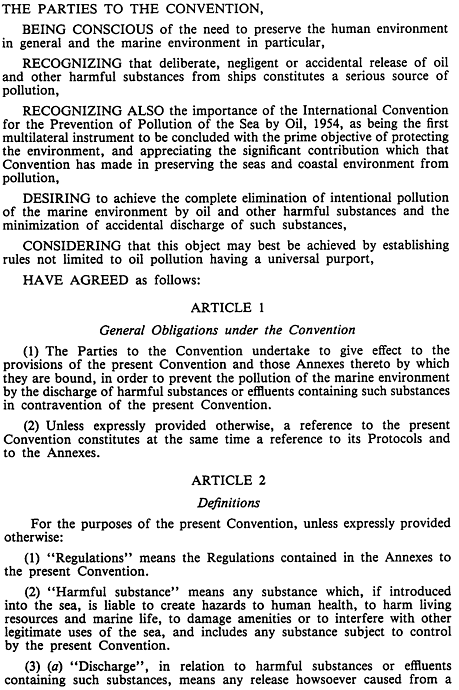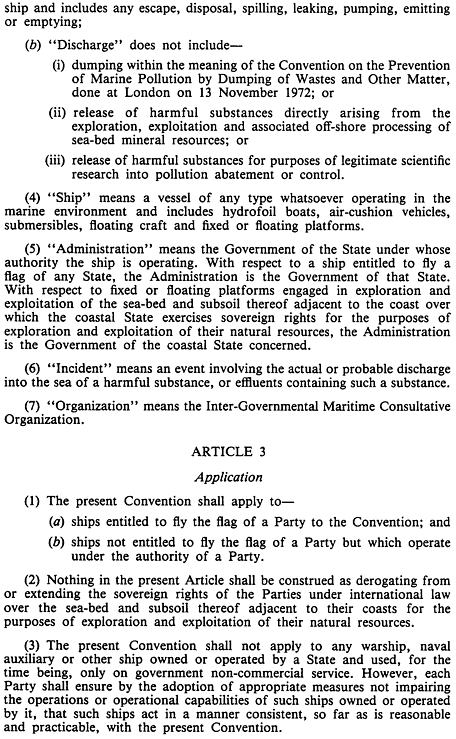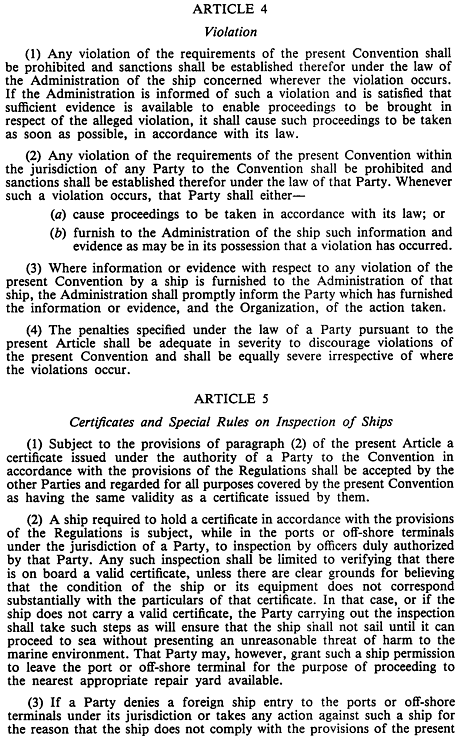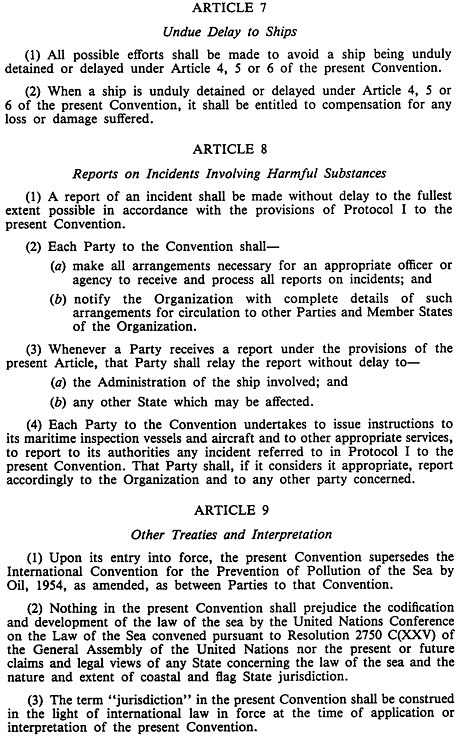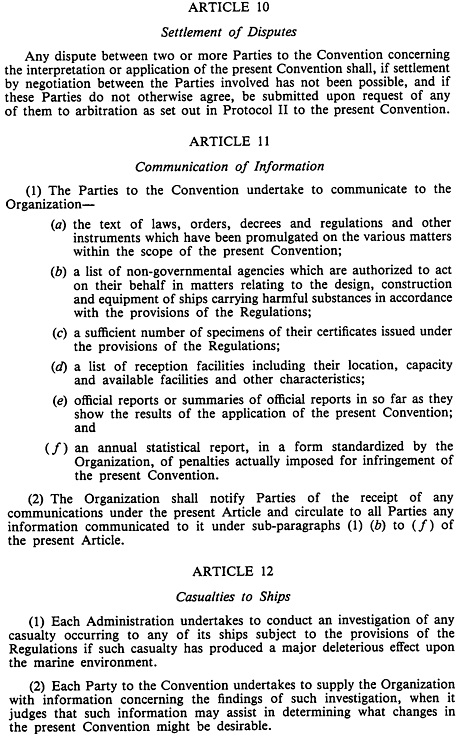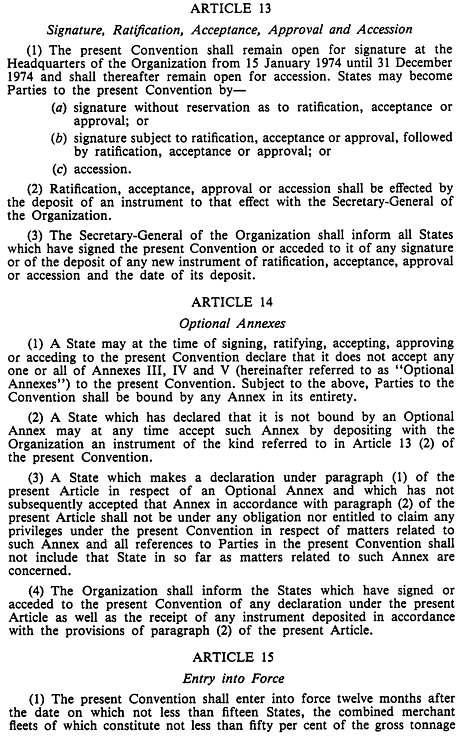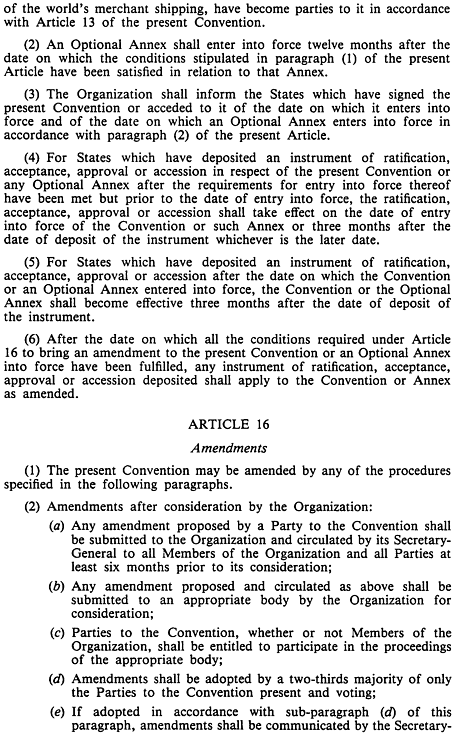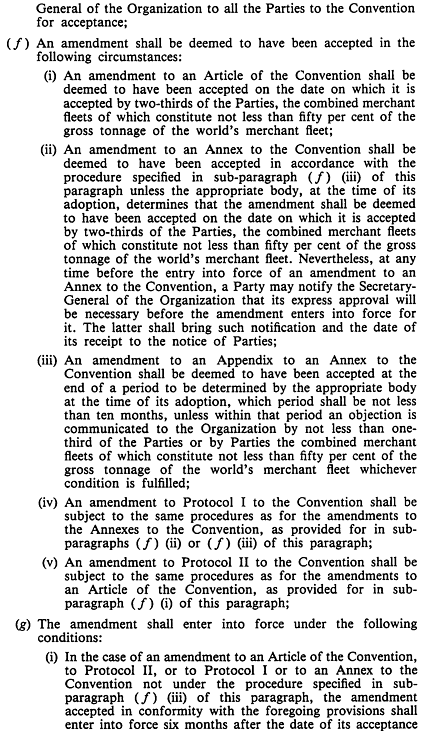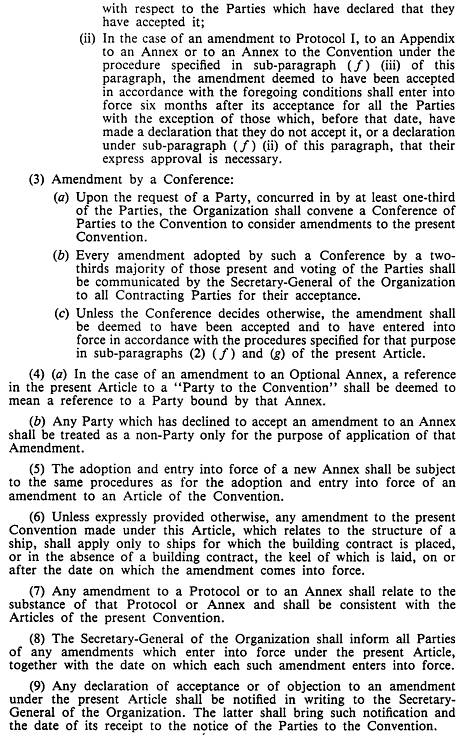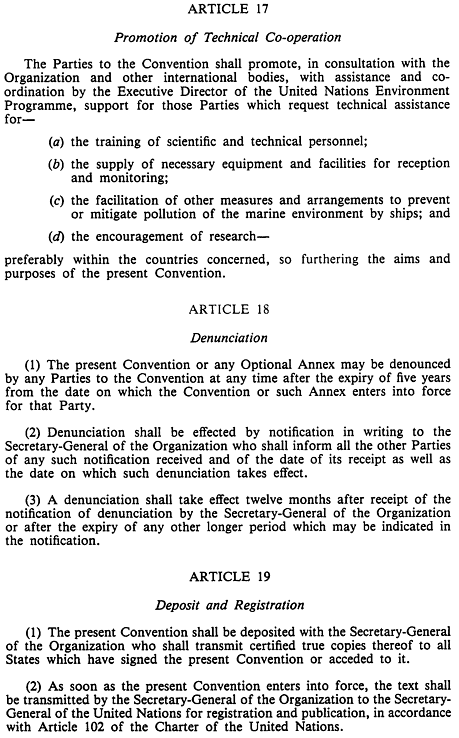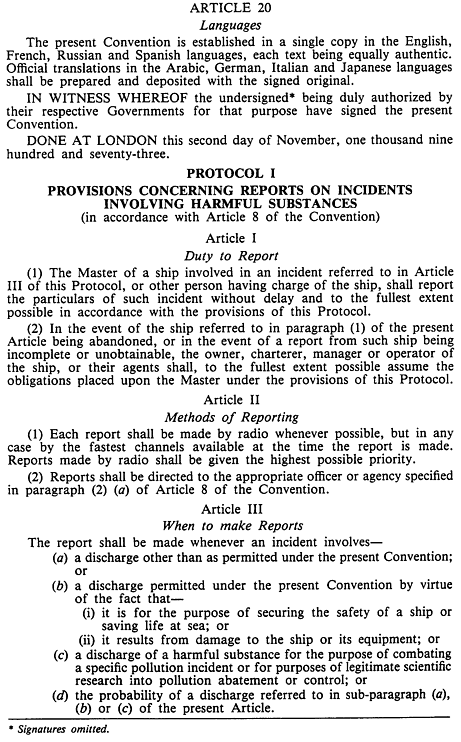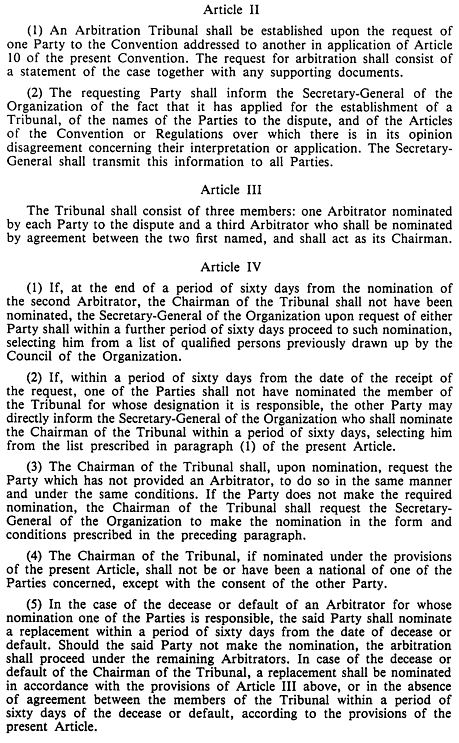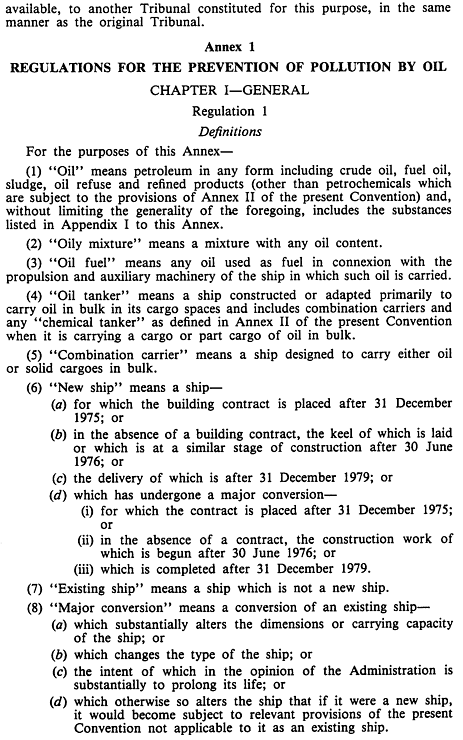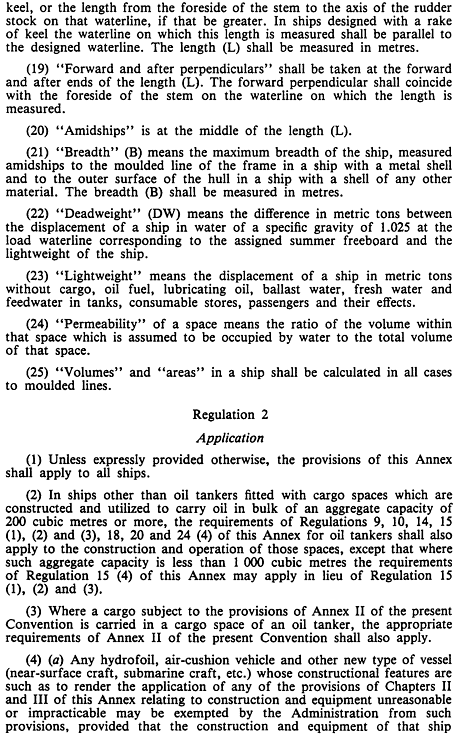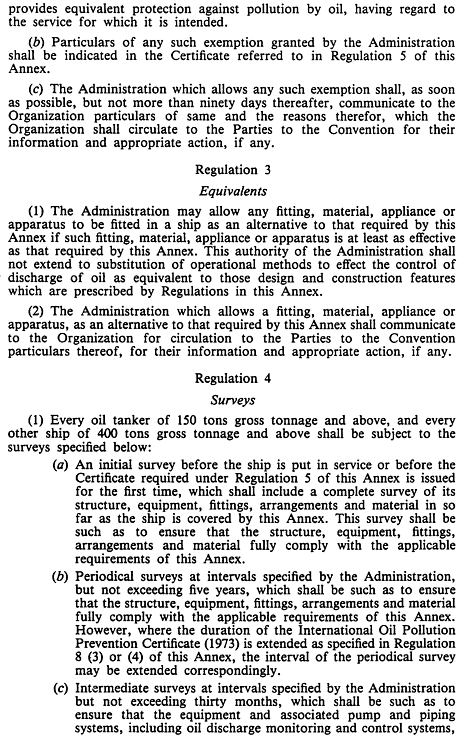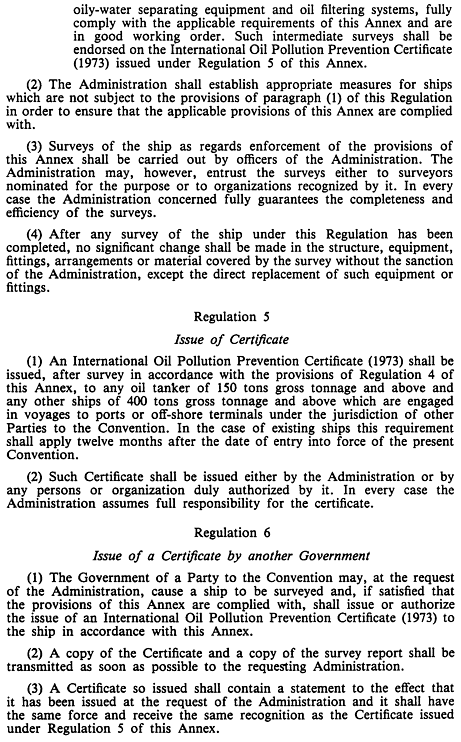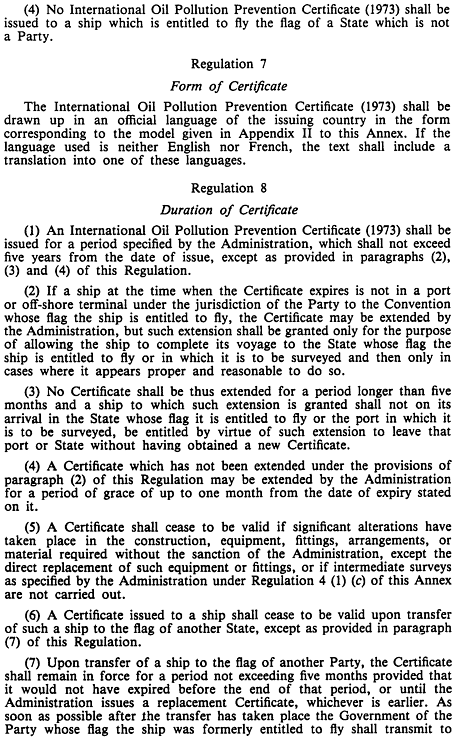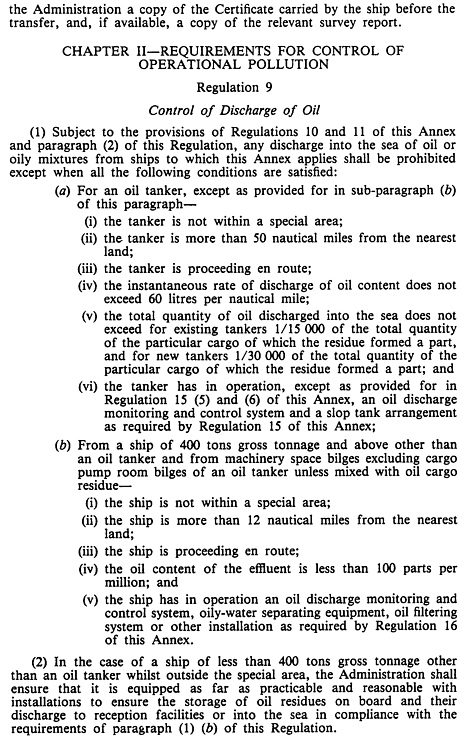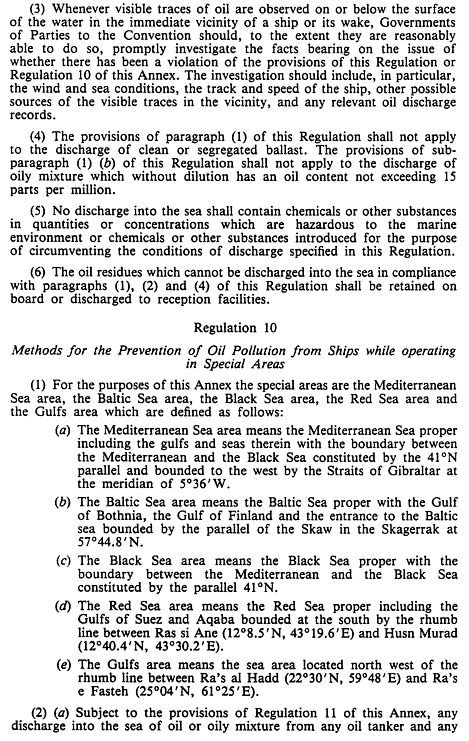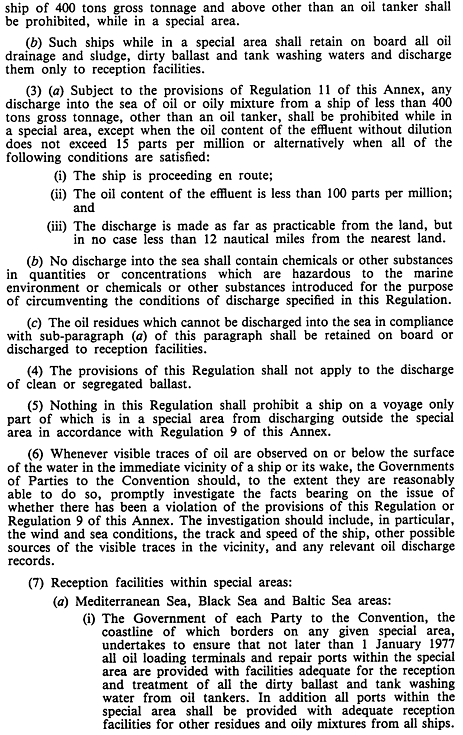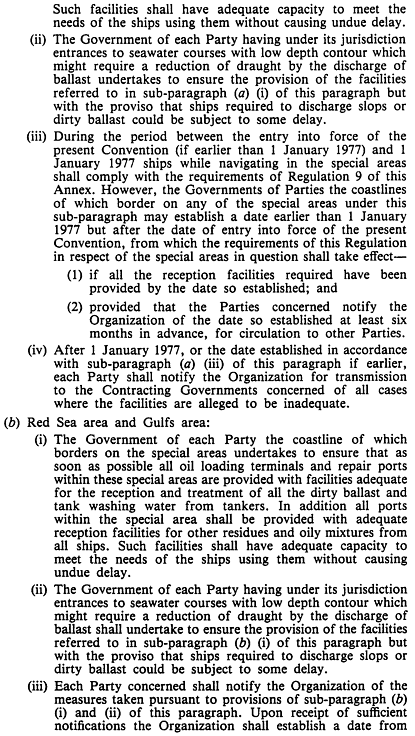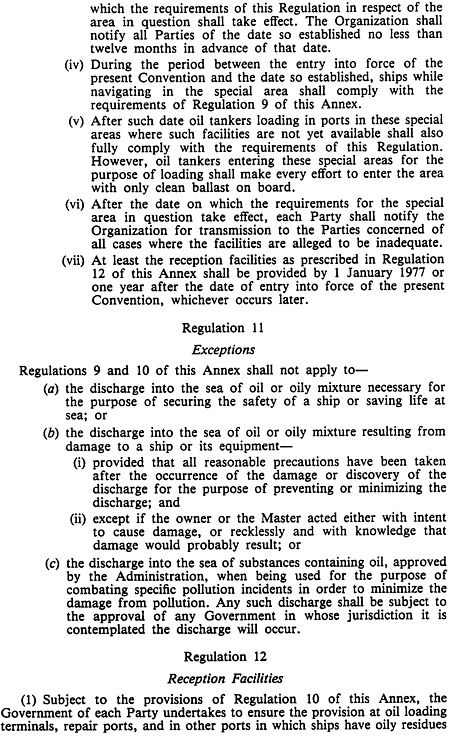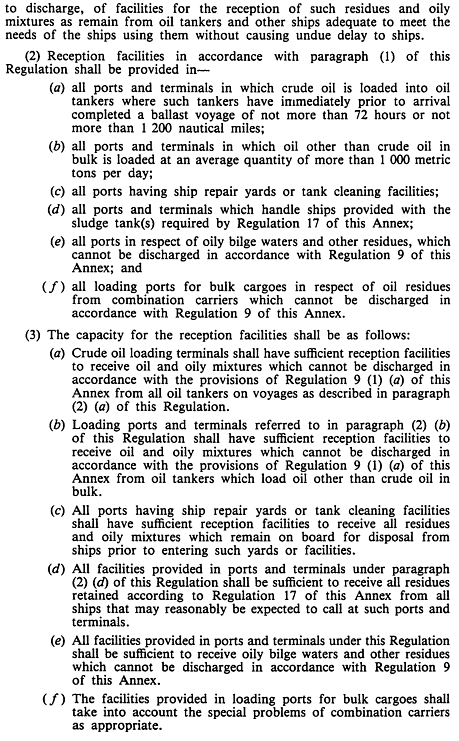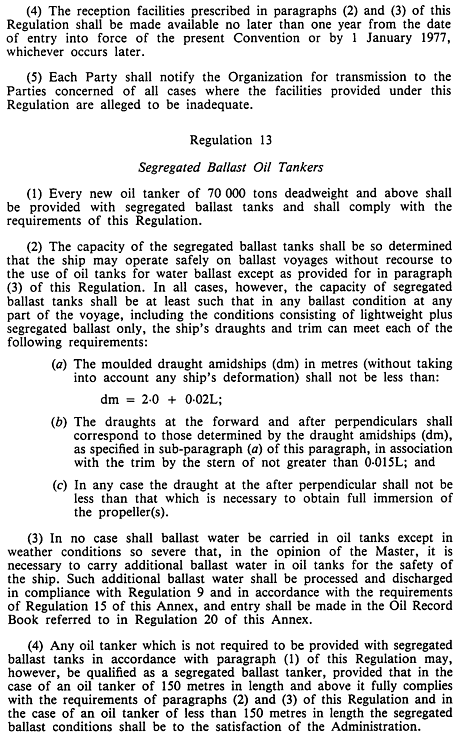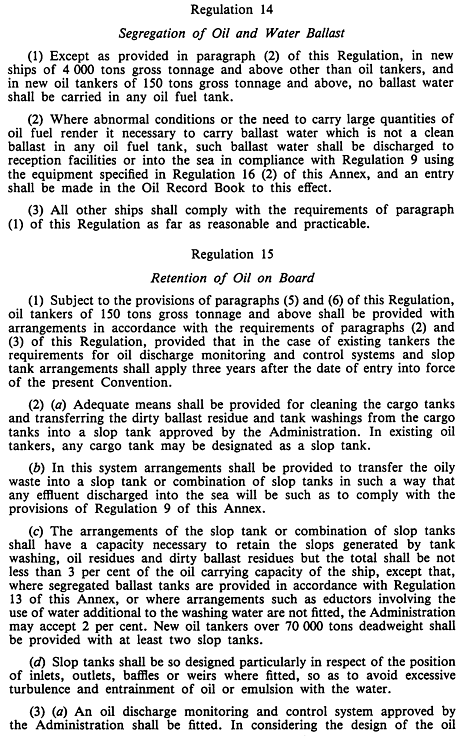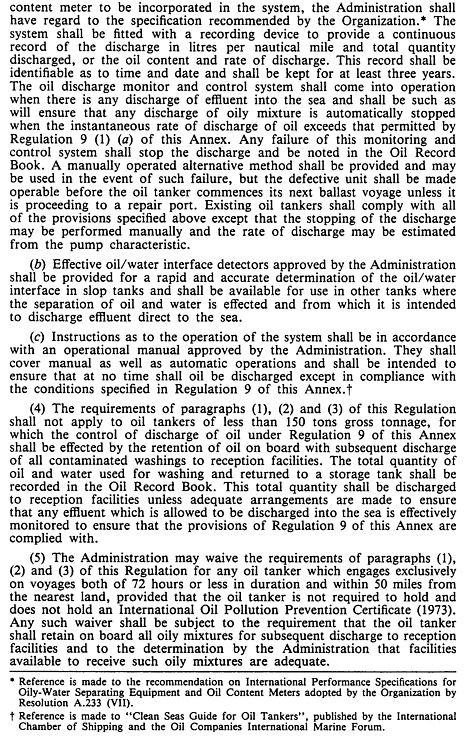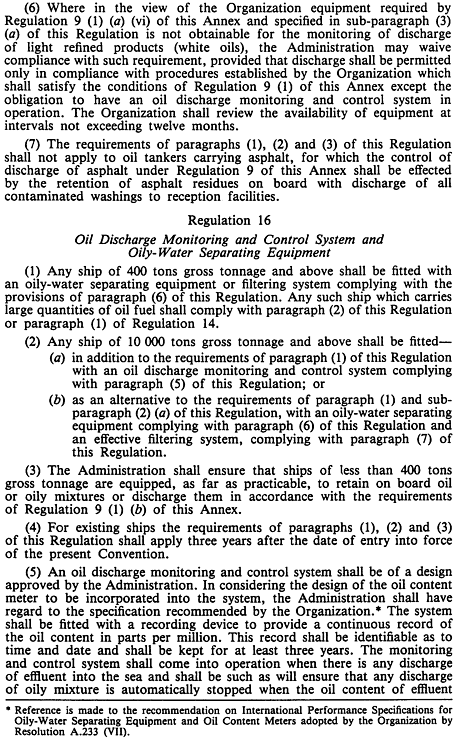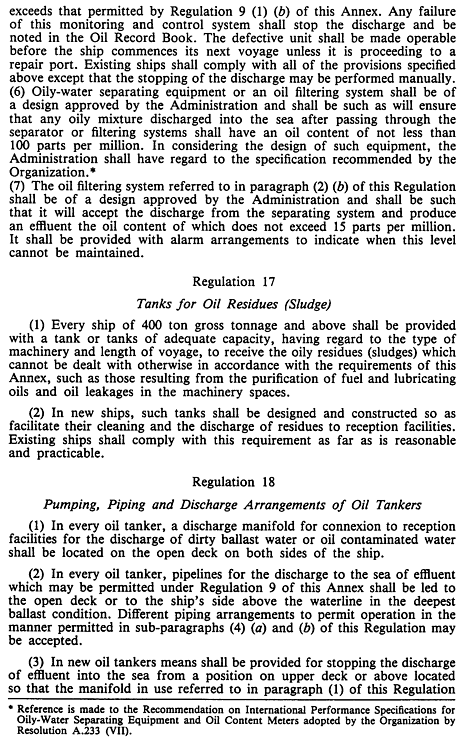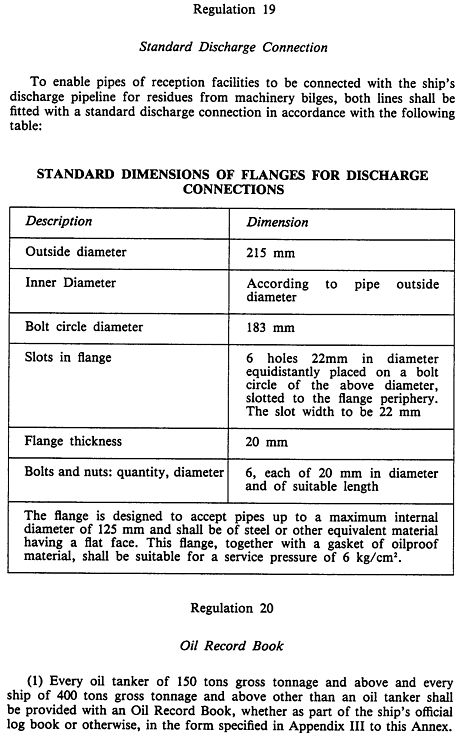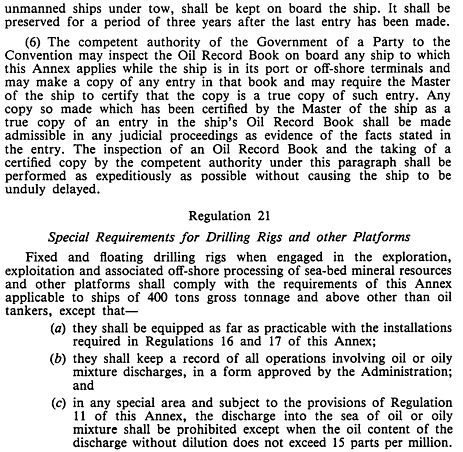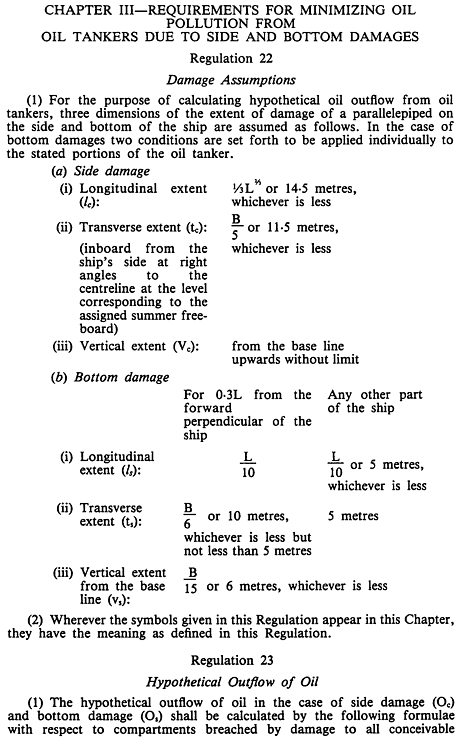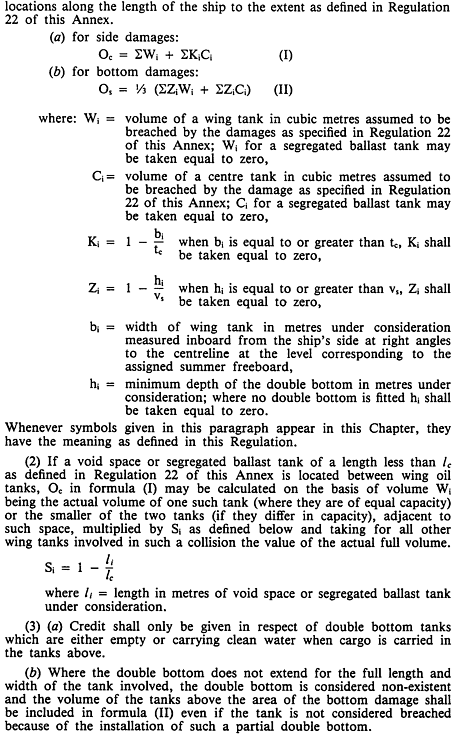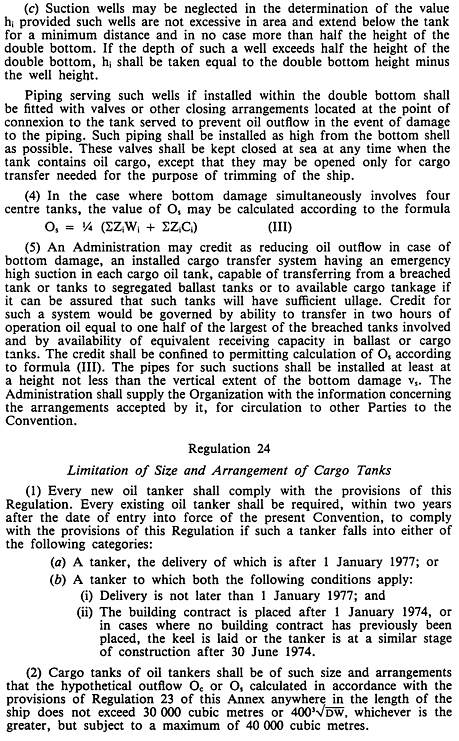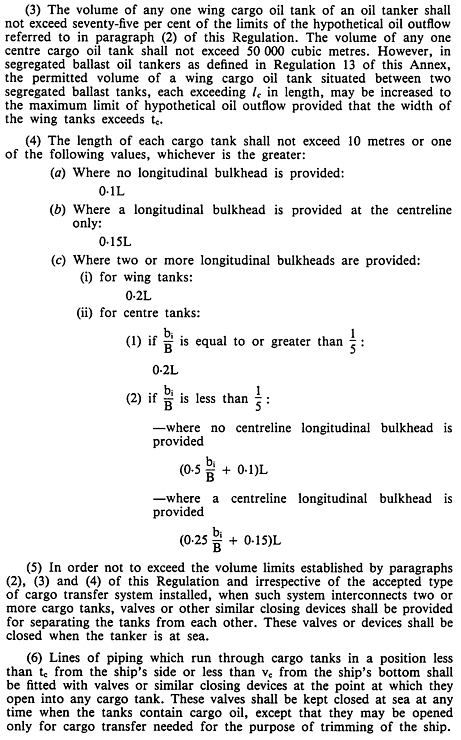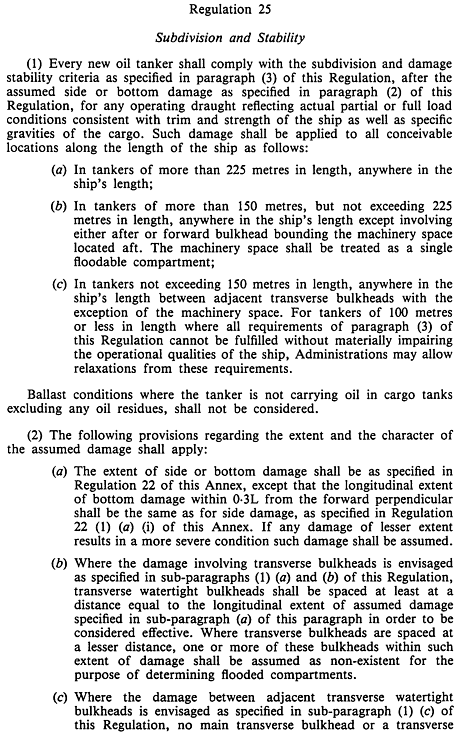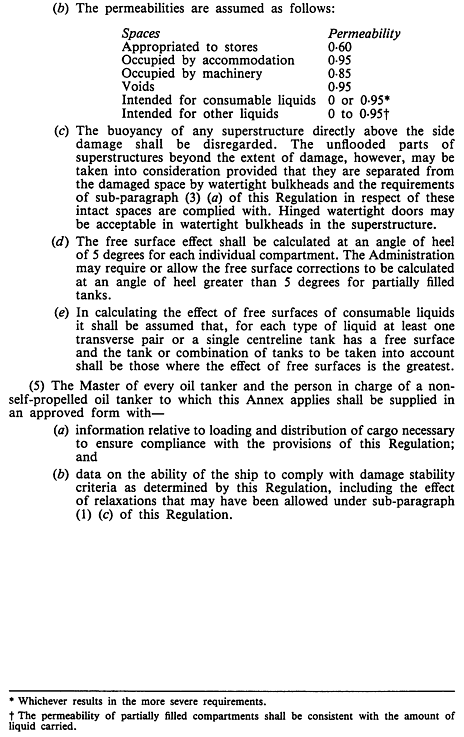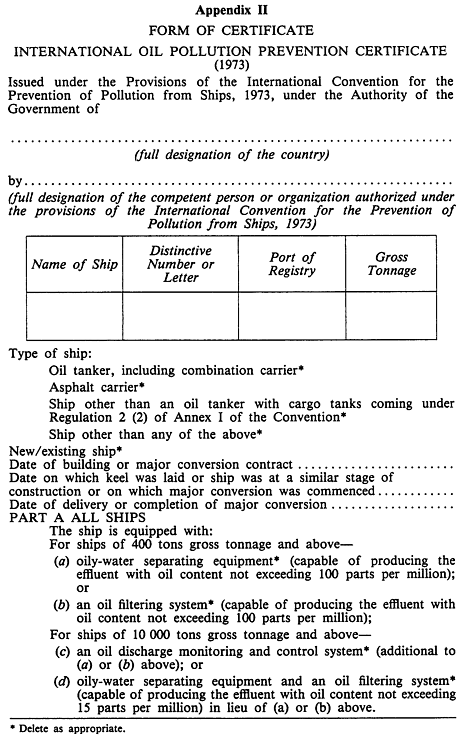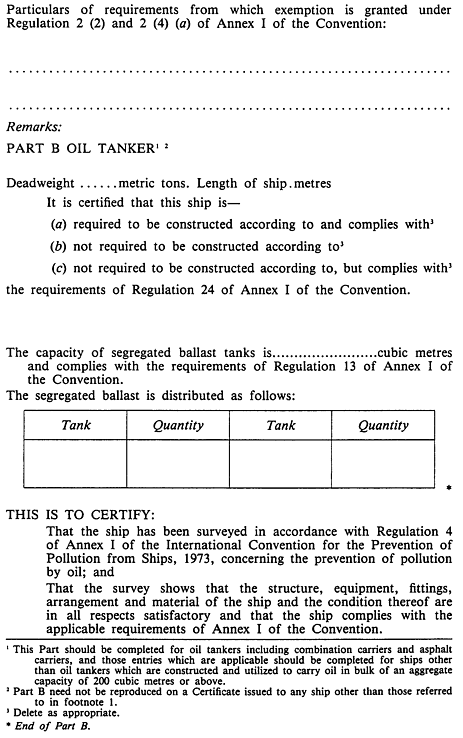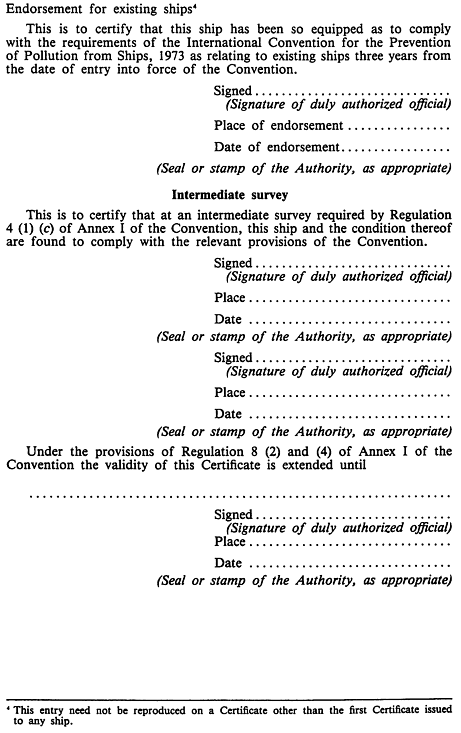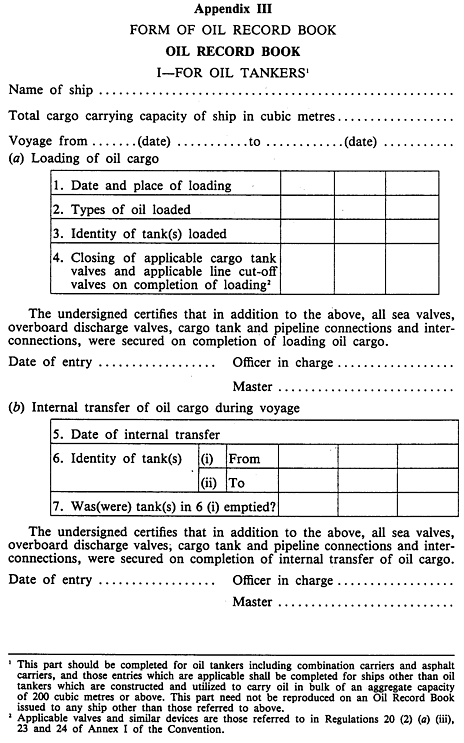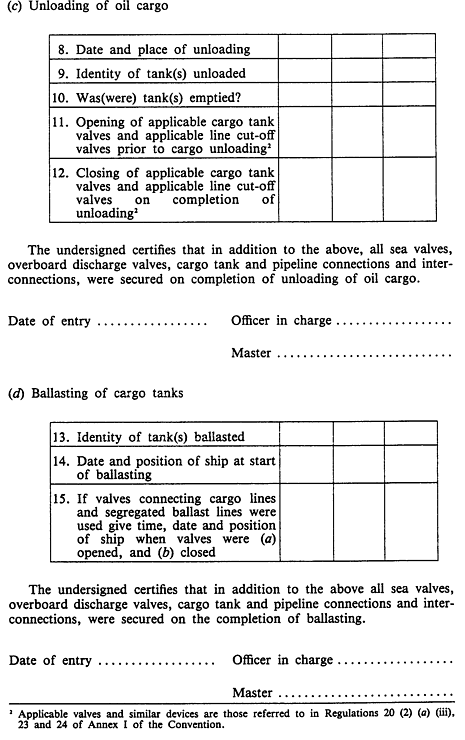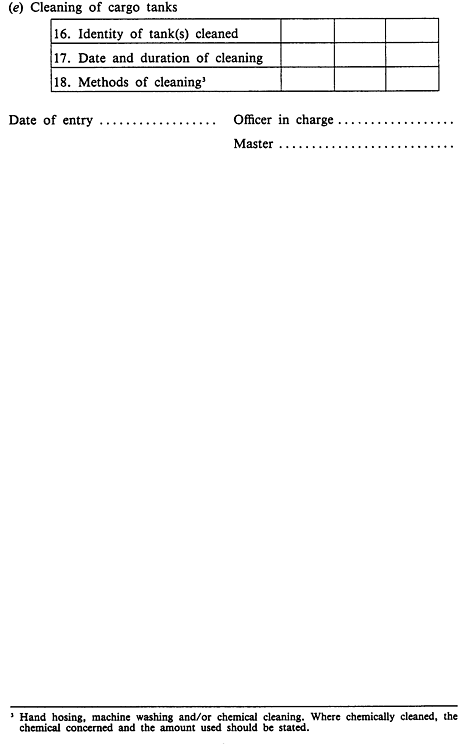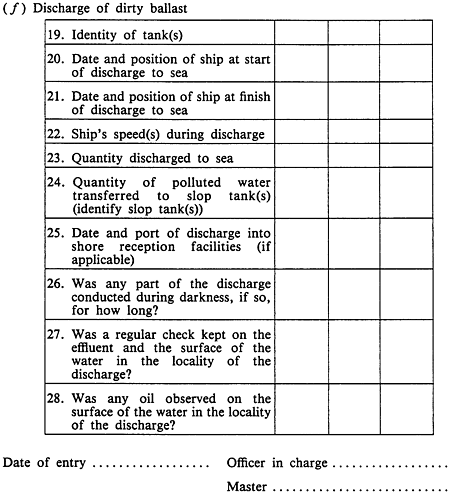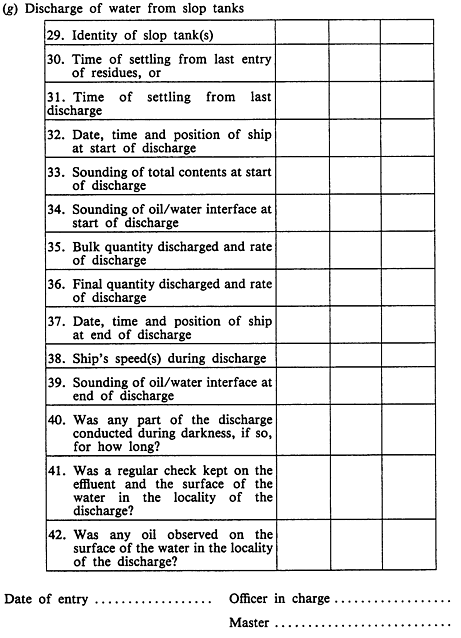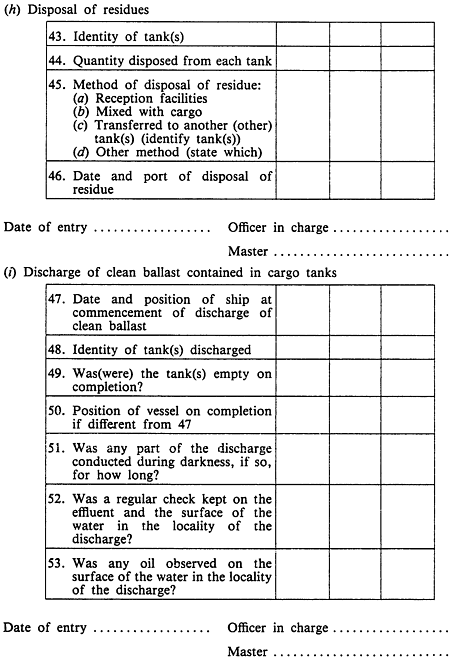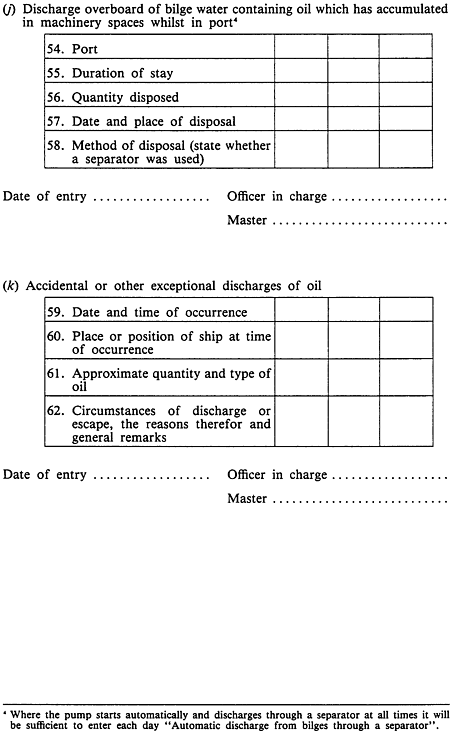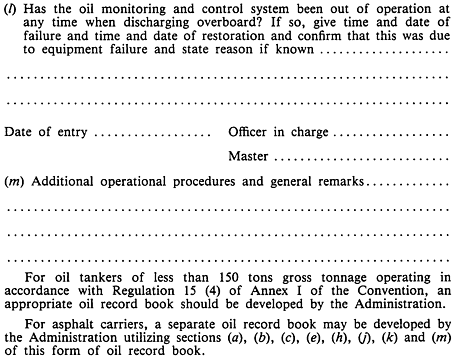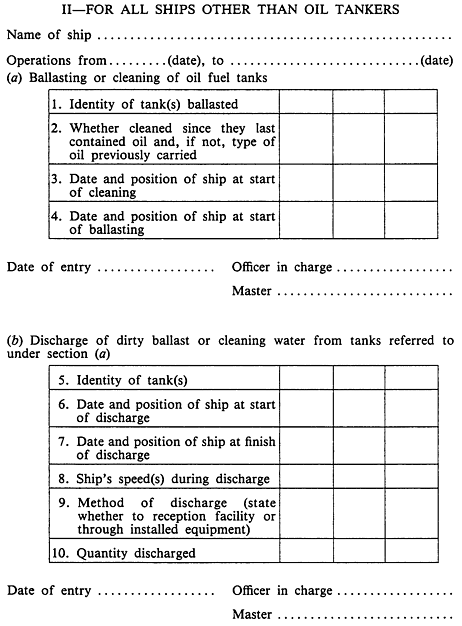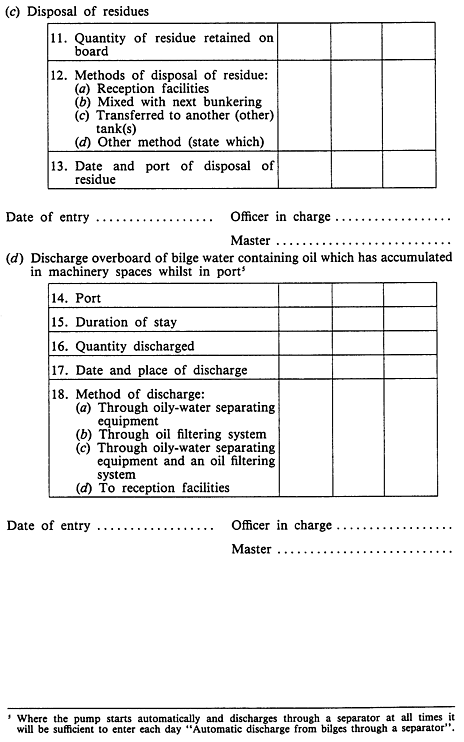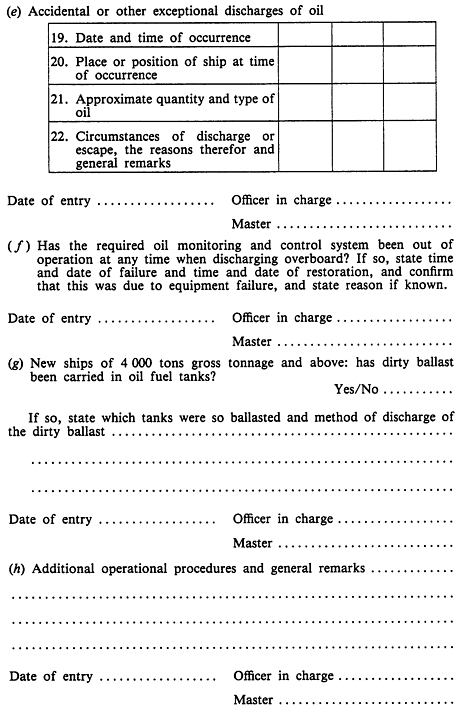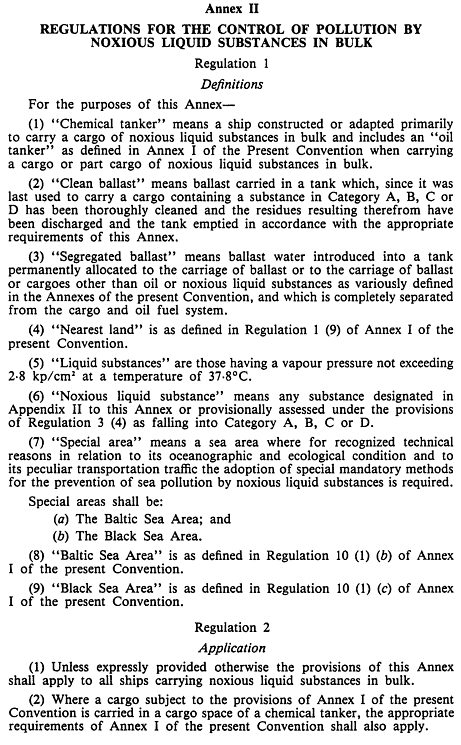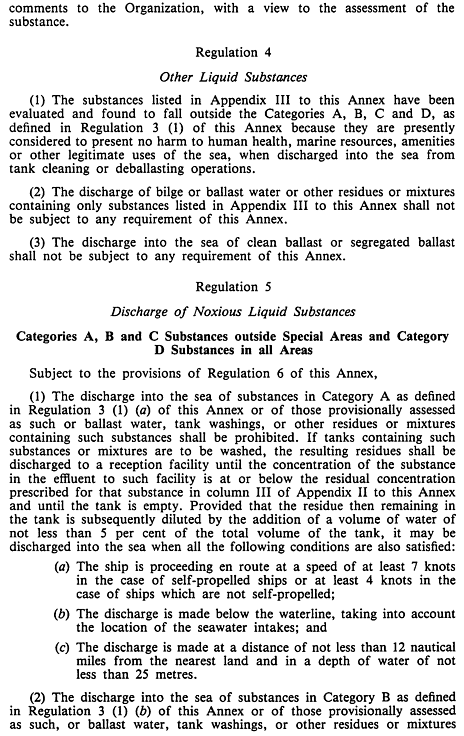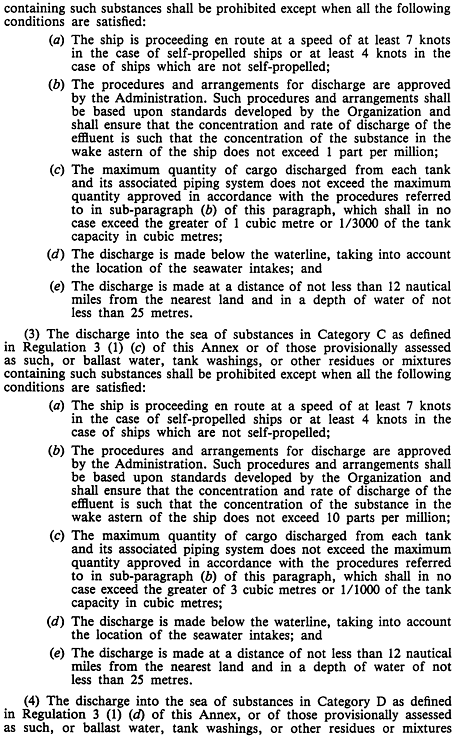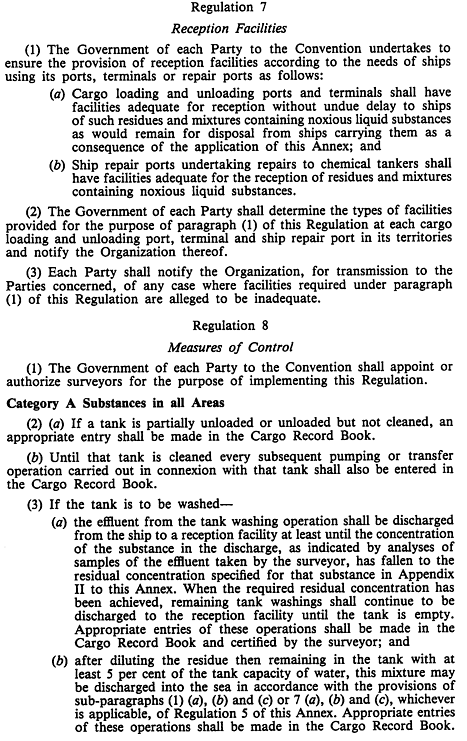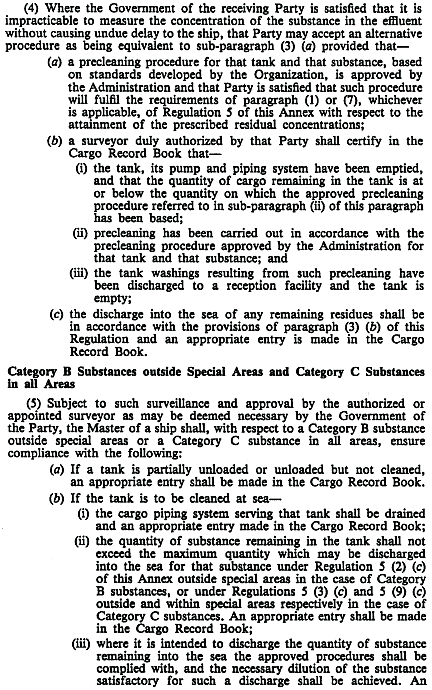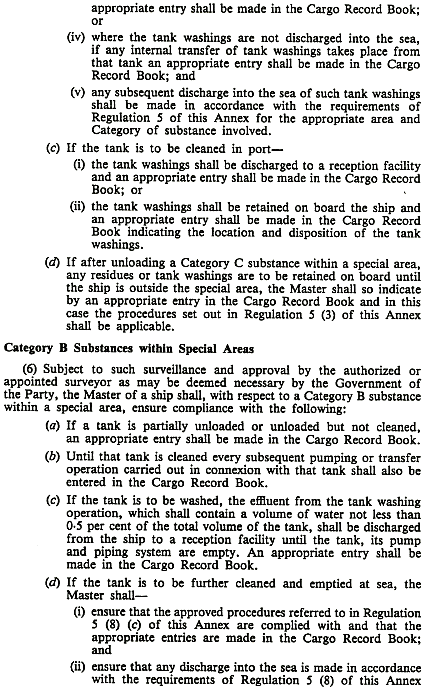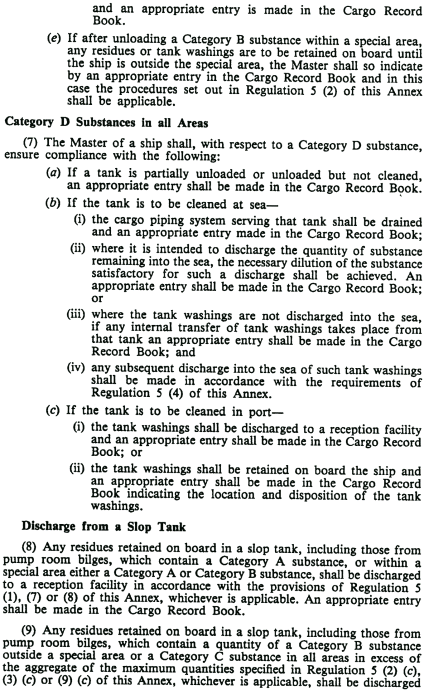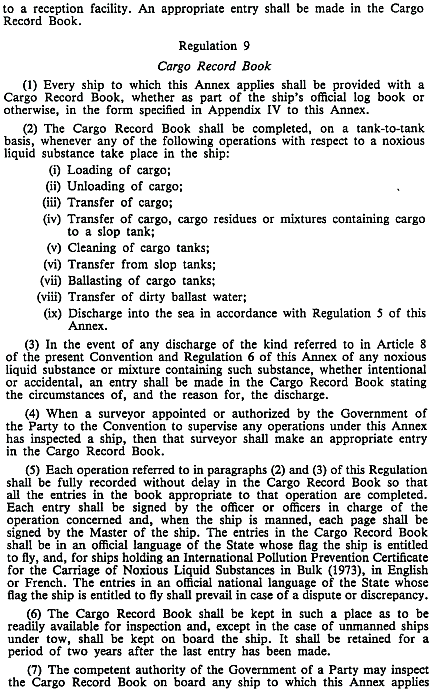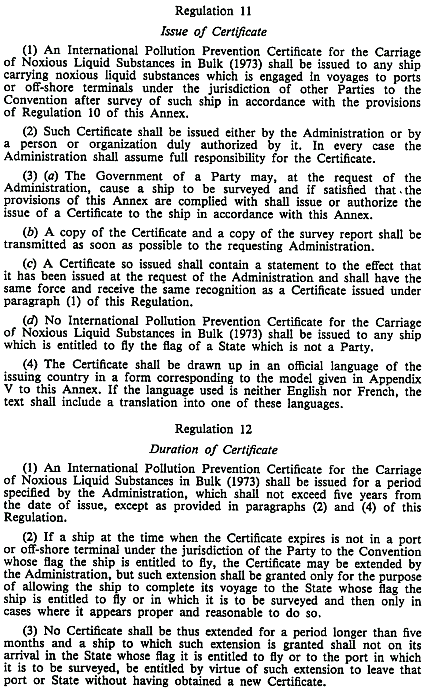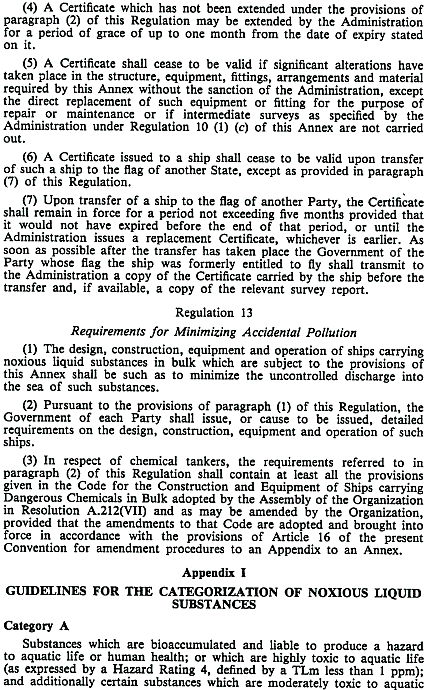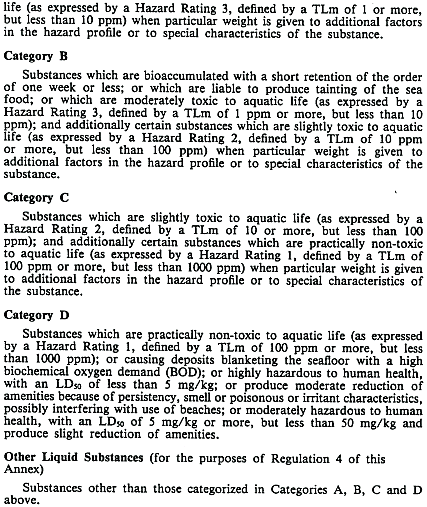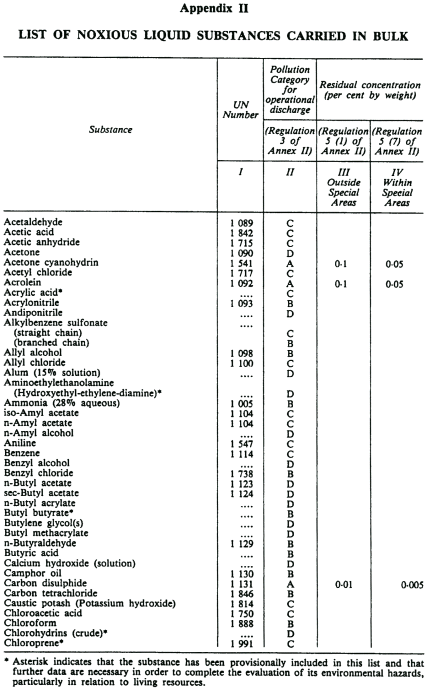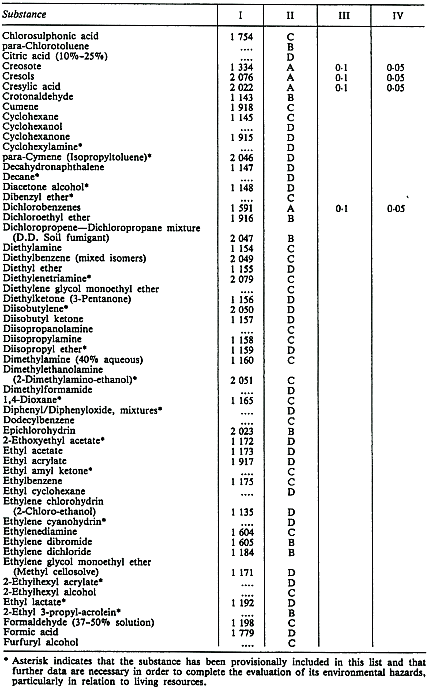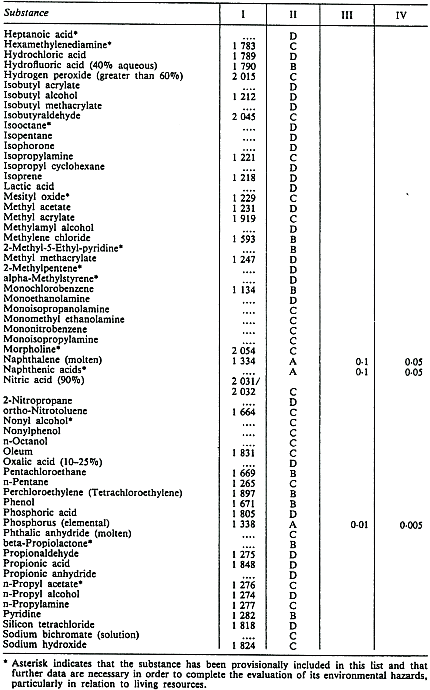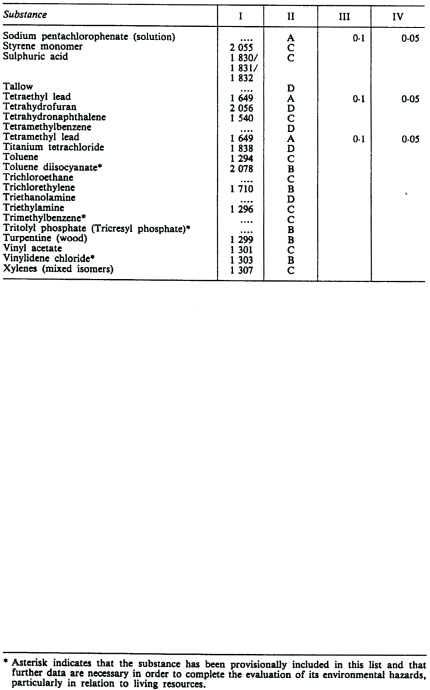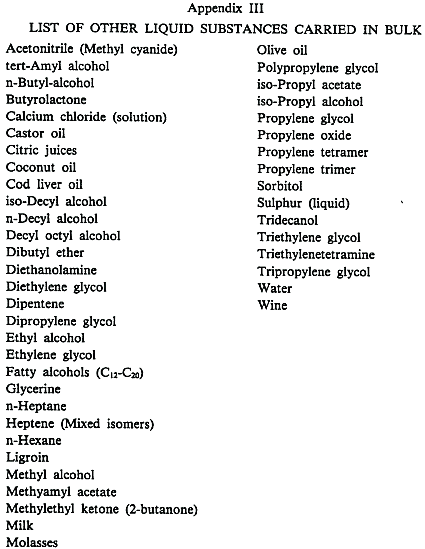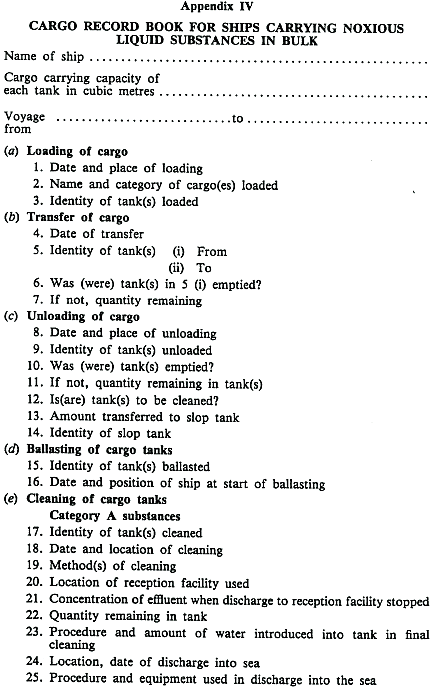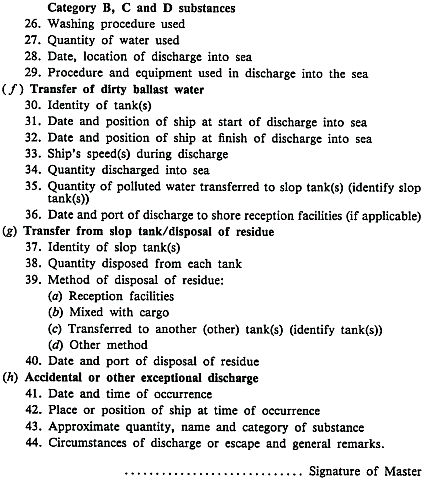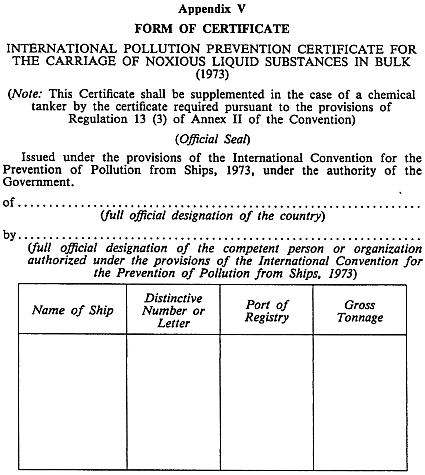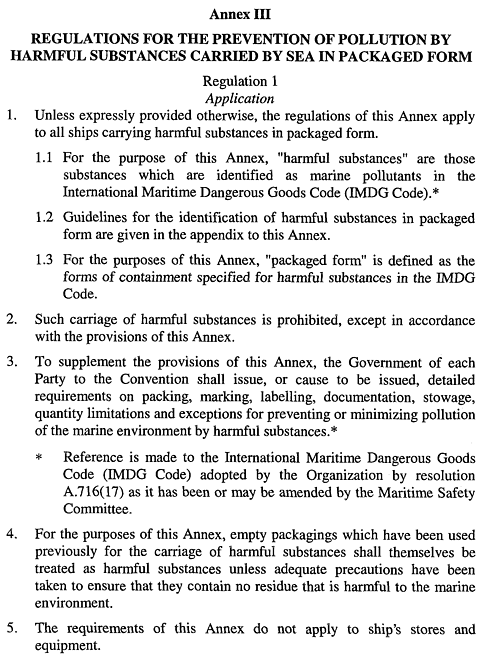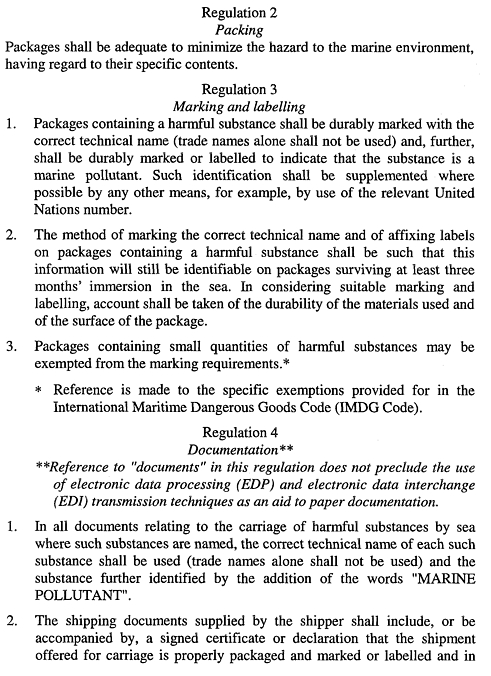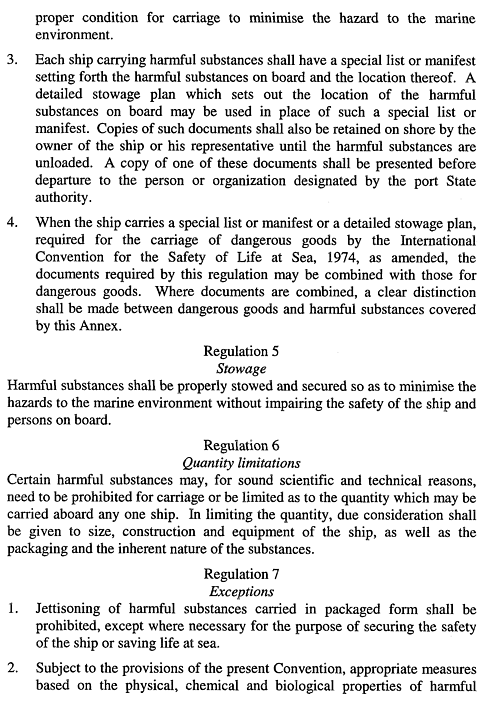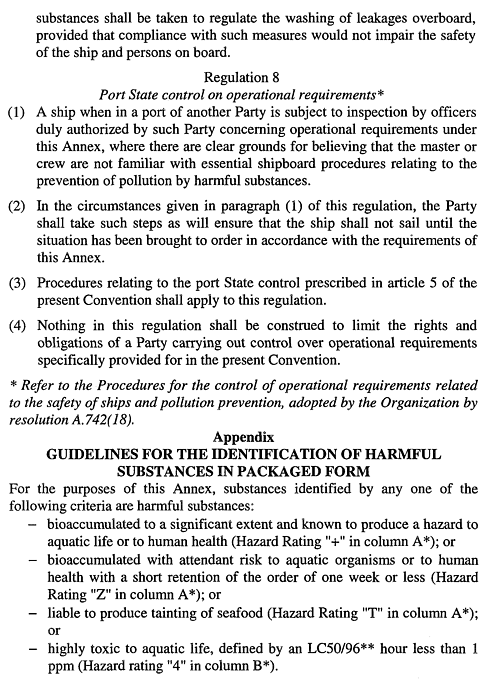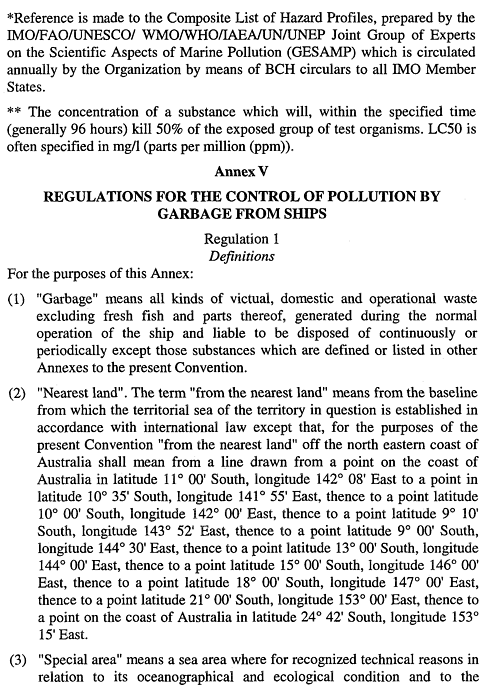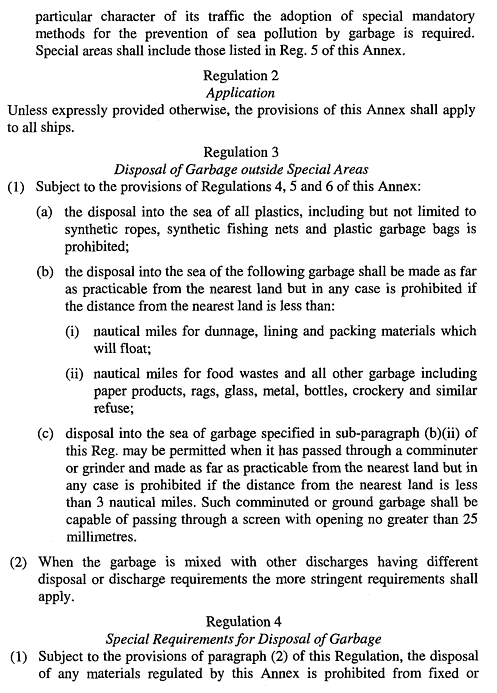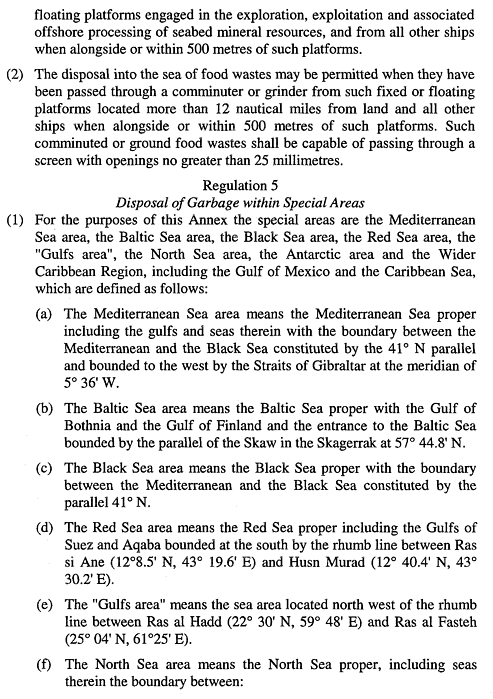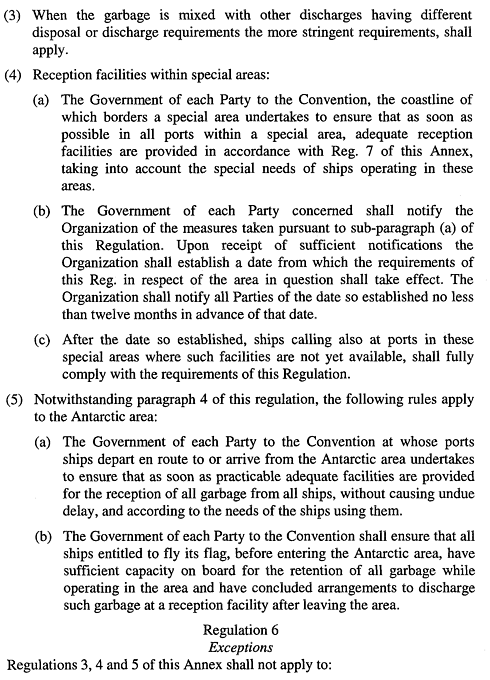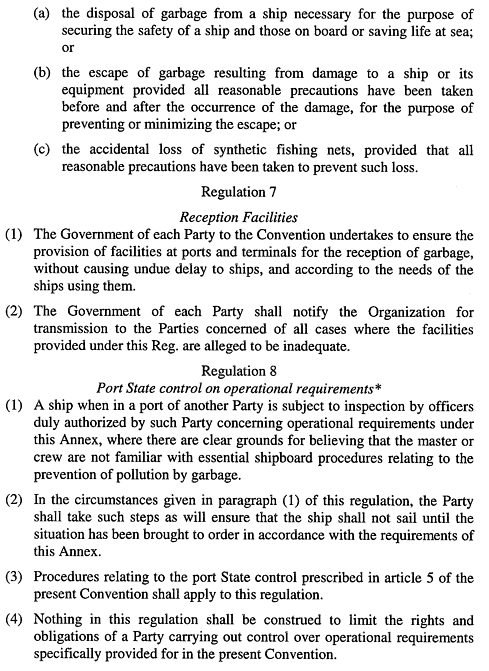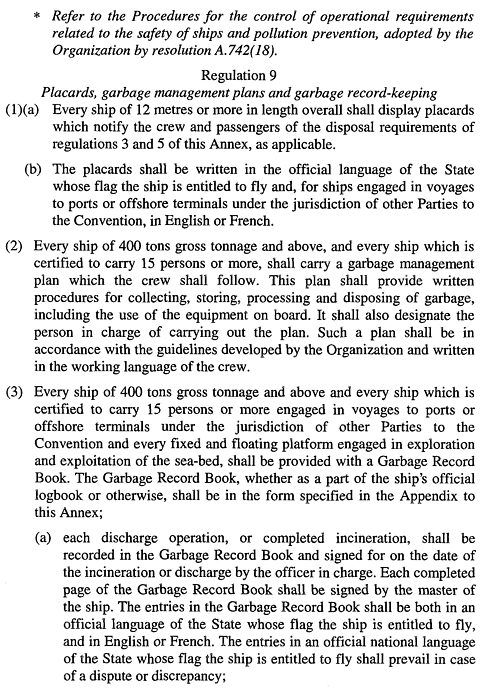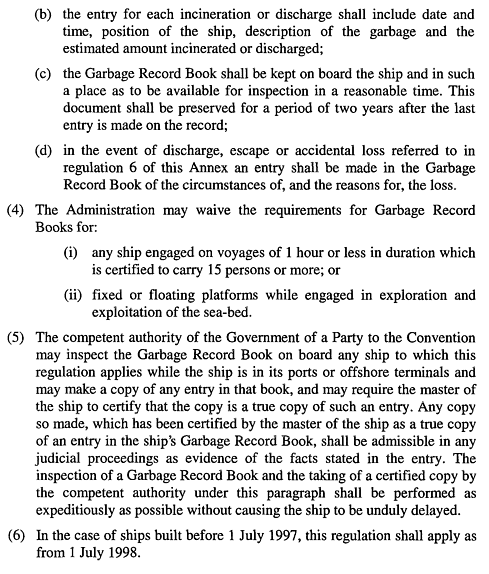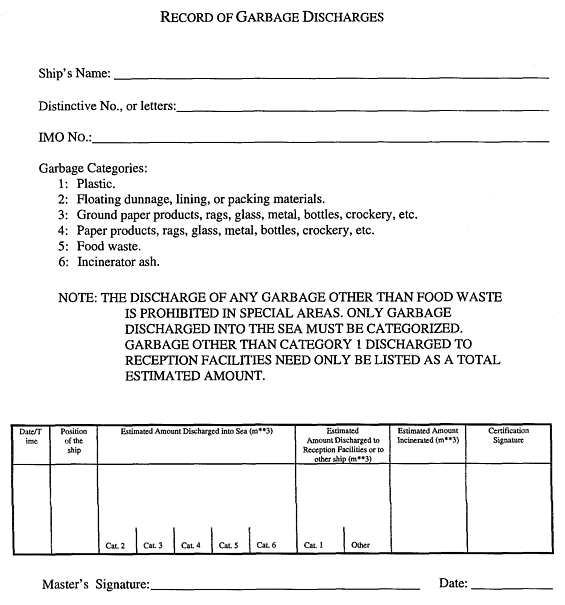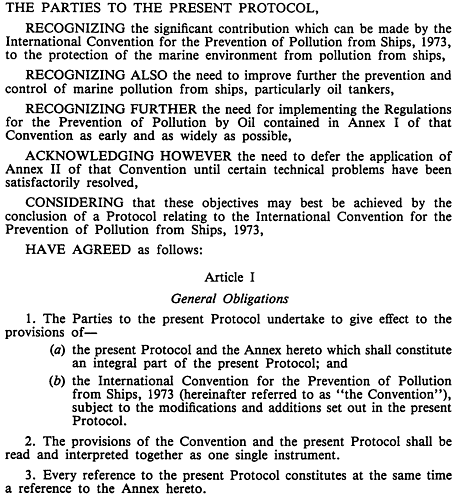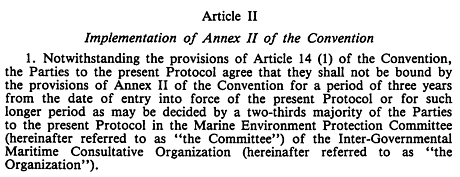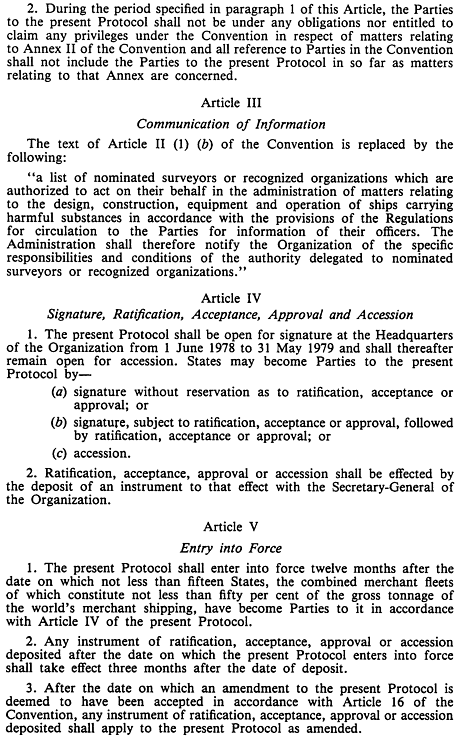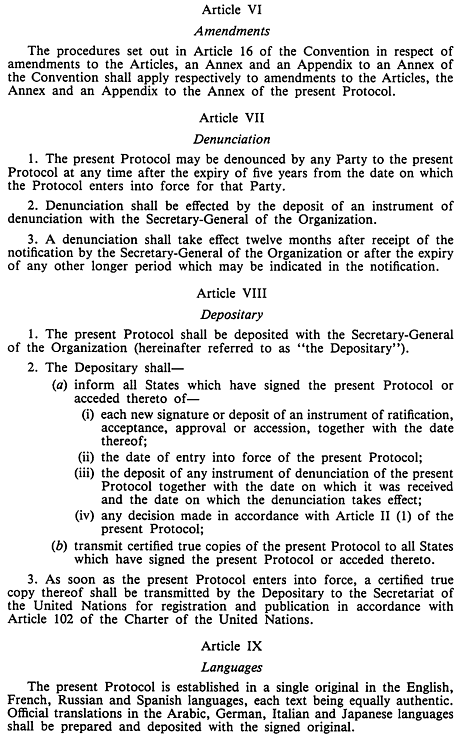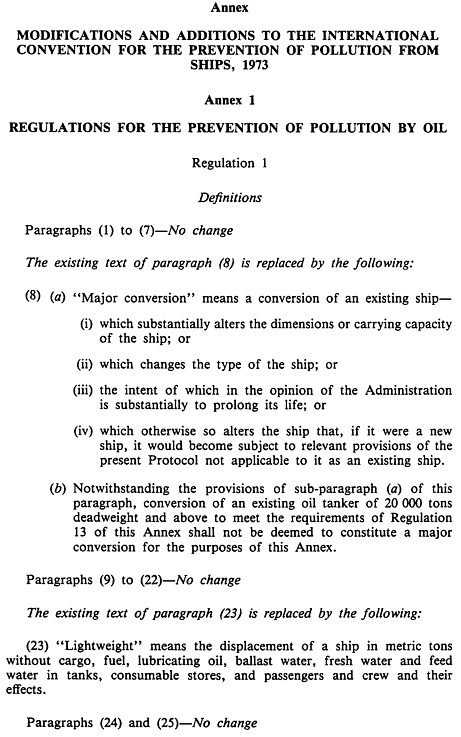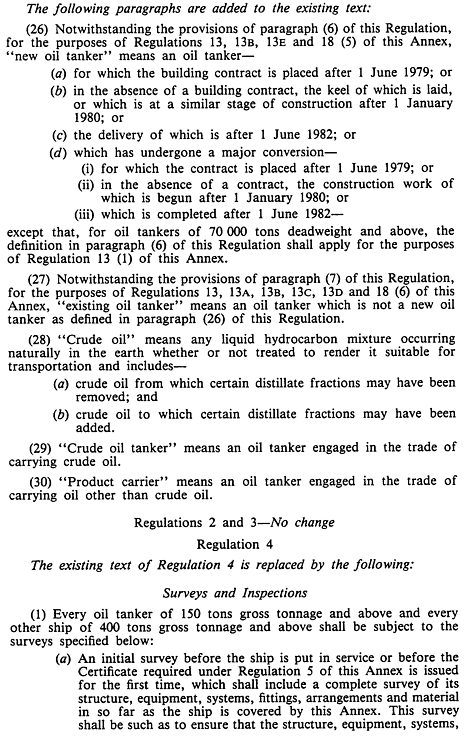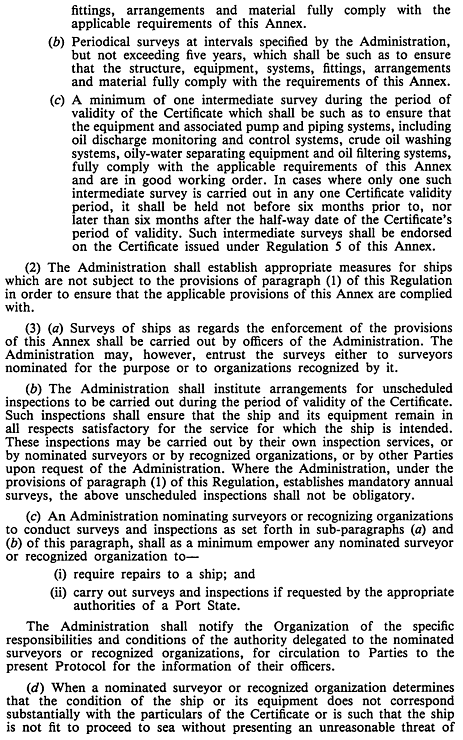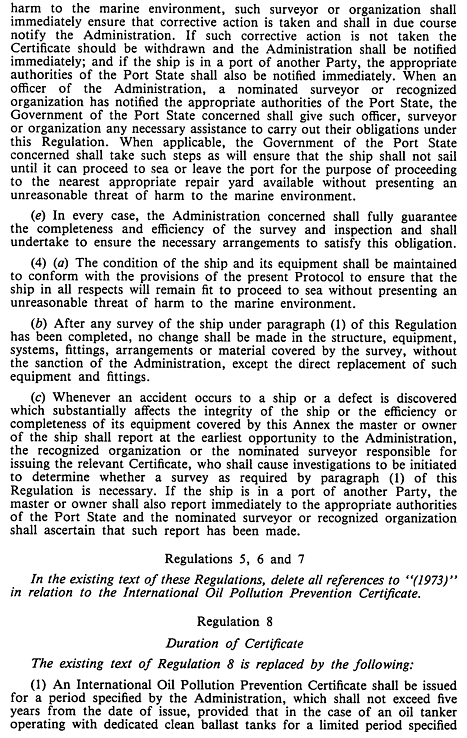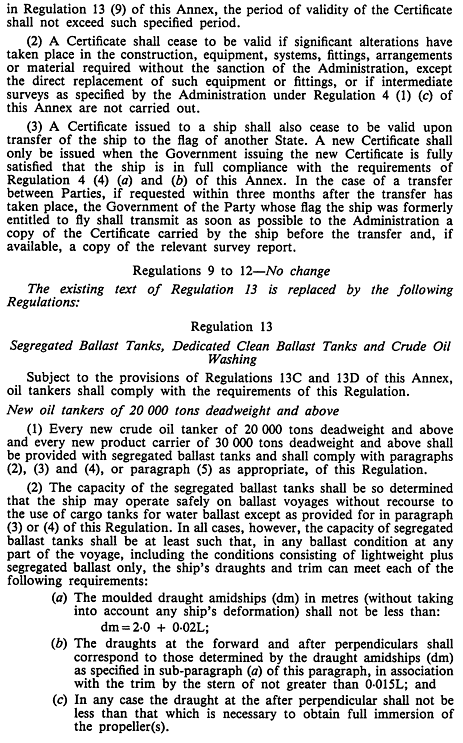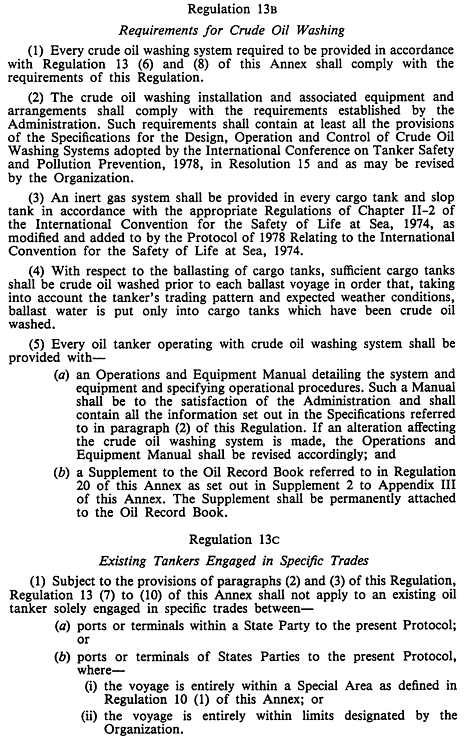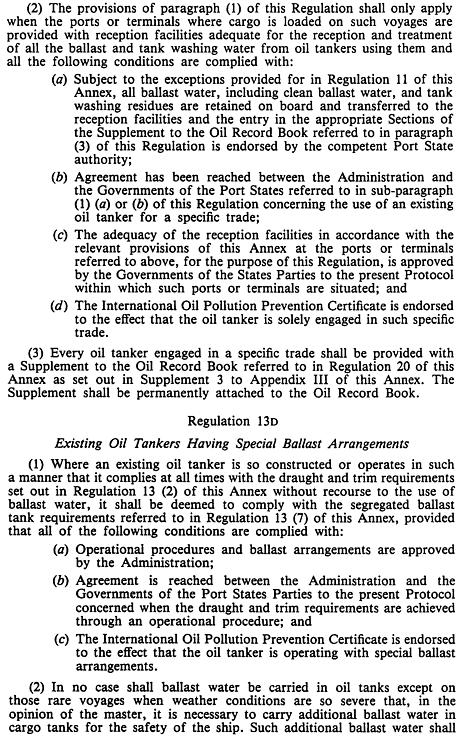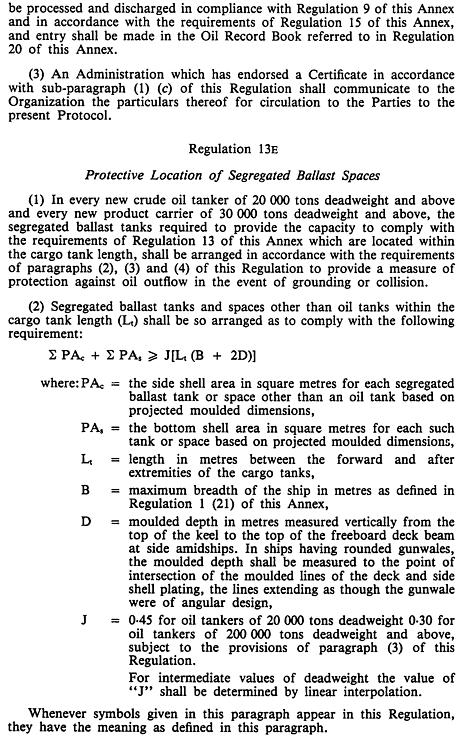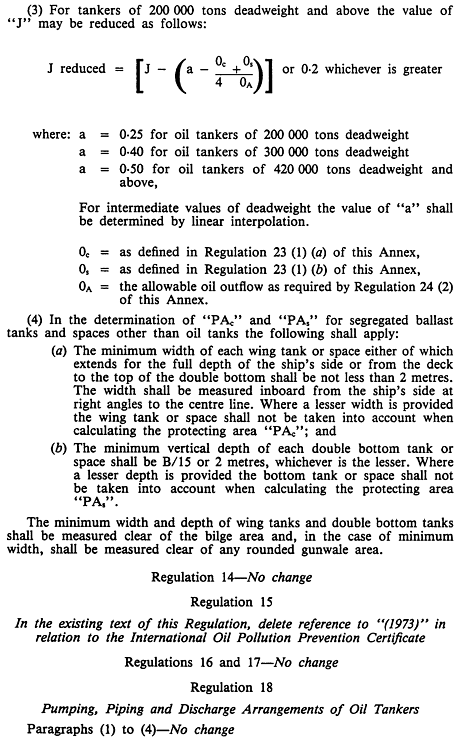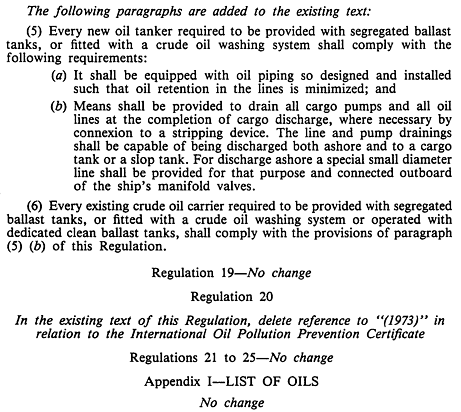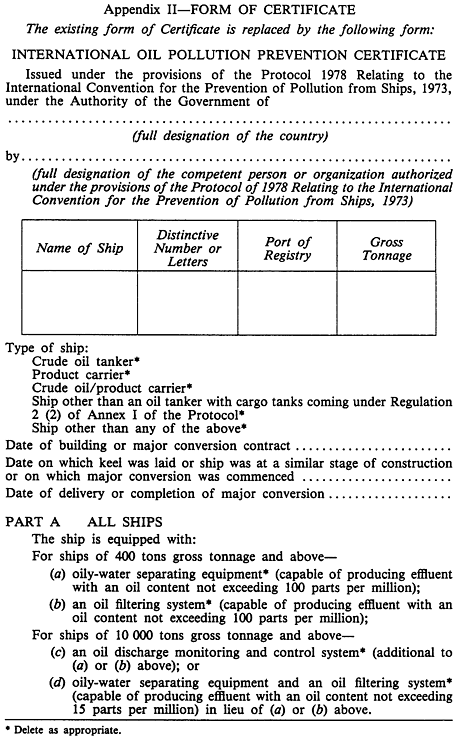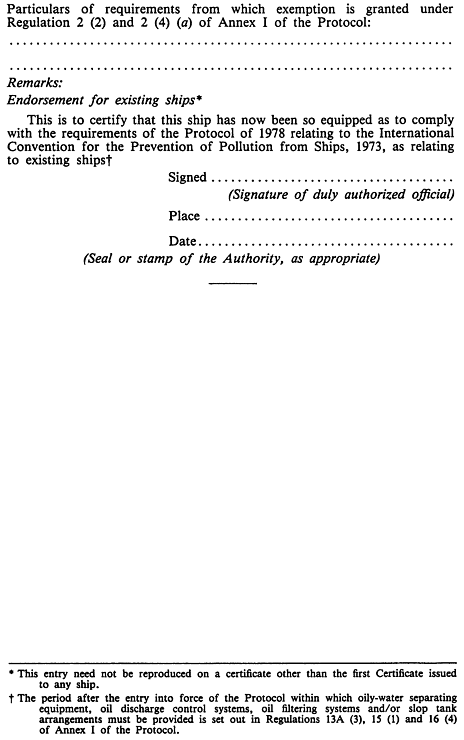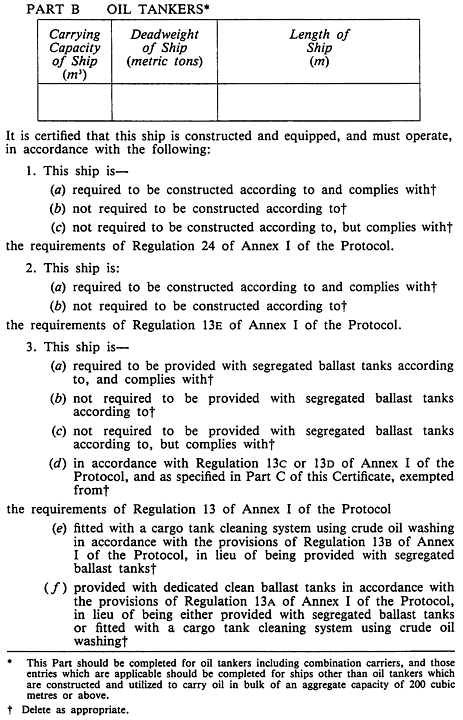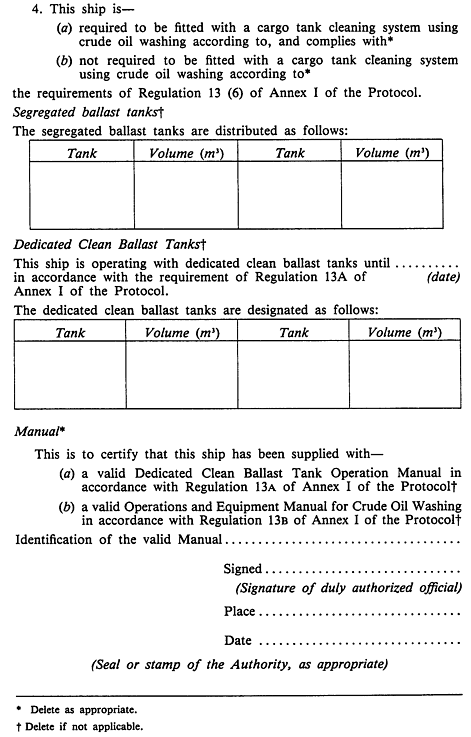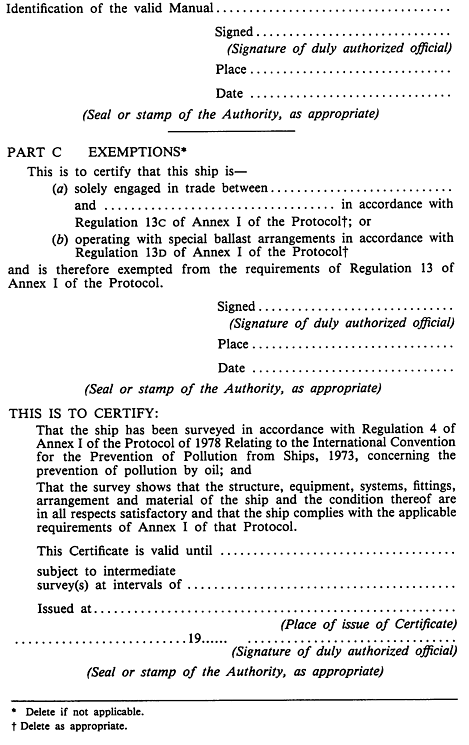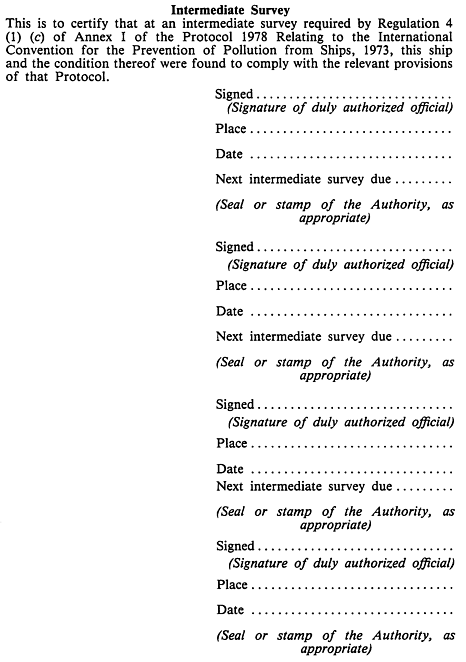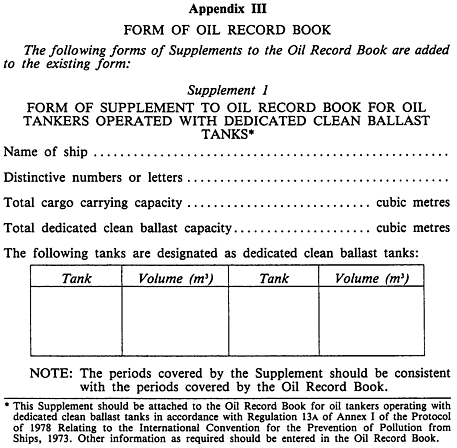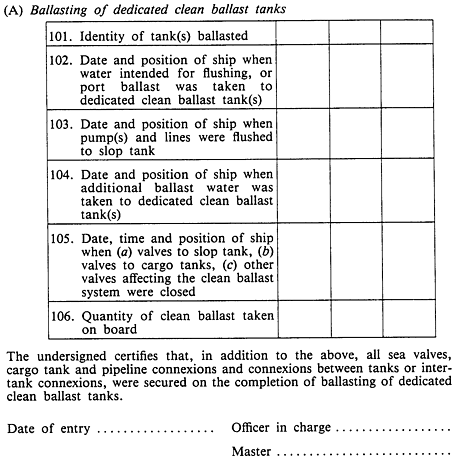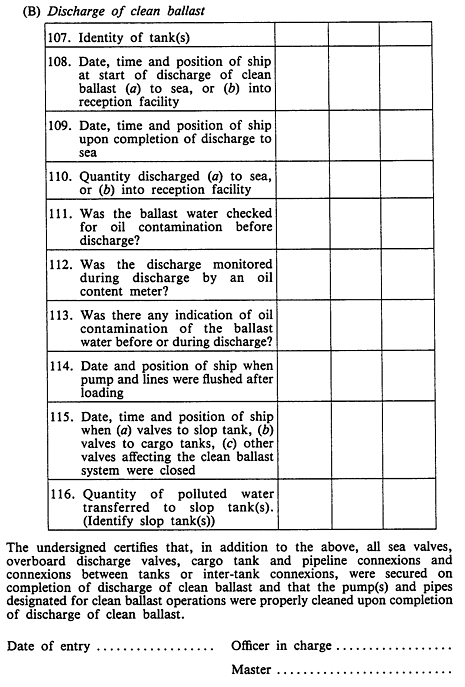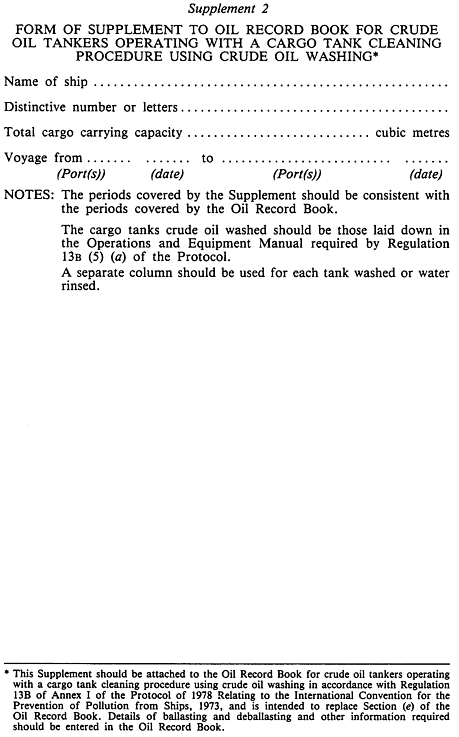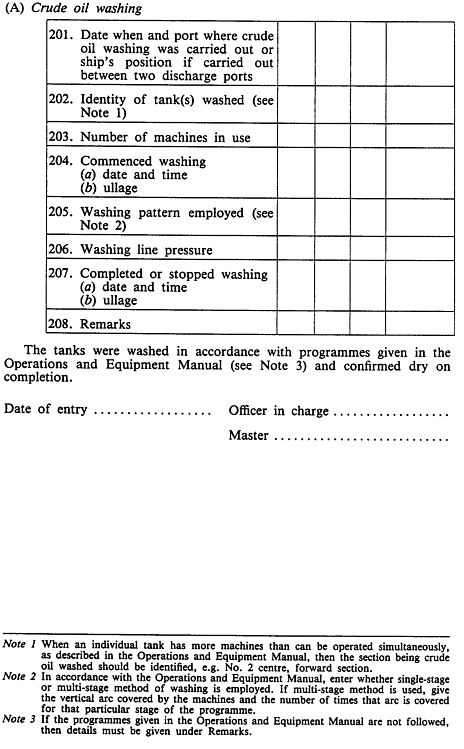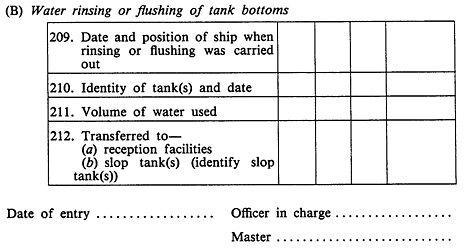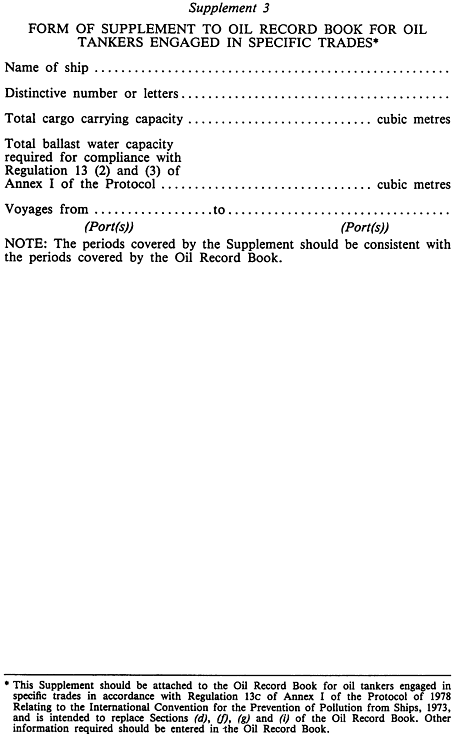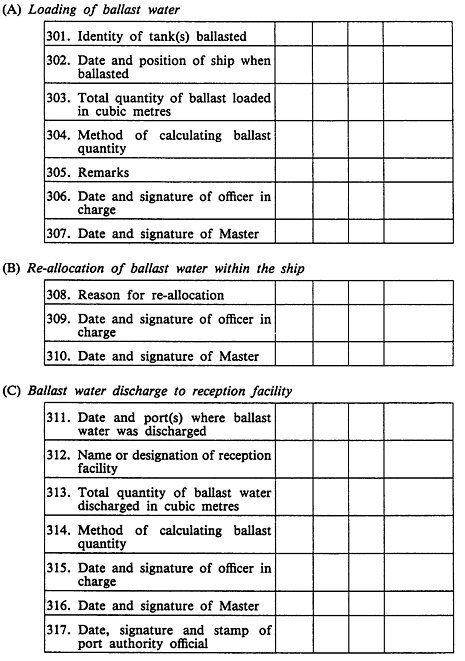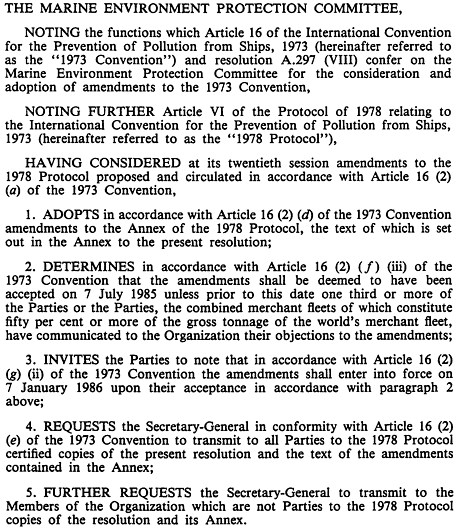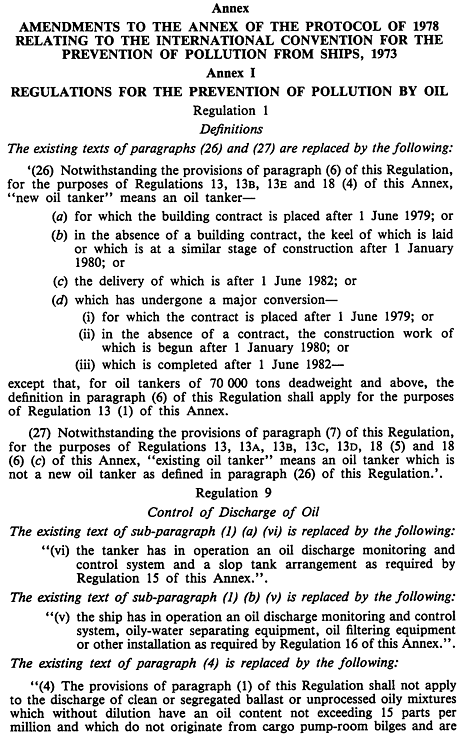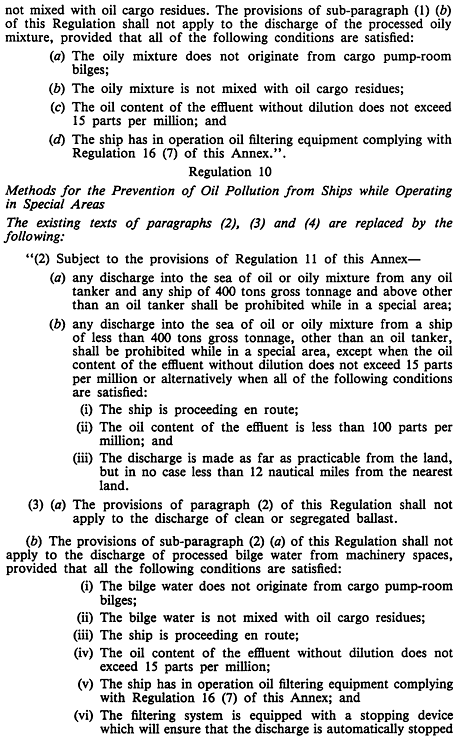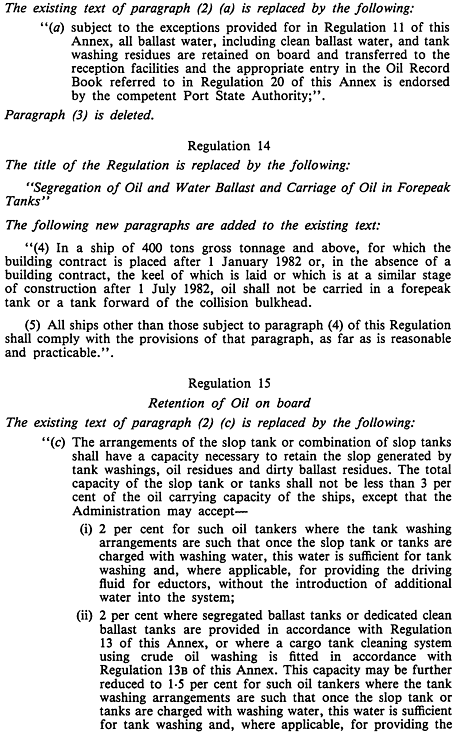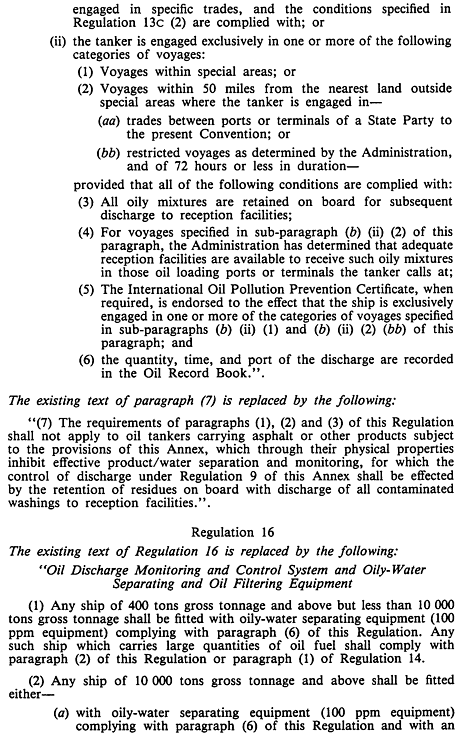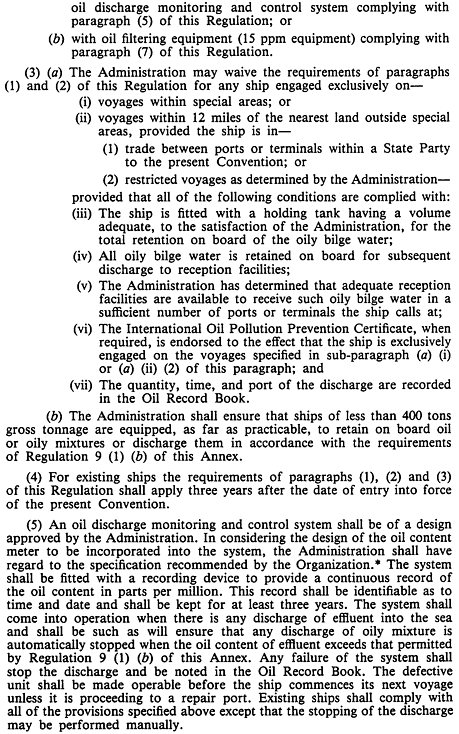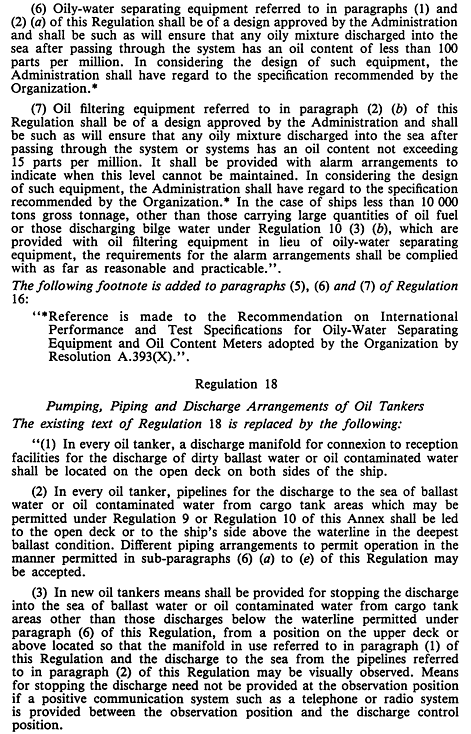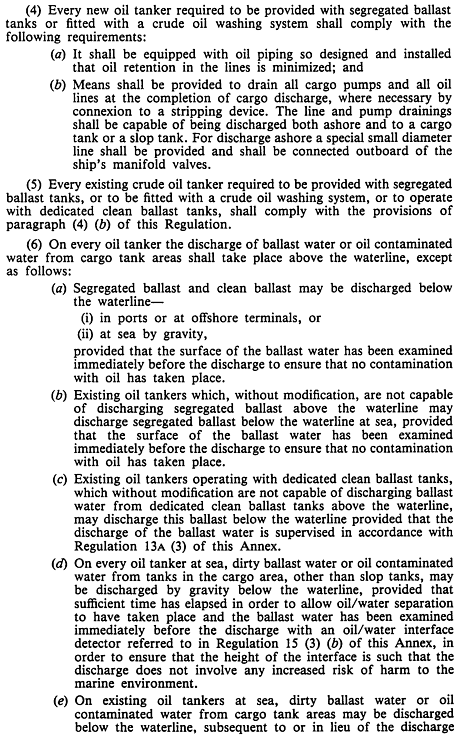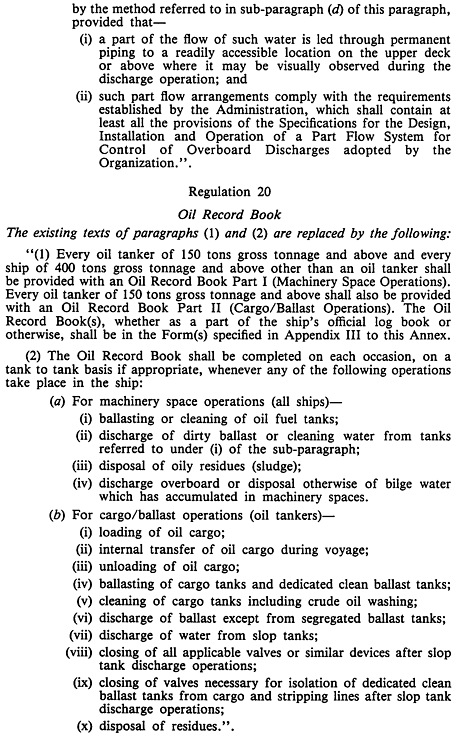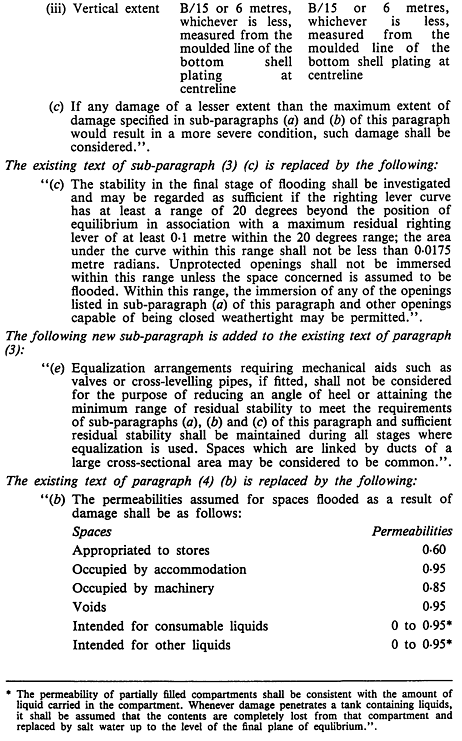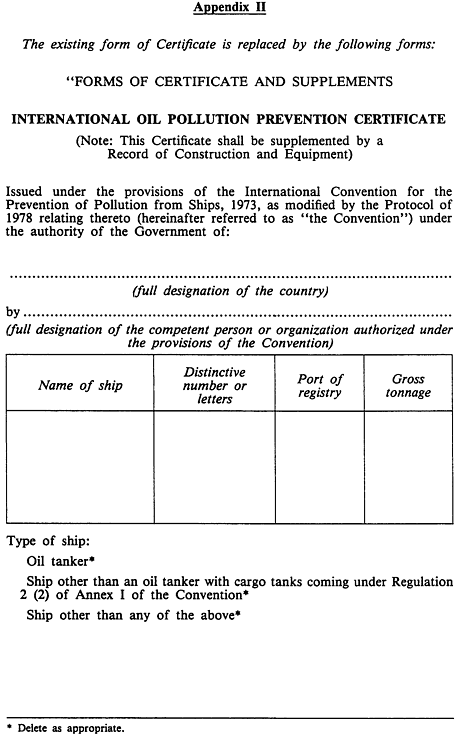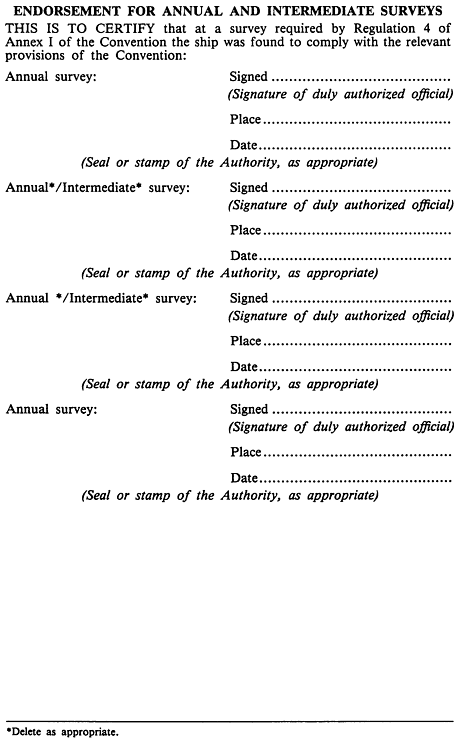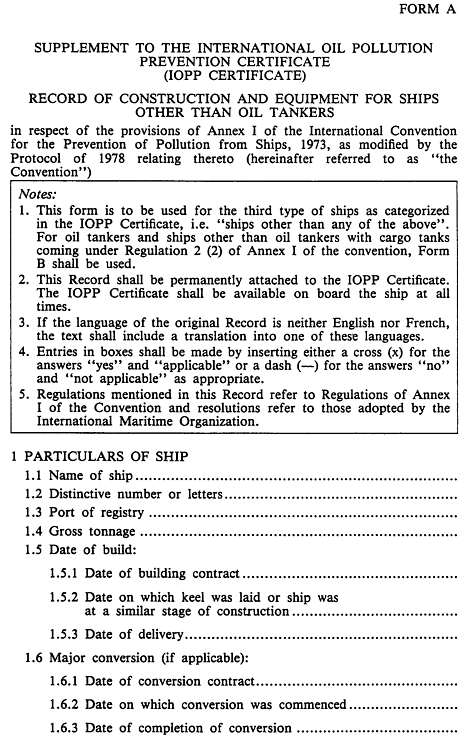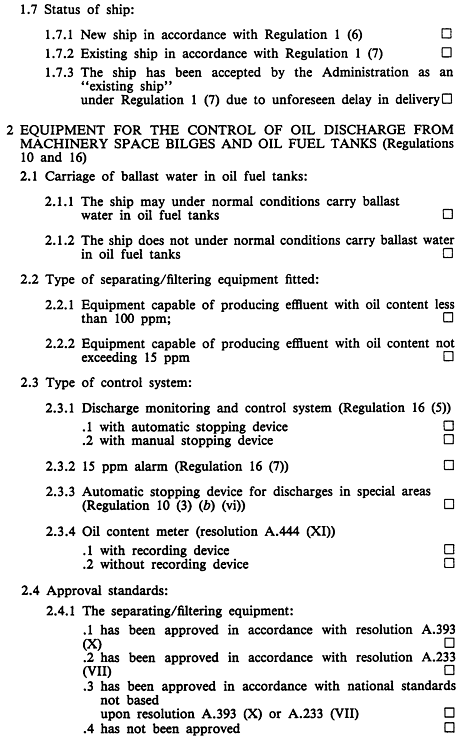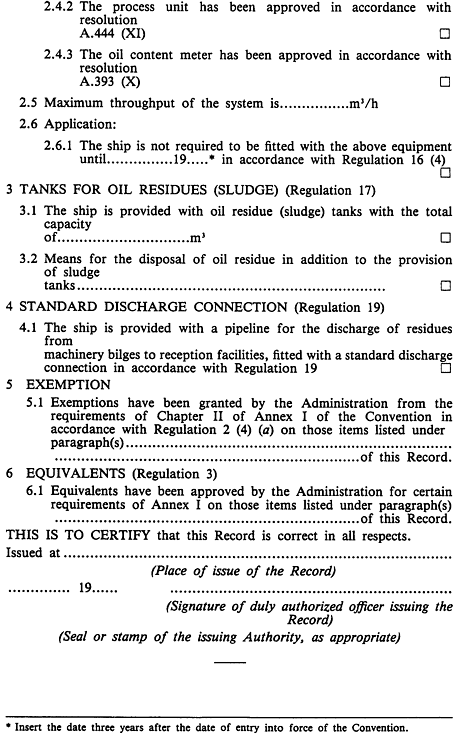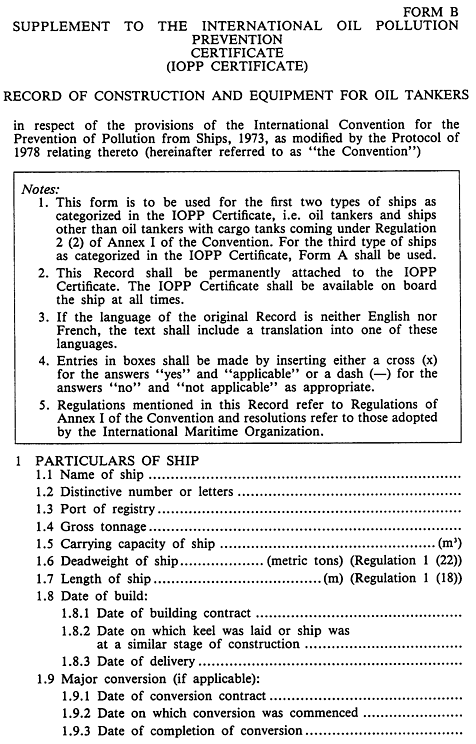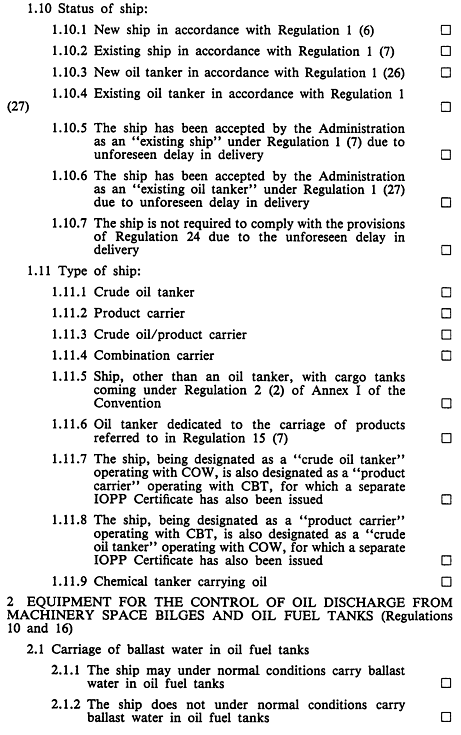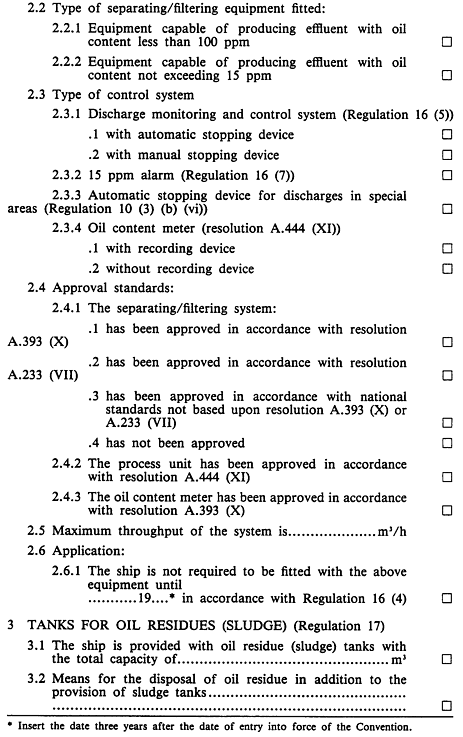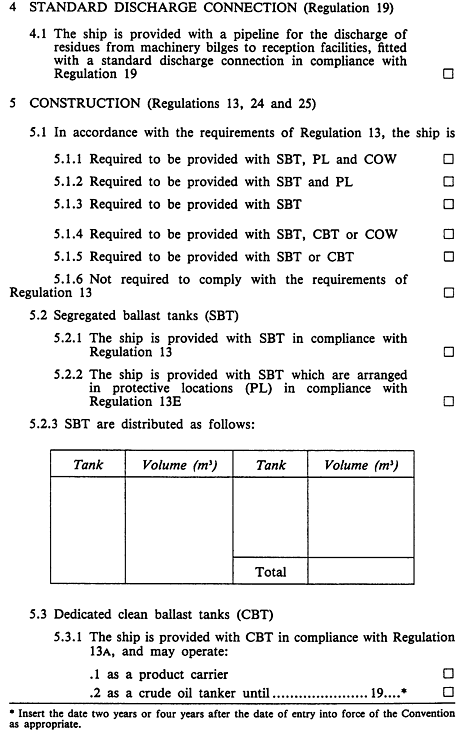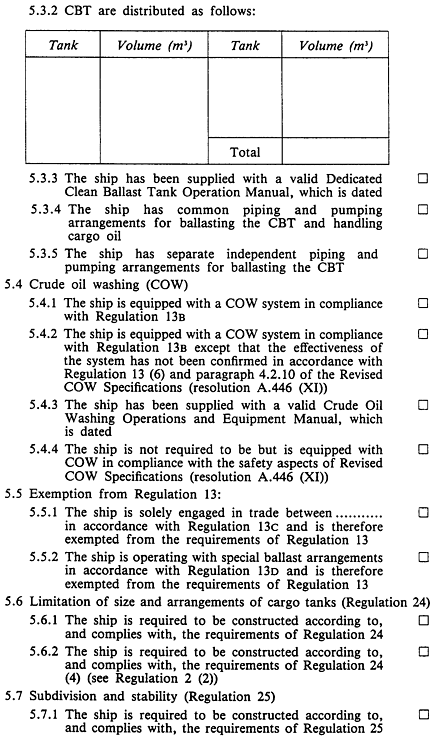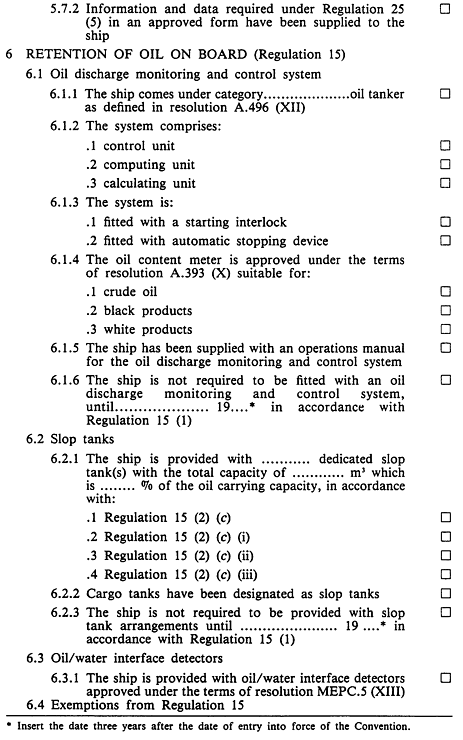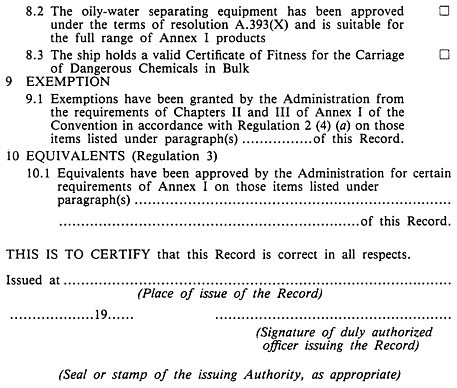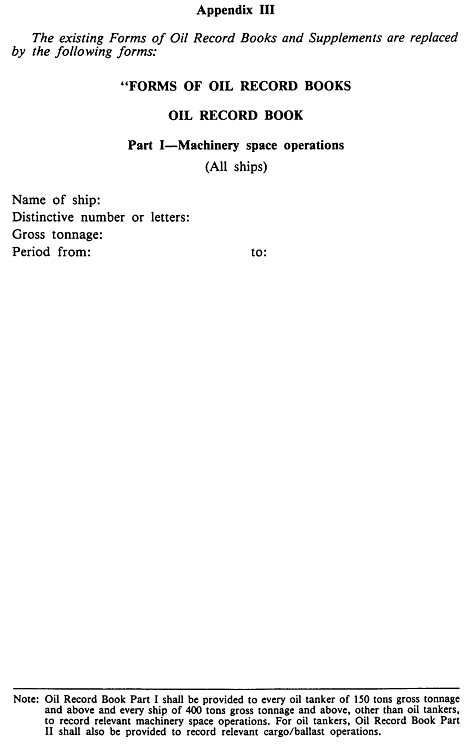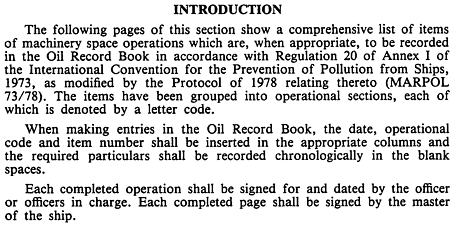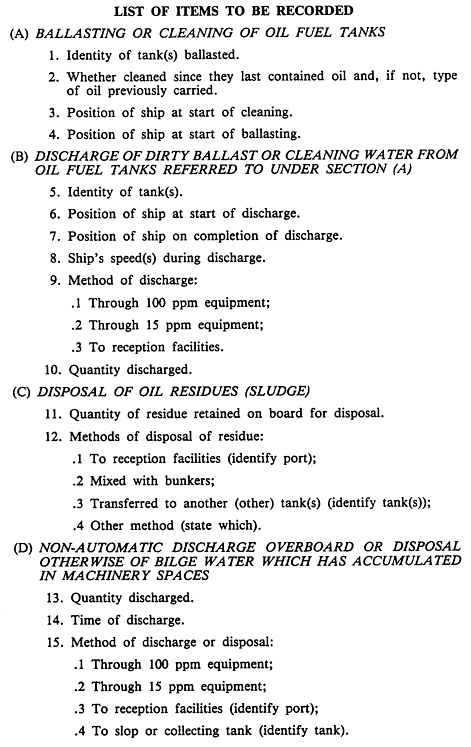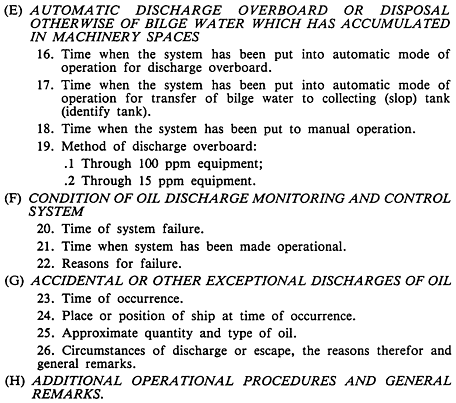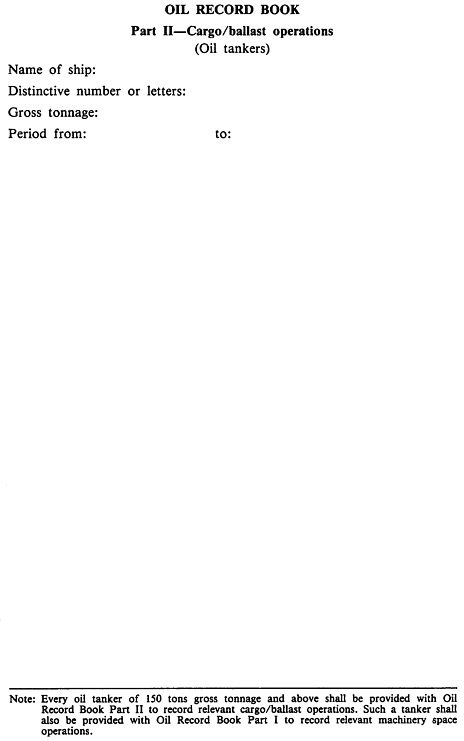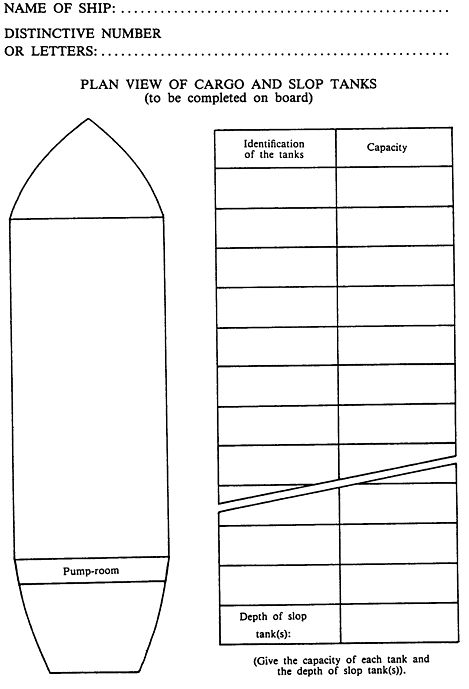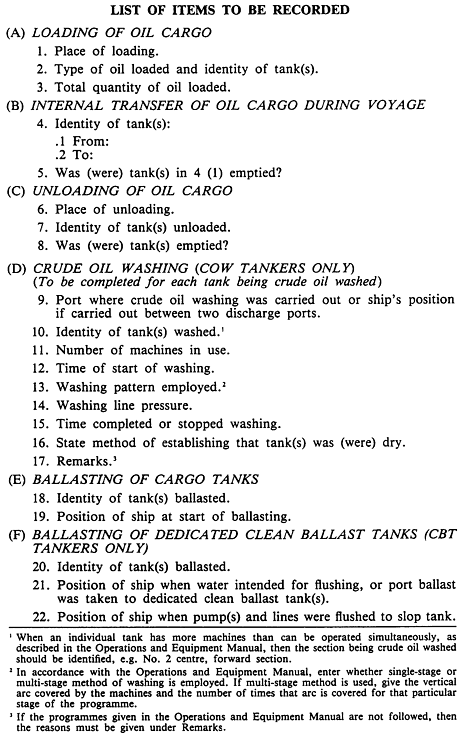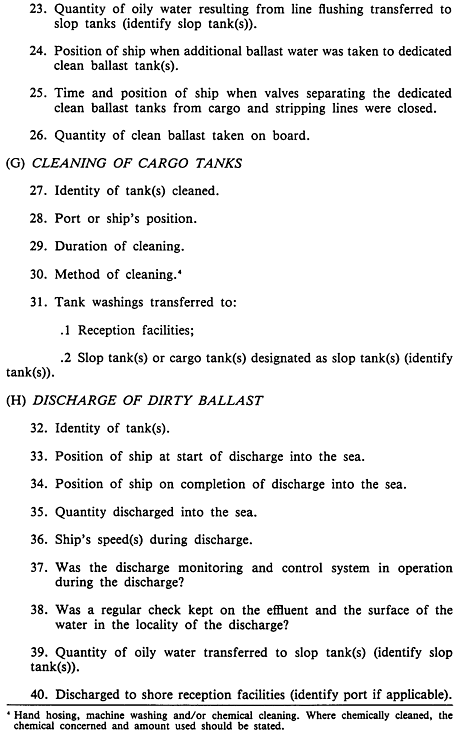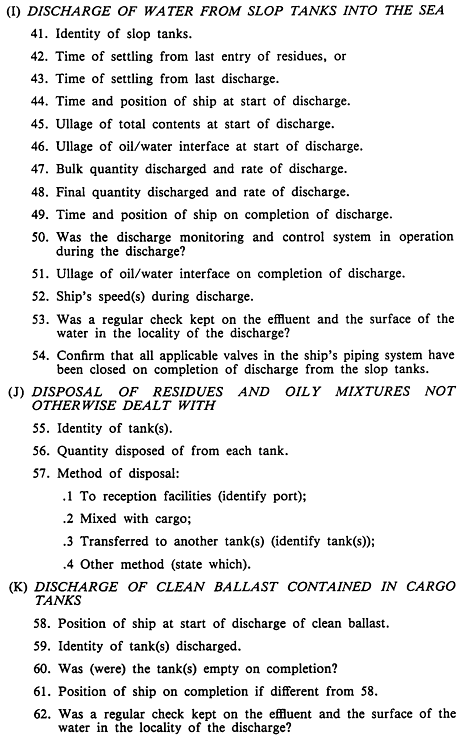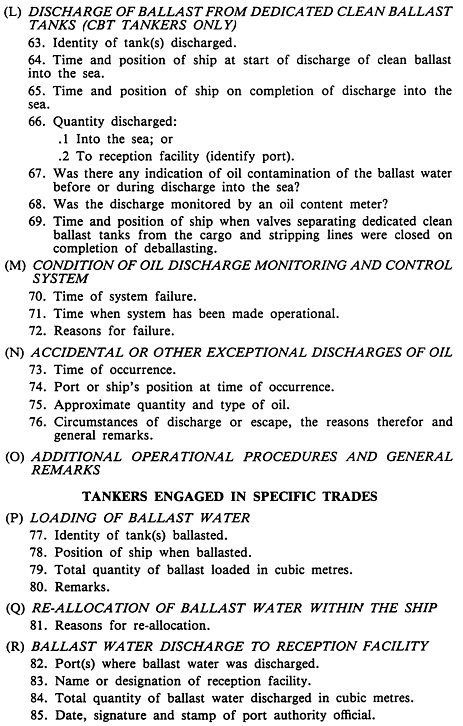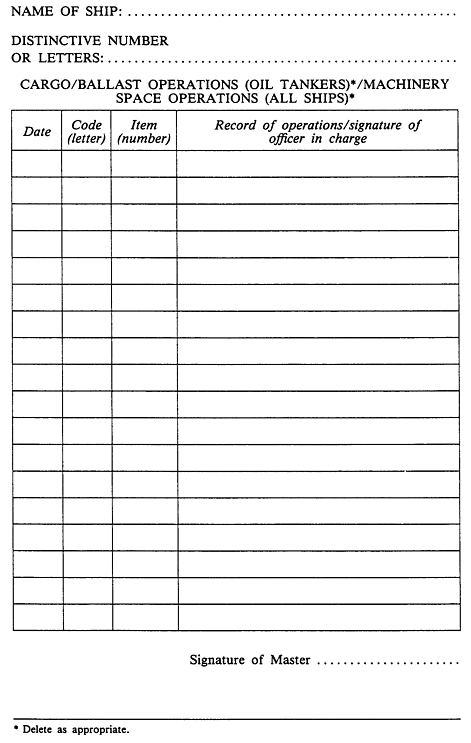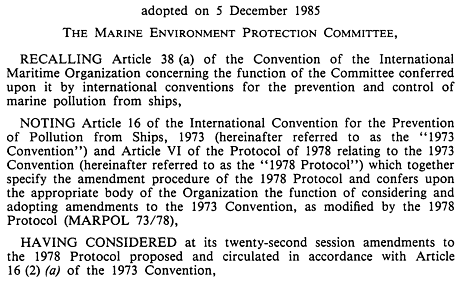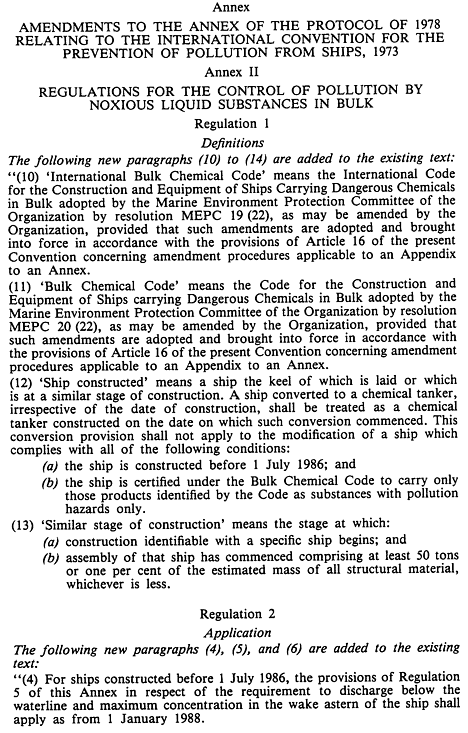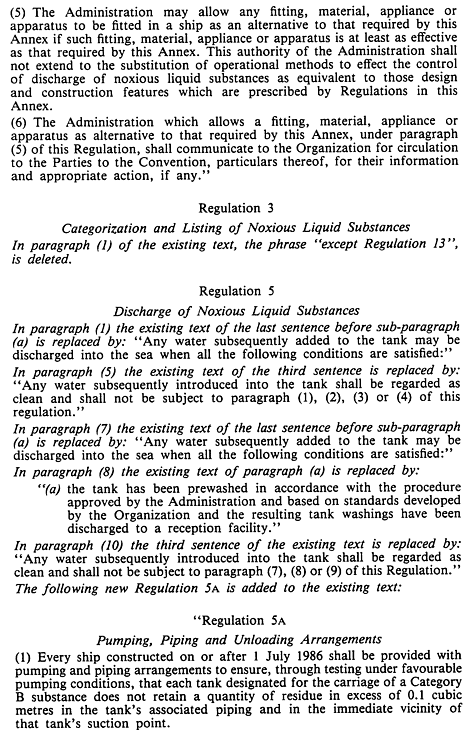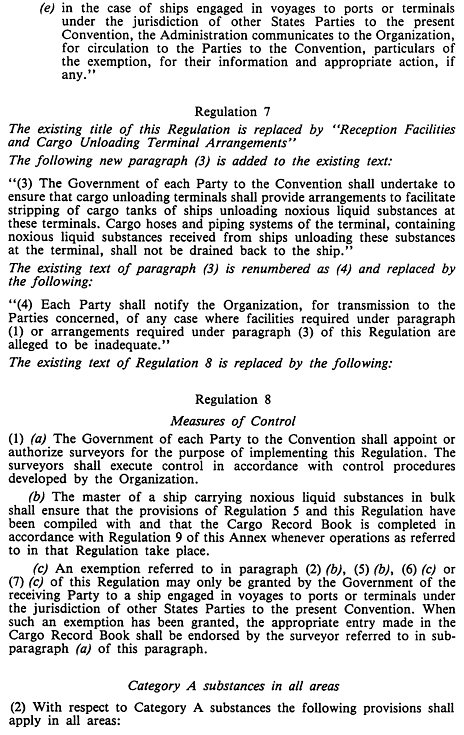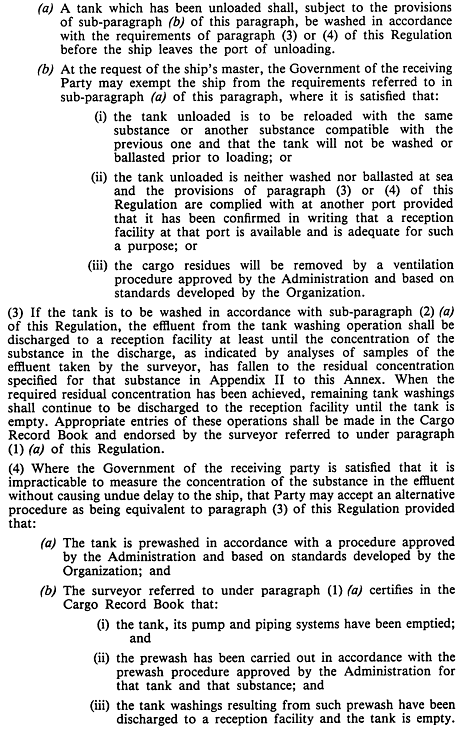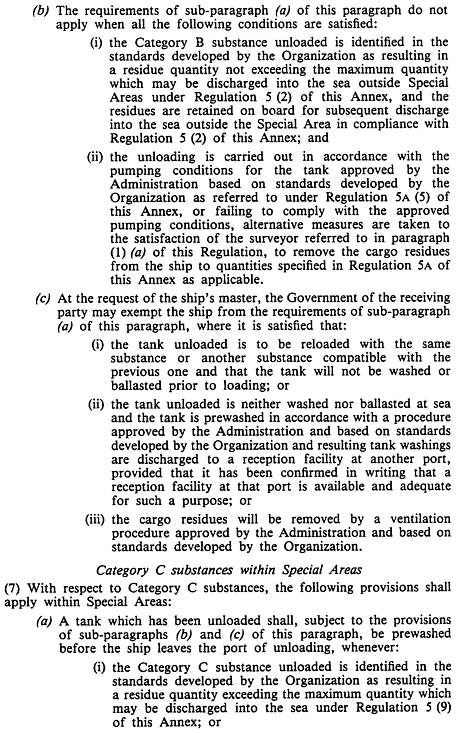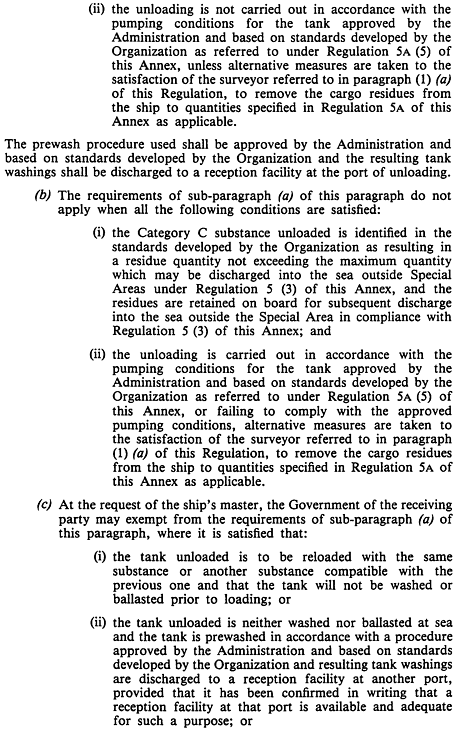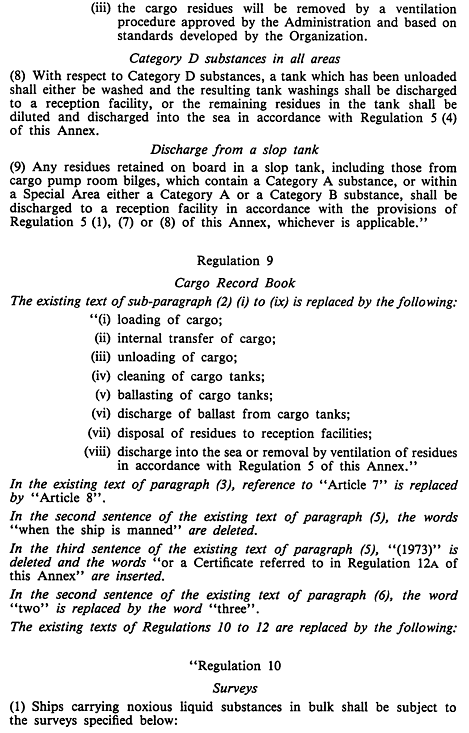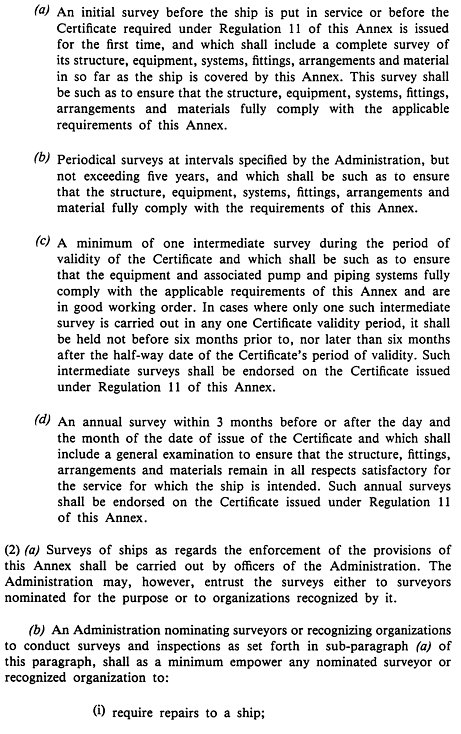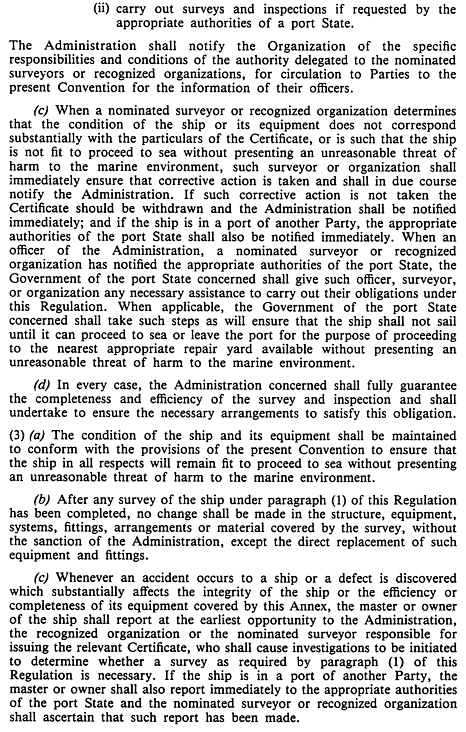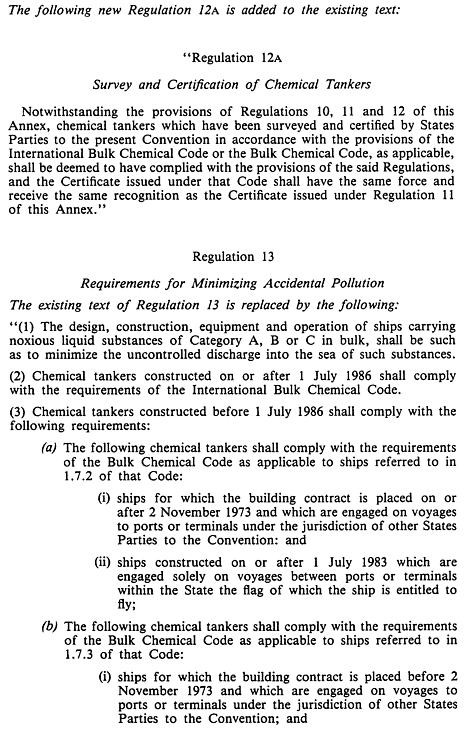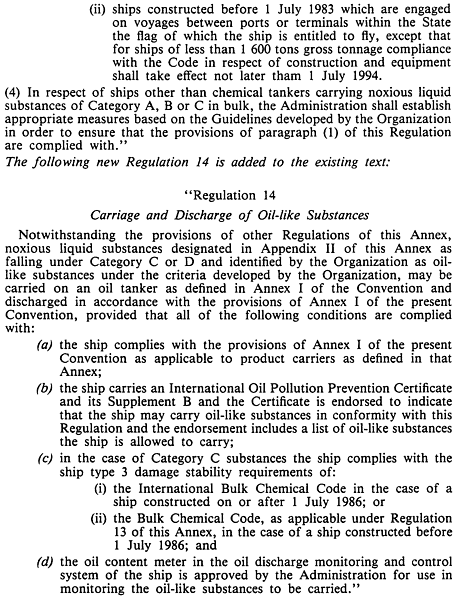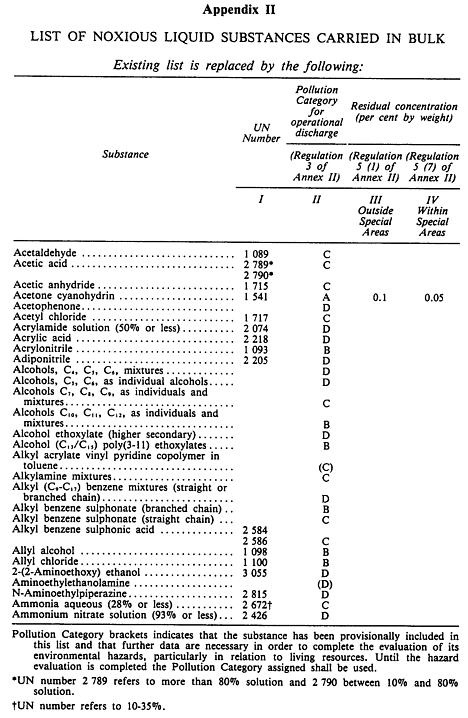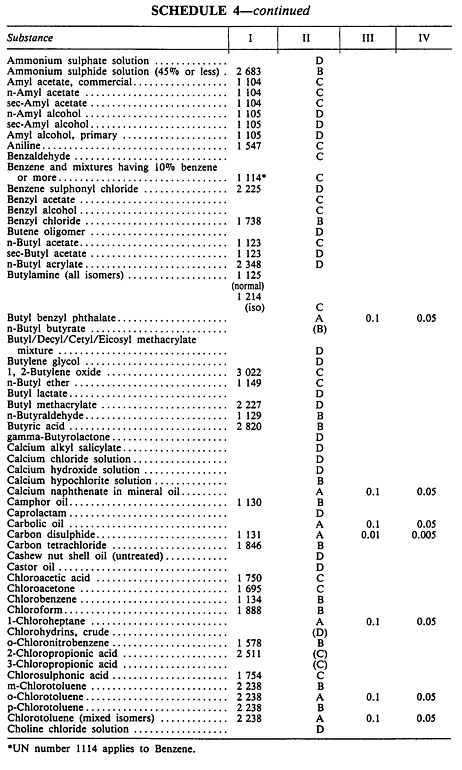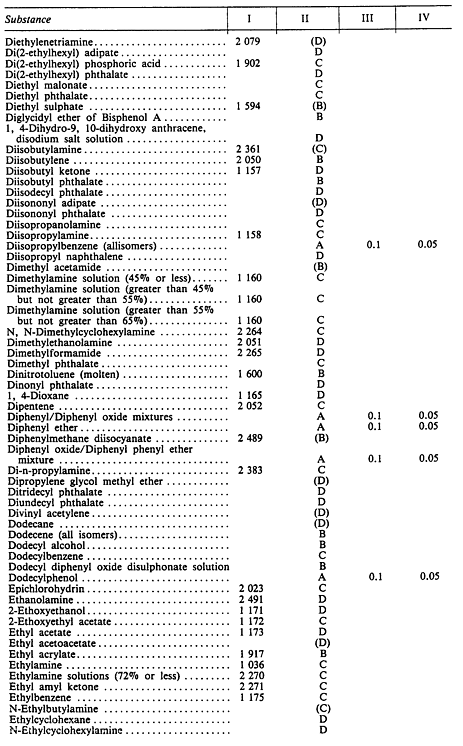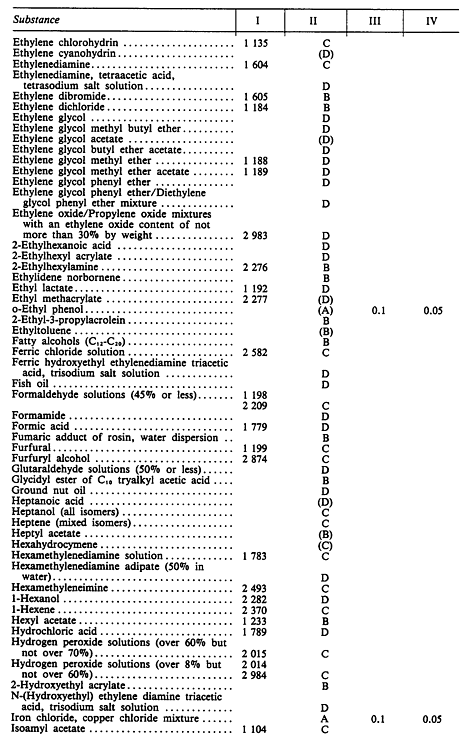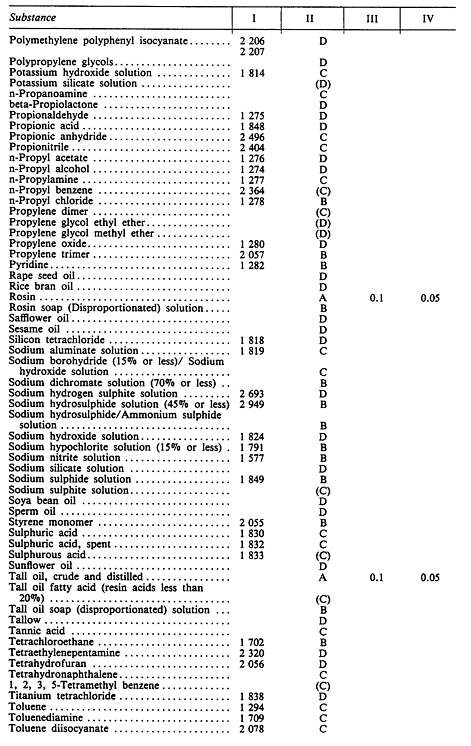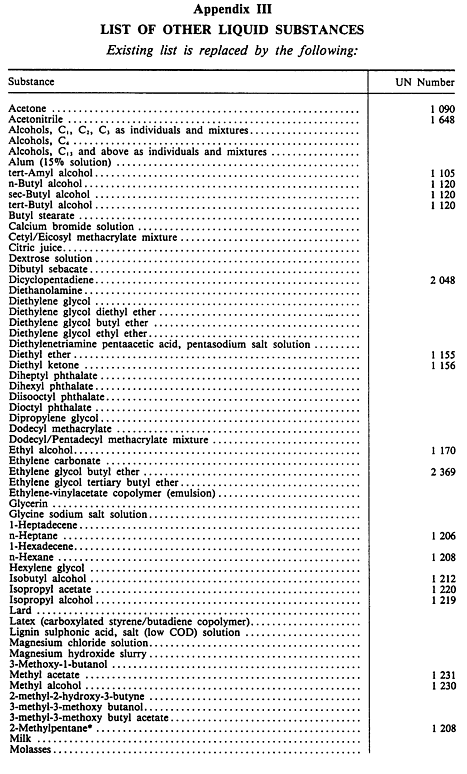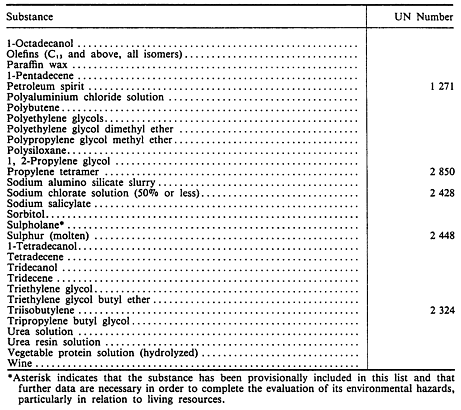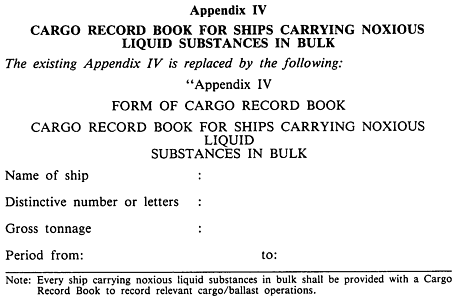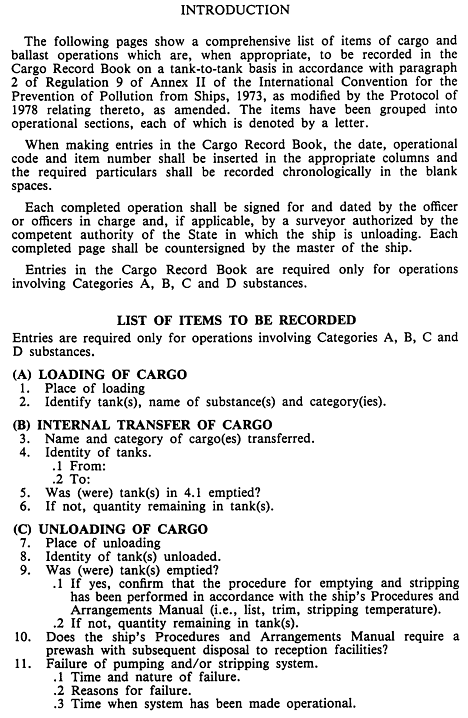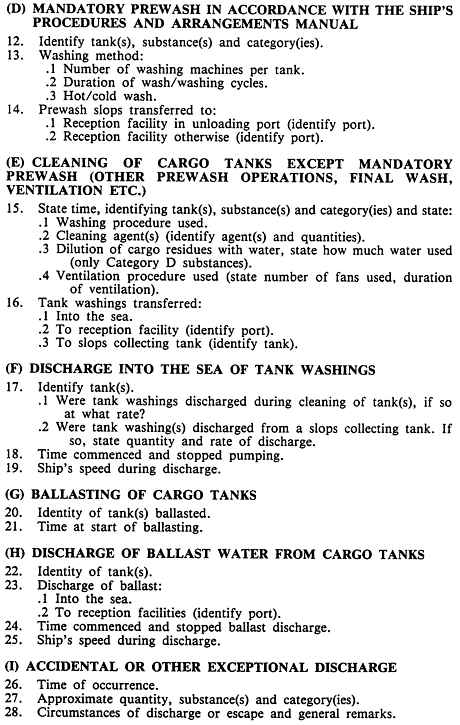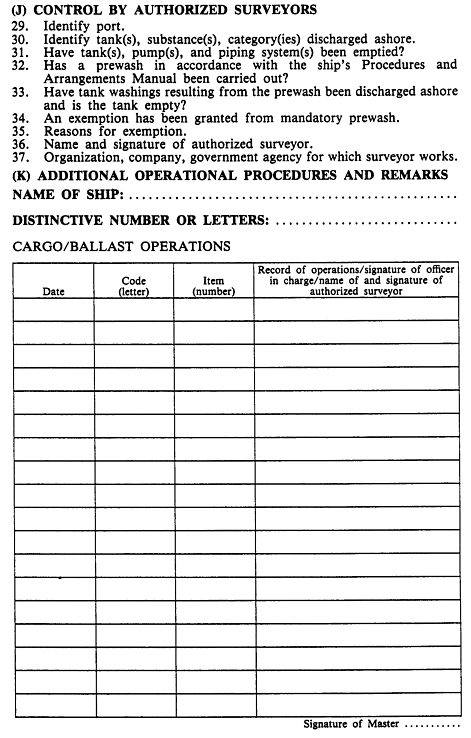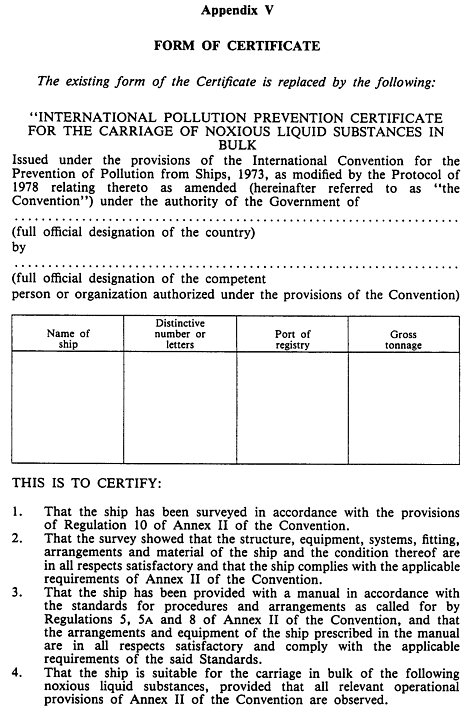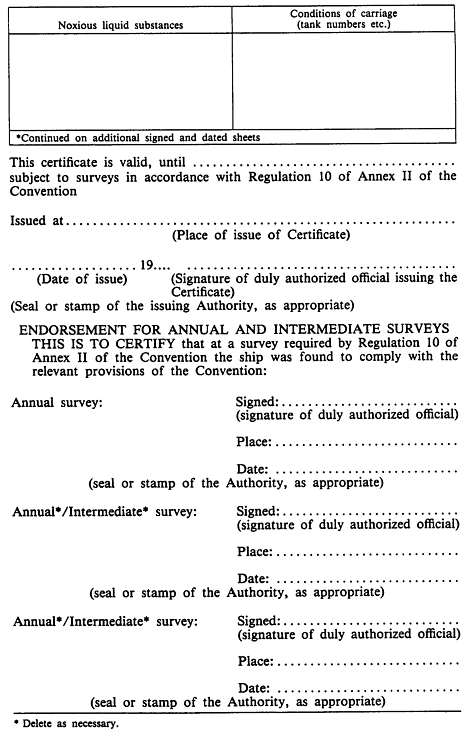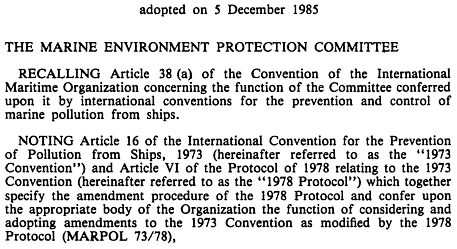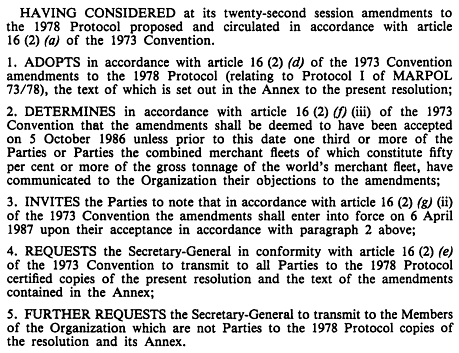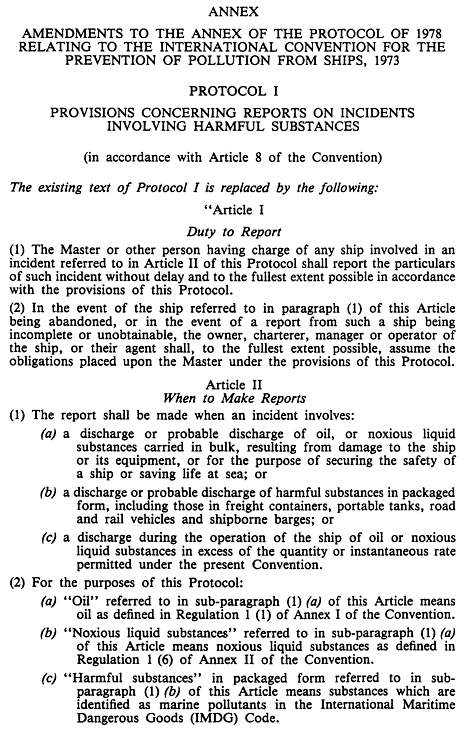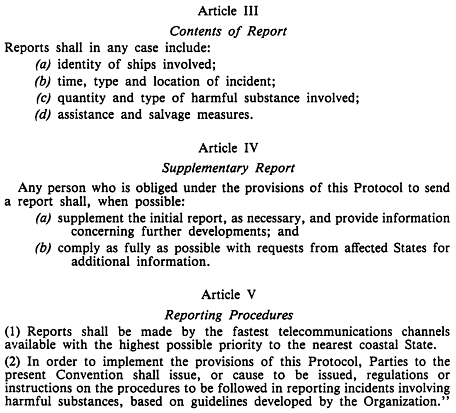Pollution of Waters by Oil and Noxious Substances Act 1987
An Act to protect the State waters from pollution by oil and other substances, to give effect to certain parts of the Marpol Convention, and for related purposes, and to repeal the Oil Pollution Act 1961
Be it enacted by His Excellency the Governor of Tasmania, by and with the advice and consent of the Legislative Council and House of Assembly, in Parliament assembled, as follows:
PART 1 - Preliminary
This Act may be cited as the Pollution of Waters by Oil and Noxious Substances Act 1987 .
(1) This section and section 1 shall commence on the day on which this Act receives the Royal Assent.(2) Except as provided in subsection (1) , this Act shall commence on such day as may be fixed by proclamation.
[Section 3 Subsection (1) amended by No. 37 of 1996, s. 3 and Sched. 1 ](1) [Section 3 Subsection (1) amended by No. 68 of 1994, s. 3 and Sched. 1 ]In this Act, unless the contrary intention appears –Australian fishing vessel means a fishing vessel that is registered, or entitled to be registered, in Australia or in relation to which an instrument under section 4 (2) of the Fisheries Management Act 1991 of the Commonwealth is in force;Australian ship means –(a) a ship registered in Australia; or(b) an unregistered ship having Australian nationality;authorized officer means –[Section 3 Subsection (1) amended by No. 16 of 1997, Sched. 1, Applied:30 Jul 1997](a) a person who is appointed in writing by the Minister to be an authorized officer for the purposes of this Act;(b) a harbour master;(c) [Section 3 Subsection (1) amended by No. 16 of 1997, Sched. 1, Applied:30 Jul 1997] a person authorised by the Marine and Safety Authority for the purpose of this Act; or(d) a member of the police force;Committee means the State Marine Pollution Committee constituted under this Act;Control Officer means the person referred to in section 35 (2) (b) ;Convention means the 1 973 Convention as modified and added to by the 1978 Protocol ;[Section 3 Subsection (1) amended by No. 81 of 2000, s. 4, Applied:13 Dec 2000] costs includes expenses;[Section 3 Subsection (1) amended by No. 81 of 2000, s. 4, Applied:13 Dec 2000] crew, in relation to a ship, includes its master;Director means the person appointed and holding office as Director of Environmental Management pursuant to section 18 (1) of the Environmental Management and Pollution Control Act 1994 ;fishing vessel means a vessel used or intended to be used for catching fish, whales, seals, walrus, or other living resources of the sea or seabed for profit or reward, and includes any such vessel in the course of construction, but does not include a vessel –(a) engaged in the harvesting or transportation of algae or aquatic plants; or(b) that is primarily a carrier or a mother vessel;function includes duty;[Section 3 Subsection (1) amended by No. 86 of 2000, Sched. 1, Applied:01 May 2001] Government department means a department established under the State Service Act 2000 or established by any other enactment as a department within the meaning of that Act;[Section 3 Subsection (1) amended by No. 16 of 1997, Sched. 1, Applied:30 Jul 1997] harbour master means –(a) [Section 3 Subsection (1) amended by No. 81 of 2000, s. 4, Applied:13 Dec 2000] in respect of a port, a port operator; or(b) in respect of any other area, a person authorised by the Director;[Section 3 Subsection (1) amended by No. 81 of 2000, s. 4, Applied:13 Dec 2000] livestock includes fish reared commercially in marine farms;[Section 3 Subsection (1) amended by No. 16 of 1997, Sched. 1, Applied:30 Jul 1997] Marine and Safety Authority means the Marine and Safety Authority established under the Marine and Safety Authority Act 1997 ;[Section 3 Subsection (1) amended by No. 81 of 2000, s. 4, Applied:13 Dec 2000] marine pollutant means any one, or any combination, of the following substances (whether in bulk, packaged or another form):(a) oil within the meaning of Annex I to the Convention;(b) a mixture that contains any oil within the meaning of Annex I to the Convention;(c) a noxious liquid substance within the meaning of Annex II to the Convention;(d) a mixture that contains any noxious liquid substance within the meaning of Annex II to the Convention;(e) a harmful substance within the meaning of Annex III to the Convention;(f) garbage within the meaning of Annex V to the Convention;marine pollution means the pollution of State waters caused by the discharge of –(a) oil or of an oily mixture from a ship; or(b) a liquid substance, or of a mixture containing a liquid substance, from a ship, being a substance or mixture to which section 20 (1) applies;[Section 3 Subsection (1) amended by No. 81 of 2000, s. 4, Applied:13 Dec 2000] maritime casualty includes, but is not limited to, any one or any combination of the following:(a) a collision between ships;(b) the collision of a ship with a bridge, breakwater or wharf;(c) the stranding of a ship;(d) the breaking-up, capsizing or foundering of a ship;(e) an explosion or fire on a ship;(f) the abandonment or evacuation of a ship by its crew;(g) the failure of a pipeline or other apparatus used for transferring fuel between ships or between a ship and a shore facility;master, in relation to a ship, means a person, other than a pilot, having command or charge of the ship;Navigation Act means the Navigation Act 1912 of the Commonwealth;[Section 3 Subsection (1) amended by No. 81 of 2000, s. 4, Applied:13 Dec 2000] physical environment includes the wildlife and livestock that live in the physical environment;pleasure vessel means –(a) a vessel used wholly for the purpose of recreational or sporting activities and not for hire or reward; or(b) any other vessel declared to be a vessel to which this Act applies by order of the Minister published in the Gazette;[Section 3 Subsection (1) amended by No. 81 of 2000, s. 4, Applied:13 Dec 2000] port operator means a port operator within the meaning of the Marine and Safety Authority Act 1997 ;State authority means a body or authority, whether incorporated or not, which is established or constituted by or under an Act or under the Royal prerogative, being a body or authority which, or of which the governing authority, wholly or partly comprises a person or persons appointed by the Governor, a Minister, or another State authority, but does not include a Government department;State waters means –(a) the territorial sea adjacent to the State;(b) the sea on the landward side of the territorial sea adjacent to the State that is not within the limits of the State; and(c) waters within the limits of the State;[Section 3 Subsection (1) amended by No. 81 of 2000, s. 4, Applied:13 Dec 2000] the 1973 Convention means the International Convention for the Prevention of Pollution from Ships, 1 973, as corrected by the Proces-Verbal of Rectification dated 13th June 1978 (a copy of the English text of which, apart from Annexes IV and VI, as so corrected, is set out in Schedule 1 ), as affected by any amendment, other than an amendment not accepted by Australia, made under Article 1 6 of the Convention;the 1978 Protocol means the Protocol of 1978 relating to the 1 973 Convention (a copy of the English text of which is set out in Schedule 2 ) as affected by –(a) the amendments to the Annex to the Protocol adopted on 7th September 1984 (a copy of the English text of which amendments is set out in Schedule 3 );(b) the amendments to the Annex to the Protocol adopted on 5th December 1985 (a copy of the English text of which amendments is set out in Schedule 4 );(c) the amendments to the Protocol adopted on 5th December 1985 (a copy of the English text of which amendments is set out in Schedule 5 ); and(d) any other amendment to the Protocol , other than an amendment not accepted by Australia, made under Article VI of the Protocol ;this Part includes the regulations and orders made in pursuance of the regulations;Tonnage Measurement Convention has the same meaning as in Part XA of theNavigation Act ;[Section 3 Subsection (1) amended by No. 16 of 1997, Sched. 1, Applied:30 Jul 1997] trading vessel has the same meaning as in the Marine and Safety Authority Act 1997 .(2) A reference in –(a) section 10 or 22 to a prescribed officer is a reference to the Control Officer or a harbour master; or(b) [Section 3 Subsection (2) amended by No. 86 of 2000, Sched. 1, Applied:01 May 2001] any other section of this Act to a prescribed officer is a reference to the person for the time being occupying, or performing the functions of, an office in the Agency, within the meaning of the State Service Act 2000 , that deals with matters arising under that section, being an office that is prescribed for the purposes of that section.(3) An expression that is used in this Act and in the Convention , otherwise than in an Annex to the Convention , (whether or not a particular meaning is assigned to it by the Convention), has, in this Act, the same meaning as in the Convention.(4) Where, at any time, the gross tonnage applicable to a ship has been determined otherwise than in accordance with the Tonnage Measurement Convention, then, in the application of this Act to the ship at that time, a reference in this Act to the gross tonnage of a ship not expressed in tons shall be taken to be a reference to the gross tonnage of the ship expressed in tons.(5) For the purposes of this Act –(a) inter-State voyage and overseas voyage have the same respective meanings as in the Navigation Act ;(b) an intra-State voyage is a voyage other than an inter-State voyage or an overseas voyage; and(c) for the purposes of paragraphs (a) and (b) , a ship shall be deemed to be proceeding on a voyage from the time when it is got under way for the purpose of proceeding on the voyage until the time when it is got under way for the purpose of proceeding on another voyage.(6) [Section 3 Subsection (6) omitted by No. 81 of 2000, s. 4, Applied:13 Dec 2000] . . . . . . . .
3A. Discharges that enter State waters taken to be discharges into State waters
[Section 3A Inserted by No. 81 of 2000, s. 5, Applied:13 Dec 2000](1) For the purposes of this Act –(a) the discharge of a marine pollutant outside State waters is, if the marine pollutant later enters State waters, taken to be a discharge of the marine pollutant into State waters; and(b) the discharge of a marine pollutant onto or into waters or a structure or thing is, if the marine pollutant later enters State waters, taken to be a discharge of the marine pollutant into State waters.(2) In either case, the discharge of the marine pollutant is taken to occur when it enters State waters.
(1) This Act binds the Crown in right of Tasmania and, so far as the legislative power of the Parliament permits, the Crown in all its other capacities.(2) Nothing in this Act renders the Commonwealth or a State or Territory of the Commonwealth liable to be prosecuted for an offence.(3) Subsection (2) does not affect any liability of a servant or agent of the Commonwealth or a State or Territory of the Commonwealth to be prosecuted for an offence.
4A. Warships, &c., are exempt from Act
[Section 4A Inserted by No. 81 of 2000, s. 6, Applied:13 Dec 2000] Notwithstanding section 4 , this Act does not apply to –(a) a ship under the control of the Australian Defence Force; or(b) a warship, naval auxiliary or other ship engaged exclusively in the non-commercial government service of a foreign country.
This Act shall be read and construed as being in addition to, and not in derogation of, any other law of the State.
[Section 6 Substituted by No. 81 of 2000, s. 7, Applied:13 Dec 2000](1) The Minister may delegate any of the Minister's powers or functions under this Act other than this power of delegation.(2) A harbour master may delegate any of the harbour master's powers or functions as an authorized officer under this Act other than this power of delegation.
PART II - Prevention of Pollution from Ships
Division 1 - Pollution by oil
Except in so far as the contrary intention appears, an expression that is used in this Division and in Annex I to the Convention (whether or not a particular meaning is assigned to it by that Annex) has, in this Division, the same meaning as in that Annex.
8. Prohibition of discharge of oil or oily mixtures into State waters
(1) [Section 8 Subsection (1) amended by No. 81 of 2000, s. 8, Applied:13 Dec 2000] Subject to subsections (2) and (4) , if a discharge of oil or of an oily mixture occurs from a ship into State waters, the master and the owner of the ship are each guilty of an offence and are each liable on summary conviction to–(a) [Section 8 Subsection (1) amended by No. 81 of 2000, s. 8, Applied:13 Dec 2000] if the offender is a natural person– a fine not exceeding 2 500 penalty units or imprisonment for a term not exceeding 4 years; or(b) [Section 8 Subsection (1) amended by No. 81 of 2000, s. 8, Applied:13 Dec 2000] if the offender is a body corporate– a fine not exceeding 10 000 penalty units(2) Subsection (1) does not apply to the discharge of oil or of an oily mixture from a ship –(a) for the purpose of securing the safety of the ship or saving life at sea;(b) if the oil or oily mixture, as the case may be, escaped from the ship in consequence of damage, other than intentional damage, to the ship or its equipment, and all reasonable precautions were taken after the occurrence of the damage or the discovery of the discharge for the purpose of preventing or minimizing the escape of oil or oily mixture, as the case may be; or(c) in the case of an oily mixture, if the discharge was for the purpose of combating specific pollution incidents in order to minimize the damage from pollution and was approved by a prescribed officer.(3) For the purposes of subsection (2) , damage to a ship or to its equipment shall be taken to be intentionaldamage if, and only if, the damage arose in circumstances in which the master or owner of the ship –(a) acted with intent to cause the damage; or(b) acted recklessly and with knowledge that damage would probably result.(4) Without limiting the generality of subsection (2) but subject to subsection (5) , subsection (1) does not apply to –(a) the discharge from an oil tanker of oil or an oily mixture, not being oil or an oily mixture of the kind referred to in paragraph (c) , if the following conditions are satisfied:(i) the oil tanker is not within a special area and is more than 50 nautical miles from the nearest land;(ii) the oil tanker is proceeding en route;(iii) the instantaneous rate of discharge of oil content does not exceed 60 litres per nautical mile;(iv) the total quantity of oil discharged into the sea does not exceed –(A) in the case of an oil tanker that is an existing tanker – one part in 15 000 parts of the total quantity of the cargo of oil of which oil discharged formed a part; or(B) in the case of an oil tanker that is a new tanker – one part in 30 000 parts of the total quantity of the cargo of oil of which oil discharged formed a part;(v) the oil tanker has in operation an oil discharge monitoring and control system and a slop tank arrangement as required by regulations made by virtue of section 42 or made by virtue of section 267A of the Navigation Act ;(b) the discharge from a ship that has a gross tonnage of 400 or more and is not an oil tanker of oil or an oily mixture if the following conditions are satisfied:(i) the ship is not within a special area and is more than 12 nautical miles from the nearest land;(ii) the ship is proceeding en route;(iii) the oil content of the effluent is less than 100 parts in 1 000 000 parts;(iv) the ship has in operation an oil discharge monitoring and control system, oily-water separating equipment, oil filtering equipment, or other installation as required by regulations made by virtue of section 42 or made by virtue of section 267A of the Navigation Act ;(c) the discharge from an oil tanker of oil or an oily mixture, being oil or an oily mixture that is from the machinery space bilges (other than the cargo pump room bilges) of the oil tanker and does not include oil cargo residue, if the conditions specified in paragraph (b) are satisfied in relation to the discharge;(d) the discharge from an oil tanker, or another ship that has a gross tonnage of 400 or more, of an unprocessed oily mixture, not being an oily mixture that originated from the cargo pump room bilges of the ship or includes oil cargo residue, if the following conditions are satisfied:(i) the ship is not within a special area;(ii) the oil content of the unprocessed oily mixture without dilution is not more than 15 parts in 1 000 000 parts;(e) the discharge from a ship that has a gross tonnage of 400 or more and is not an oil tanker of a processed oily mixture, not being an oily mixture that originated from the cargo pump room bilges of the ship or includes oil cargo residue, if the following conditions are satisfied:(i) the ship is not within a special area;(ii) the oil content of the effluent without dilution is not more than 15 parts in 1 000 000 parts;(iii) the ship has in operation oil filtering equipment as required by regulations made by virtue of section 42 or made by virtue of section 267A of the Navigation Act ;(f) the discharge from an oil tanker of a processed oily mixture, being a processed oily mixture that originates from the machinery space bilges (other than the cargo pump room bilges) of the oil tanker and does not include oil cargo residue, if the conditions specified in paragraph (e) are satisfied in relation to the discharge;(g) the discharge within a special area from an oil tanker, or another ship that has a gross tonnage of 400 or more, of processed bilge water from machinery spaces, not being bilgewater that originated from the cargo pump room bilges of the ship or includes oil cargo residue, if the following conditions are satisfied:(i) the ship is proceeding en route;(ii) the oil content of the effluent without dilution is not more than 15 parts in 1 000 000 parts;(iii) the ship has in operation oil filtering equipment as required by regulations made by virtue of section 42 or made by virtue of section 267A of the Navigation Act ;(iv) the oil filtering equipment is equipped with a stopping device that automatically prevents any discharge of effluent when the oil content of the effluent without dilution is more than 15 parts in 1 000 000 parts;(h) the discharge within a special area from a ship that has a gross tonnage of less than 400 and is not an oil tanker of oil or an oily mixture if –(i) the oil content of the effluent without dilution is less than 15 parts in 1 000 000 parts; or(ii) the following conditions are satisfied:(A) the ship is proceeding en route;(B) the oil content of the effluent is less than 100 parts in 1 000 000 parts;(C) the discharge is made as far as practicable from land and is not less than 12 nautical miles from the nearest land;(i) the discharge, not being a discharge within a special area, from a ship that has a gross tonnage of less than 400 and is not an oil tanker of oil or an oily mixture; or(j) the discharge from a ship of clean or segregated ballast.(5) A reference to an oily mixture in subsection (4) shall be read as not including a reference to an oily mixture that contains –(a) chemicals or other substances in quantities or concentrations that are hazardous to the marine environment; or(b) chemicals or other substances that have been introduced for the purpose of attempting to prevent the application of subsection (1) to the discharge of an oily mixture from a ship.(6) In proceedings for an offenceagainst subsection (1) in relation to a ship, it is sufficient for the prosecution to allege and prove that discharge of oil or of an oily mixture occurred from the ship into State waters, but it is a defence if it is proved that, by virtue of subsection (2) or (4) , subsection (1) does not apply in relation to the discharge.
[Section 10 Repealed by No. 81 of 2000, s. 10, Applied:13 Dec 2000] . . . . . . . .(1) [Section 9 Subsection (1) amended by No. 81 of 2000, s. 9, Applied:13 Dec 2000] Subject to subsection (2) , if any oil residues that cannot be discharged from a ship into State waters without the commission of an offence against section 8 (1) are not retained on board the ship while the ship is in State waters, the master and the owner of the ship are each guilty of an offence and are each liable on summary conviction to–(a) [Section 9 Subsection (1) amended by No. 81 of 2000, s. 9, Applied:13 Dec 2000] if the offender is a natural person–a fine not exceeding 2 500 penalty units or imprisonment for a term not exceeding 4 years; or(b) [Section 9 Subsection (1) amended by No. 81 of 2000, s. 9, Applied:13 Dec 2000] if the offender is a body corporate–a fine not exceeding 10 000 penalty units.(2) Oil residues may be discharged from a ship to a reception facility provided in accordance with Regulation 1 2 of Annex I to the Convention.
[Section 12 Repealed by No. 81 of 2000, s. 12, Applied:13 Dec 2000] . . . . . . . .(1) This section applies to –(a) a trading vessel proceeding on an intra–State voyage;(b) an Australian fishing vessel proceeding on a voyage other than an overseas voyage; or(c) a pleasure vessel –that –(d) is an oil tanker; or(e) has a gross tonnage of 400 or more and is not an oil tanker.(2) A ship to which this section applies shall carry such oil record books as are required by the regulations to be carried on the ship.(3) An oil record book shall be in accordance with the appropriate prescribed form with provision made for a signature, in accordance with subsection (6) , in relation to each entry made in it and for a signature, in accordance with subsection (7) , in relation to each page of it.(4) If a ship to which this section applies does not carry an oil record book as required by this section, the master and the owner of the ship are each guilty of an offence and are each liable on summary conviction to a fine not exceeding –(a) [Section 11 Subsection (4) amended by No. 81 of 2000, Sched. 1, Applied:13 Dec 2000] if the offender is a natural person– 500 penalty units; or(b) [Section 11 Subsection (4) amended by No. 81 of 2000, s. 11, Applied:13 Dec 2000] if the offender is a body corporate– 1 000 penalty units.(5) Whenever a prescribed operation or prescribed occurrence is carried out or occurs in, or in relation to, a ship to which this section applies, the master of the ship shall make, without delay, appropriate entries in, or cause appropriate entries to be made, without delay, in the ship's oil record book, being entries in accordance with subsection (6) .(6) An entry in a ship's oil record book –(a) shall be made in the English language; and(b) shall be signed by the master of the ship and, in the case of an entry made in relation to a prescribed operation, by the officer or other person in charge of the operation.(7) Where a page of a ship's oil record book is completed, the master of the ship shall, without delay, sign the page.(8) [Section 11 Subsection (8) amended by No. 81 of 2000, s. 11, Applied:13 Dec 2000] A person who fails to comply with subsection (5) or (7) is guilty of an offence and is liable on summary conviction to a fine not exceeding 500 penalty units.
13. Oil record book to be retained
[Section 14 Repealed by No. 16 of 1997, Sched. 1, Applied:30 Jul 1997] . . . . . . . .(1) The owner of a ship to which section 11 applies shall cause each of the ship's oil record books to be retained –until the expiration of the period of 3 years after the day on which the last entry was made in the book and to be readily available for inspection at all reasonable times.(a) in the ship; or(b) at the registered office in the State of the owner –(2) Where an oil record book of a ship is not retained in accordance with subsection (1) , the owner of the ship is guilty of an offence and is liable on summary conviction to a fine not exceeding –(a) [Section 13 Subsection (2) amended by No. 81 of 2000, Sched. 1, Applied:13 Dec 2000] if the owner is a natural person– 500 penalty units; or(b) [Section 13 Subsection (2) amended by No. 81 of 2000, s. 13, Applied:13 Dec 2000] if the owner is a body corporate– 1 000 penalty units.(3) The owner of a ship to which section 11 applies who resides in the State, or has an office or agent in the State, may from time to time furnish to a prescribed officer notice, in writing, of an address, being the address of –and the place or office of which an address is furnished for the time being under this subsection is the registered office in the State of the owner of the ship for the purposes of subsection (1) .(a) the place in the State at which the person so resides;(b) the office of the person in the State or, if the person has more than one office in the State, the principal office in the State; or(c) the office or place of residence in the State of an agent or, if the agent has more than one office in the State, the principal office in the State of the agent –(4) Where the owner of a ship to which section 11 applies does not reside in the State and does not have an office or agent in the State, the owner may deposit an oil record book of the ship with a prescribed officer and, while the book is so deposited, the book is, for the purposes of subsection (1) , deemed to be retained at the registered office in the State of the owner.
15. Restriction on transfer of oil at night
(1) [Section 15 Subsection (1) amended by No. 16 of 1997, Sched. 1, Applied:30 Jul 1997] Oil shall not be transferred between sunset and sunrise to or from a ship in any port unless notice has been given to, and permission in writing obtained from, the harbour master.(2) [Section 15 Subsection (2) amended by No. 16 of 1997, Sched. 1, Applied:30 Jul 1997] For the purposes of this section, a general notice may be given to the harbour master that such transfers will be frequently carried out at a place and within a period specified in the notice, and a general permission subject to such conditions as the harbour master thinks fit may be given.(3) [Section 15 Subsection (3) amended by No. 81 of 2000, s. 14, Applied:13 Dec 2000] If oil is transferred to or from a ship in contravention of this section or if a condition attached to the permission given is not observed–(a) the master of the ship is guilty of an offence and is liable; and(b) if the oil is transferred from or to a place on land, the master of the ship and the occupier of that place are each guilty of an offence and are each liable–on summary conviction to–(c) [Section 15 Subsection (3) amended by No. 81 of 2000, s. 14, Applied:13 Dec 2000] if the offender is a natural person–a fine not exceeding 1 250 penalty units or imprisonment for a term not exceeding 2 years; or(d) [Section 15 Subsection (3) amended by No. 81 of 2000, s. 14, Applied:13 Dec 2000] if the offender is a body corporate–a fine not exceeding 5 000 penalty units.(4) [Section 15 Subsection (4) amended by No. 81 of 2000, s. 14, Applied:13 Dec 2000] A penalty imposed and recovered in respect of an offence against subsection (3) shall be paid to the port operator having jurisdiction over the port in which the offence was committed.
Division 2 - Pollution by noxious substances
(1) In this Division –Annex II means Annex II to the Convention ;liquid substance does not include oil;mixture includes ballast water, tank washings, and other residues;oil has the same meaning as it has in Division 1 .(2) An expression that is used in this Division and in Annex II (whether or not a particular meaning is assigned to it by that Annex) has, in this Division, the same meaning as in that Annex.
17. Application of Divisions 1 and 2 of this Part to mixture of oil and liquid substance
If a mixture contains oil and a liquid substance or oil and liquid substances, Division 1 and this Division apply in relation to the mixture.
18. Categories of noxious liquid substances
(1) The regulations made under this Part may declare that a liquid substance specified in the regulations is, for the purposes of this Act, deemed to be designated in Appendix II to Annex II and to be categorized in a category specified in the regulations, being Category A, B, C, or D.(2) Where, in accordance with subsection (1) , the regulations made under this Part declare that a liquid substance is deemed to be designated in Appendix II to Annex II and to be categorized in Category A, the regulations shall declare that, for the purposes of this Act –(a) a residual concentration specified in the regulations shall be deemed to be the residual concentration prescribed for that substance in Column III of that Appendix ; and(b) a residual concentration specified in the regulations shall be deemed to be the residual concentration prescribed for that substance in Column IV of that Appendix .(3) The regulations made under this Part may declare that a liquid substance designated in Appendix II to Annex II is, for the purposes of this Act, deemed not to be so designated.(4) The regulations made under this Part may declare that a liquid substance designated in Appendix II to Annex II and categorized in a particular category is, for the purposes of this Act, deemed not to be so categorized but to be categorized in a category specified in the regulations.
(1) The regulations made under this Part may declare that a liquid substance specified in the regulations is, for the purposes of this Act, deemed to be listed in Appendix III to Annex II .(2) The regulations made under this Part may declare that a liquid substance listed in Appendix III to Annex II is, for the purposes of this Act, deemed not to be so listed.
20. Prohibition of discharge of substances into State waters
(1) [Section 20 Subsection (1) amended by No. 81 of 2000, s. 15, Applied:13 Dec 2000] Subject to subsection (2) and subsections (4) to (12) (inclusive), if a discharge of a liquid substance, or of a mixture containing a liquid substance, being a substance or mixture carried as cargo or part cargo in bulk, occurs from a ship into State waters, the master and the owner of the ship are each guilty of an offence and are each liable on summary conviction to–(a) [Section 20 Subsection (1) amended by No. 81 of 2000, s. 15, Applied:13 Dec 2000] if the offender is a natural person–a fine not exceeding 2 500 penalty units or imprisonment for a term not exceeding 4 years; or(b) [Section 20 Subsection (1) amended by No. 81 of 2000, s. 15, Applied:13 Dec 2000] if the offender is a body corporate–a fine not exceeding 10 000 penalty units.(2) Subsection (1) does not apply to the discharge of a liquid substance or a mixture from a ship –(a) for the purpose of securing the safety of the ship or saving life at sea;(b) if the substance or the mixture, as the case may be, escaped from the ship in consequence of damage, other than intentional damage, to the ship or its equipment, and all reasonable precautions were taken after the occurrence of the damage or the discovery of the discharge for the purpose of preventing or minimizing the escape of the substance or the mixture, as the case may be; or(c) if the discharge was for the purpose of combating specific pollution incidents in order to minimize the damage from pollution and was approved by a prescribed officer.(3) For the purposes of subsection (2) , damage to a ship or to its equipment shall be taken to be intentional damage if, and only if, the damage arose in circumstances in which the master or owner of the ship –(a) acted with intent to cause the damage; or(b) acted recklessly and with knowledge that damage would probably result.(4) Without limiting the generality of subsection (2) , (5) , or (12) but subject to subsection (13) , where –(a) the tank of a ship that held a substance in Category A or a mixture containing a substance in Category A has been cleaned in accordance with regulations made under this Part;(b) the resulting residues in the tank have been discharged to a reception facility until the concentration of that substance in the effluent to that facility is, in the opinion of an authorized officer, at or below the residual concentration prescribed for that substance in column III of Appendix II to Annex II and until the tank is empty; and(c) the residue then remaining in the tank has been subsequently diluted by the addition of a volume of water –subsection (1) does not apply to the discharge from the ship of the water containing that residue, if the following conditions are satisfied:(d) the discharge is made when the ship is not within a special area;(e) the discharge is made when the ship is proceeding en route at a speed of –(i) where the ship is self-propelled, at least 7 knots; or(ii) where the ship is not self-propelled, at least 4 knots;(f) the discharge is made below the water line of the ship taking into account the location of the sea-water intakes;(g) the discharge is made when the ship is at a distance of not less than 12 nautical miles from the nearest land and is in a depth of water of not less than 25 metres.(5) Without limiting the generality of subsection (2) , (4) , or (12) but subject to subsection (13) , if –subsection (1) does not apply to the discharge into State waters of the water containing that residue if the conditions specified in subsection (4) (e) , (f) , and (g) are satisfied in relation to the discharge from the ship.(a) the tank of a ship that held a substance in Category A or a mixture containing a substance in Category A has been washed in accordance with regulations made under this Part;(b) the resulting residues in the tank have been discharged to a reception facility provided in accordance with Regulation 7 of Annex II by a State bordering a special area until the concentration of that substance in the effluent to that facility is, in the opinion of an authorized officer, at or below the residual concentration prescribed for that substance in column IV of Appendix II to Annex II and until the tank is empty; and(c) the residue then remaining in the tank has been subsequently diluted by addition of a volume of water –(6) Without limiting the generality of subsection (2) , (7) , or (12) but subject to subsection (13) , subsection (1) does not apply to thedischarge from a ship of –(a) a substance in Category B; or(b) a mixture containing a substance in Category B, not being a mixture containing a substance in Category A –if the following conditions are satisfied:(c) the discharge is made when the ship is not within a special area;(d) the discharge is made when the ship is proceeding en route at a speed of –(i) where the ship is self-propelled, at least 7 knots; or(ii) where the ship is not self-propelled, at least 4 knots;(e) the procedures and arrangements for the discharge have been approved by a prescribed officer, being procedures and arrangements that ensure that the concentration and rate of discharge of the effluent are such that the concentration of the substance in Category B in the wake astern of the ship does not exceed one part in 1 000 000 parts;(f) the maximum quantity of cargo discharged from each tank of the ship (including the associated piping system of the tank) does not exceed the maximum quantity specified in the procedures referred to in paragraph (e) , not being a quantity exceeding one cubic metre or one part in 3 000 parts of the tank capacity in cubic metres, whichever is the greater;(g) the discharge is made below the water line of the ship, taking into account the location of the sea-water intakes;(h) the discharge is made when the ship is at a distance of not less than 12 nautical miles from the nearest land and in a depth of water of not less than 25 metres.(7) Without limiting the generality of subsection (2) , (6) , or (12) but subject to subsection (13) , where –subsection (1) does not apply to the discharge from the ship of the residue in that tank if the conditions specified in subsection (6) (d) , (e) , (g) , and (h) are satisfied in relation to the discharge from the ship.(a) the tank of a ship that held –has been pre-washed in accordance with a procedure approved by a prescribed officer; and(i) a substance in Category B; or(ii) a mixture containing a substance in Category B, not being a mixture containing a substance in Category A –(b) the resulting tank washings have been discharged to a reception facility –(8) Without limiting the generality of subsection (2) , (9) , or (12) but subject to subsection (13) , subsection (1) does not apply to the discharge from a ship of –(a) a substance in Category C; or(b) a mixture containing a substance in Category C, not being a mixture containing a substance in Category A or B –if the following conditions are satisfied:(c) the discharge is made when the ship is not within a special area;(d) the discharge is made when the ship is proceeding en route at a speed of –(i) where the ship is self-propelled, at least 7 knots; or(ii) where the ship is not self-propelled, at least 4 knots;(e) the procedures and arrangements for the discharge have been approved by a prescribed officer, being procedures and arrangements that ensure that the concentration and rate of discharge of the effluent are such that the concentration of the substance in Category C in the wake astern of the ship does not exceed 10 parts in 1 000 000 parts;(f) the maximum quantity of cargo discharged from each tank of the ship (including the associated piping system of the tank) does not exceed the maximum quantity specified in the procedures referred to in paragraph (e) , not being a quantity exceeding 3 cubic metres or one part in 1 000 parts of the tank capacity in cubic metres, whichever is the greater;(g) the discharge is made below the water line of the ship, taking into account the location of the sea-water intakes;(h) the discharge is made when the ship is at a distance of not less than 12 nautical miles from the nearest land and in a depth of water of not less than 25 metres.(9) Without limiting the generality of subsection (2) , (8) , or (12) but subject to subsection (13) , subsection (1) does not apply to the discharge from a ship of –(a) a substance in Category C; or(b) a mixture containing a substance in Category C, not being a mixture containing a substance in Category A or B –if the following conditions are satisfied:(c) the discharge is made when the ship is proceeding en route at a speed of –(i) where the ship is self-propelled, at least 7 knots; or(ii) where the ship is not self-propelled, at least 4 knots;(d) the procedures and arrangements for the discharge have been approved by a prescribed officer, being procedures and arrangements that ensure that the concentration and rate of discharge of the effluent are such that the concentration of the substance in Category C in the wake astern of the ship does not exceed one part in 1 000 000 parts;(e) the maximum quantity of cargo discharged from each tank of the ship (including the associated piping system of the tank) does not exceed the maximum quantity specified in the procedures referred to in paragraph (d) , not being a quantity exceeding one cubic metre or one part in 3 000 parts of the tank capacity in cubic metres, whichever is the greater;(f) the discharge is made below the water line of the ship, taking into account the location of the sea-water intakes;(g) the discharge is made when the ship is at a distance of not less than 12 nautical miles from the nearest land and in a depth of water of not less than 25 metres.(10) Without limiting the generality of subsection (2) or (12) but subject to subsection (13) , subsection (1) does not apply to the discharge from a ship of –(a) a substance in Category D; or(b) a mixture containing a substance in Category D, not being a mixture containing a substance in Category A, B, or C –if the following conditions are satisfied:(c) the discharge is made when the ship is proceeding en route at a speed of –(i) where the ship is self-propelled, at least 7 knots; or(ii) where the ship is not self-propelled, at least 4 knots;(d) the substance or mixture has been mixed with water so that the concentration of the substance in Category D in the effluent does not exceed one part in 11 parts;(e) the discharge occurs when the ship is not less than 12 nautical miles from the nearest land.(11) Without limiting the generality of subsection (2) , subsection (1) does not apply to the discharge from a ship of bilge water, or of a mixture resulting from a tank cleaning or de-ballasting operations, that contains a liquid substance, or liquid substances, listed in Appendix III to Annex II but does not contain any other liquid substance.(12) Without limiting the generality of subsection (2) or subsections (4) to (10) (inclusive), subsection (1) does not apply to the discharge from a ship of clean ballast or segregated ballast.(13) Subsections (4) to (10) (inclusive) do not apply in relation to a mixture that contains a liquid substance that is neither a noxious liquid substance nor a liquid substance listed in Appendix III to Annex II .(14) In proceedings for an offence against subsection (1) in relation to a ship, it is sufficient for the prosecution to allege and prove that a discharge of a substance, or a mixture containing a substance, carried as cargo of the ship occurred from the ship into State waters, but it is a defence if it is proved that, by virtue of subsection (2) , (4) , (5) , (6) , (7) , (8) , (9) , (10) , (11) , or (12) , subsection (1) does not apply in relation to the discharge.(15) In this section, authorized officer includes a surveyor appointed or authorized by the Government of a country that is a Party to the Convention for the purposes of implementing Regulation 8 of Annex II .
21. Certain liquid substances to be treated as oil
[Section 22 Repealed by No. 81 of 2000, s. 16, Applied:13 Dec 2000] . . . . . . . .(1) Notwithstanding any other provision of this Act, a prescribed substance in Category C or D, being a substance that has been identified by the Organization as an oil-like substance under criteria developed by the Organization, may be carried on an oil tanker within the meaning of Part II if the following conditions are satisfied:(a) the oil tanker complies with the provisions of Annex I of the Convention as applicable to product carriers within the meaning of that Annex;(b) the oil tanker carries an International Oil Pollution Prevention Certificate and its supplement B, being a certificate that has an endorsement –(i) that indicates that the ship is permitted to carry oil-like substances in conformity with Regulation 1 4 of Annex II of the Convention; and(ii) that specifies the oil-like substance or substances that the tanker is permitted to carry;(c) the prescribed substance is the substance, or a substance, referred to in paragraph (b) (ii) ;(d) in the case of a substance in Category C – the tanker complies with the ship type 3 damage stability requirements of –(i) in the case of a tanker constructed on or after 1st July 1986–the International Bulk Chemical Code; or(ii) in the case of a tanker constructed before 1st July 1986–the Bulk Chemical Code applicable under Regulation 1 3 of Annex II of the Convention;(e) the oil content meter in the oil discharge monitoring and control system of the tanker has been approved by an inspector for use in monitoring the oil-like substances to be carried.(2) Where, by virtue of subsection (1) , a substance is carried on an oil tanker within the meaning of Part II –(a) section 8 applies in relation to the discharge of the substance as if the substance were oil within the meaning of Part II ; and(b) section 20 does not apply in relation to the discharge of the substance.
[Section 24 Repealed by No. 81 of 2000, s. 18, Applied:13 Dec 2000] . . . . . . . .(1) This section applies to a trading vessel proceeding on an intra-State voyage that carries liquid substance in bulk.(2) A cargo record book shall be carried in every ship to which this section applies.(3) A cargo record book shall be in accordance with the prescribed form with provision made for a signature, in accordance with subsection (7) , in relation to each entry made in it and for a signature, in accordance with subsection (8) , on each page of it.(4) Where a ship to which this section applies does not carry a cargo record book as required by this section, the master and the owner of the ship are each guilty of an offence and are each liable on summary conviction to a fine not exceeding –(a) [Section 23 Subsection (4) amended by No. 81 of 2000, Sched. 1, Applied:13 Dec 2000] if the offender is a natural person–500 penalty units; or(b) [Section 23 Subsection (4) amended by No. 81 of 2000, s. 17, Applied:13 Dec 2000] if the offender is a body corporate–1 000 penalty units.(5) Whenever a prescribed operation or occurrence is carried out or occurs in, or in relation to, a ship to which this section applies, the master of the ship shall make, without delay, appropriate entries in, or cause appropriate entries to be made without delay in, the ship's cargo record book, being entries in accordance with subsection (7) .(6) Where an authorized officer has inspected a ship to which this section applies, the authorized officer shall make, without delay, appropriate entries in the ship's cargo record book in accordance with subsection (7) .(7) An entry in a ship's cargo record book –(a) shall be made in the English language; and(b) in the case of an entry made in relation to a prescribed operation, shall be signed by the officer or other person in charge of the operation.(8) Where a page of a ship's cargo record book is completed, the master of the ship shall, without delay, sign the page.(9) [Section 23 Subsection (9) amended by No. 81 of 2000, Sched. 1, Applied:13 Dec 2000] A person who fails to comply with subsection (5) , (7) , or (8) is guilty of an offence and is liable on summary conviction to a fine not exceeding 500 penalty units.
25. Cargo record book to be retained
(1) A cargo record book of a ship to which section 23 applies shall be retained in the ship until the expiration of a period of 2 years after the day on which the last entry was made in the book and shall be readily available for inspection at all reasonable times.(2) Where a cargo record book is not retained in a ship in accordance with subsection (1) , the master and the owner of the ship are each guilty of an offence andare each liable on summary conviction to a fine not exceeding –(a) [Section 25 Subsection (2) amended by No. 81 of 2000, Sched. 1, Applied:13 Dec 2000] if the offender is a natural person–500 penalty units; or(b) [Section 25 Subsection (2) amended by No. 81 of 2000, s. 19, Applied:13 Dec 2000] if the offender is a body corporate–1 000 penalty units.(3) The owner of a ship to which section 23 applies shall cause each of the ship's cargo record books to be retained –until the expiration of the period of one year next following the expiration of the period during which the book is required to be retained in the ship by virtue of subsection (1) and to be readily available for inspection at all reasonable times.(a) in the ship; or(b) at the registered office in the State of the owner –(4) Where a cargo record book of a ship is not retained in accordance with subsection (3) , the owner of the ship is guilty of an offence and is liable on summary conviction to a fine not exceeding –(a) [Section 25 Subsection (4) amended by No. 81 of 2000, Sched. 1, Applied:13 Dec 2000] if the owner is a natural person–500 penalty units; or(b) [Section 25 Subsection (4) amended by No. 81 of 2000, s. 19, Applied:13 Dec 2000] if the owner is a body corporate–1 000 penalty units.(5) The owner of a ship to which section 23 applies who resides in the State, or has an office or agent in the State, may from time to time furnish to a prescribed officer notice, in writing, of an address, being the address of –and the place or office of which an address is furnished for the time being under this subsection is the registered office in the State of the owner of the ship for the purposes of subsection (3) .(a) the place in the State at which he so resides;(b) his office in the State or, if the owner has more than one office in the State, the principal office in the State; or(c) the office or place of residence in the State of an agent or, if the agent has more than one office in the State, the principal office in the State of the agent –(6) Where the owner of a ship to which section 23 applies does not reside in the State and does not have an office or agent in the State, the owner may deposit a cargo record book of the ship with a prescribed officer and, while the book is so deposited, the book is, for the purposes of subsection (3) , deemed to be retained at the registered office in the State of the owner.
Division 2A - Pollution by packaged harmful substances
25A. Interpretation of Division
[Section 25A of Part II Inserted by No. 81 of 2000, s. 20, Applied:13 Dec 2000] Unless the contrary intention appears, an expression that is used in this Division and in Annex III to the Convention (whether or not a particular meaning is assigned to the expression in that Annex) has the same meaning in this Division as in that Annex.
[Section 25B of Part II Inserted by No. 81 of 2000, s. 20, Applied:13 Dec 2000](1) The regulations made under this Part may declare that a substance specified in the regulations is, for the purposes of this Act and notwithstanding Annex III to the Convention, taken to be a harmful substance within the meaning of that Annex.(2) The regulations made under this Part may declare that a substance specified in the regulations is, for the purposes of this Act and notwithstanding Annex III to the Convention, taken not to be a harmful substance within the meaning of that Annex.
25C. Discharge of packaged harmful substances into State waters prohibited
[Section 25C of Part II Inserted by No. 81 of 2000, s. 20, Applied:13 Dec 2000](1) If a harmful substance carried as cargo in packaged form is jettisoned from a ship into State waters, the master and the owner of the ship are each guilty of an offence and are each liable on summary conviction to –(a) if the offender is a natural person – a fine not exceeding 2 500 penalty units or imprisonment for a term not exceeding 4 years; or(b) if the offender is a body corporate – a fine not exceeding 10 000 penalty units.(2) Subsection (1) does not apply to the jettisoning of a harmful substance carried as cargo in packaged form from a ship –(a) for the purposes of securing the safety of the ship or saving life at sea; or(b) if the harmful substance escaped from the ship in consequence of damage, other than intentional damage, to the ship or its equipment, and all reasonable precautions were taken after the occurrence of the damage or the discovery of the jettisoning for the purpose of preventing or minimising the escape of the harmful substance; or(c) if the jettisoning was for the purpose of combating specific pollution incidents in order to minimise the damage from pollution and was approved by a prescribed officer.(3) For the purpose of subsection (2) , damage to a ship or to its equipment is to be taken to be intentional damage if, and only if, the damage arose in circumstances in which the master or owner of the ship –(a) acted with intent to cause the damage; or(b) acted recklessly and with knowledge that damage would probably result.
Division 2B - Pollution by garbage
25D. Interpretation of Division
[Section 25D of Part II Inserted by No. 81 of 2000, s. 20, Applied:13 Dec 2000](1) Unless the contrary intention appears, an expression that is used in this Division and in Annex V to the Convention (whether or not a particular meaning is assigned to the expression in that Annex) has the same meaning in this Division as in that Annex.(2) In this Division,garbage includes plastics.
[Section 25E of Part II Inserted by No. 81 of 2000, s. 20, Applied:13 Dec 2000](1) The regulations made under this Part may declare that a substance specified in the regulations is, for the purposes of this Act and notwithstanding Annex V to the Convention, taken to be garbage within the meaning of that Annex.(2) The regulations made under this Part may declare that a substance specified in the regulations is, for the purposes of this Act and notwithstanding Annex V to the Convention, taken not to be garbage within the meaning of that Annex.
25F. Disposal of garbage into State waters prohibited
[Section 25F of Part II Inserted by No. 81 of 2000, s. 20, Applied:13 Dec 2000](1) If garbage is disposed of from a ship into State waters, the master and the owner of the ship are each guilty of an offence and are each liable on summary conviction to –(a) if the offender is a natural person – a fine not exceeding 2 500 penalty units; or(b) if the offender is a body corporate – a fine not exceeding 10 000 penalty units.(2) Subsection (1) does not apply to the disposal of garbage from a ship –(a) for the purposes of securing the safety of the ship or saving life at sea; or(b) if the garbage escaped from the ship in consequence of damage, other than intentional damage, to the ship or its equipment, and all reasonable precautions were taken after the occurrence of the damage or the discovery of the disposal for the purpose of preventing or minimising the escape of the garbage; or(c) if the disposal was for the purpose of combating specific pollution incidents in order to minimise the damage from pollution and was approved by a prescribed officer.(3) For the purpose of subsection (2) , damage to a ship or to its equipment is to be taken to be intentional damage if, and only if, the damage arose in circumstances in which the master or owner of the ship –(a) acted with intent to cause the damage; or(b) acted recklessly and with knowledge that damage would probably result.
[Section 25G of Part II Inserted by No. 81 of 2000, s. 20, Applied:13 Dec 2000](1) This section applies to the following ships:(a) vessels that have a gross tonnage of 400 or more;(b) vessels that are certified to carry 15 or more persons;(c) fixed or floating platforms that are engaged in exploration and exploitation of the sea-bed.(2) A garbage record book must be carried in every ship to which this section applies.(3) A garbage record book must be in accordance with the prescribed form with provision made for a signature, in accordance with subsection (7) , in relation to each entry made in it and for a signature, in accordance with subsection (8) , on each page of it.(4) If a ship to which this section applies does not carry a garbage record book as required by this section, the master and the owner of the ship are each guilty of an offence and are each liable on summary conviction to a fine not exceeding –(a) if the offender is a natural person – 500 penalty units; or(b) if the offender is a body corporate – 1 000 penalty units.(5) When a prescribed operation or occurrence is carried out or occurs in or in relation to a ship to which this section applies, the master of the ship must, without delay –(a) make appropriate entries in accordance with subsection (7) in the ship's garbage record book; or(b) cause appropriate entries inaccordance with subsection (7) to be made in the ship's garbage record book.(6) An authorized officer who has inspected a ship to which this section applies must make appropriate entries in accordance with subsection (7) in the ship's garbage record book without delay.(7) An entry in a ship's garbage record book must –(a) be made in the English language; and(b) in the case of an entry made in relation to a prescribed operation, be signed by the officer or other person in charge of the operation.(8) When a page of a ship's garbage record book is completed, the master of the ship must sign the page without delay.(9) A person who fails to comply with subsection (5) , (7) or (8) is guilty of an offence and is liable on summary conviction to a fine not exceeding 500 penalty units.(10) For the purposes of this section, a fixed or floating platform that is engaged in exploration and exploitation of the sea-bed is taken to be a ship.
25H. Garbage record book to be retained
[Section 25H of Part II Inserted by No. 81 of 2000, s. 20, Applied:13 Dec 2000](1) A garbage record book must be retained in the ship to which it applies for 2 years after the day on which the last entry was made in it and be readily available for inspection at all reasonable times.(2) If a garbage record book is not retained in a ship in accordance with subsection (1) , the master and the owner of the ship are each guilty of an offence and are each liable on summary conviction to a fine not exceeding –(a) if the offender is a natural person – 500 penalty units; or(b) if the offender is a body corporate – 1 000 penalty units.(3) On the expiration of the 2 year period referred to in subsection (1) , a garbage record book must be retained for one further year in the ship to which it applies, or at the registered office in the State of the owner of the ship, and be readily available for inspection at all reasonable times.(4) If a garbage record book of a ship is not retained in accordance with subsection (3) , the owner of the ship is guilty of an offence and is liable on summary conviction to a fine not exceeding –(a) if the offender is a natural person – 500 penalty units; or(b) if the offender is a body corporate – 1 000 penalty units.(5) The owner of a ship to which section 25G applies who resides in the State, or has an office or agent in the State, may from time to time furnish to a prescribed officer notice, in writing, of an address, being the address of –and the place or office of which an address is furnished for the time being under this subsection is the registered office in the State of the owner of the ship for the purposes of subsection (3) .(a) the place in the State at which he or she resides; or(b) his or her office in the State or, if the owner has more than one office in the State, the principal office in the State; or(c) the office or place of residence in the State of an agent or, if the agent has more than one office in the State, the principal office in the State of the agent –(6) If the owner of a ship to which section 25G applies does not reside in the State and does not have an office or agent in the State, the owner may deposit a garbage record book of the ship with a prescribed officer and the book, while so deposited, is taken for the purposes of subsection (3) to be retained at the registered office in the State of the owner.
Division 3 - Miscellaneous
[Section 25I Inserted by No. 81 of 2000, s. 21, Applied:13 Dec 2000](1) If an incident in relation to a ship occurs in State waters, the master of the ship must notify a prescribed officer of the incident in the prescribed manner without delay.Penalty: Fine not exceeding 500 penalty units.(2) In proceedings for an offence under subsection (1) it is a defence for the defendant to prove that he or she was unable to comply with that subsection in relation to the relevant incident.(3) If an incident in relation to a ship occurs in State waters and –the owner, charterer, manager or operator of the ship or an agent of the owner, charterer, manager or operator of the ship must notify a prescribed officer of the incident in the prescribed manner without delay and, if a prescribed officer is not so notified, each of those persons is guilty of an offence and liable on summary conviction to a fine not exceeding 500 penalty units.(a) the master of the ship is unable to comply with subsection (1) in relation to the incident; or(b) the incident occurs in circumstances in which the ship is abandoned –(4) In proceedings for an offence under subsection (3) , it is a defence for the defendant to prove –(a) that the defendant was not aware of the relevant incident; or(b) in the case of an incident to which subsection (3)(a) applies, that the defendant neither knew nor suspected that the master of the ship was unable to comply with subsection (1) in relation to the relevant incident.(5) Subsection (4) is not to be taken as limiting by implication any defence that would, but for that subsection, be available to a person charged with an offence against subsection (3) .(6) A master of a ship who has complied with subsection (1) must, if requested to do so by a prescribed officer, furnish a report of the relevant incident to a prescribed officer in the prescribed form and within the prescribed time.Penalty: Fine not exceeding 500 penalty units.(7) Where subsection (3) applies in relation to an incident, a person who has complied with that subsection must, if requested to do so by a prescribed officer, furnish a report of the relevant incident to a prescribed officer in the prescribed form and within the prescribed time.Penalty: Fine not exceeding 500 penalty units.(8) A person must not, in a notice given to a prescribed officer pursuant to subsection (1) or (3) or in a report furnished to a prescribed officer pursuant to subsection (6) or (7) , make a statement that is false or misleading in a material particular.Penalty: Fine not exceeding 500 penalty units.(9) A notice given to a prescribed officer pursuant to subsection (1) or (3) , or a report furnished to a prescribed officer pursuant to subsection (6) or (7) , is not admissible in evidence in a prosecution for an offence against section 8 (1) , section 20(1) , section 25C(1) or section 25F(1) without the consent of the defendant.(10) In this section,incident in relation to a ship means any one, or any combination of, the following:(a) the discharge from the ship of oil or an oily mixture contrary to section 8(1) , other than a discharge to which section 8 (4) applies;(b) an incident involving the probable discharge from the ship of oil or an oily mixture contrary to section 8(1) , other than a discharge to which section 8 (4) would apply;(c) the discharge from the ship of a liquid substance, or a mixture containing a liquid substance, carried as cargo or part cargo in bulk contrary to section 20(1) , other than a discharge to which section 20(4) , (5) , (6) , (7) , (8) , (9) , (10) , (11) or (12) applies;(d) an incident involving the probable discharge from the ship of a liquid substance, or a mixture containing a liquid substance, carried as cargo or part cargo in bulk contrary to section 20(1) , other than a discharge to which section 20(4) , (5) , (6) , (7) , (8) , (9) , (10) , (11) or (12) would apply;(e) the jettisoning from the ship of a harmful substance carried as cargo in packaged form contrary to section 25C(1) ;(f) an incident involving the probable jettisoning from the ship of a harmful substance carried as cargo in packaged form contrary to section 25C(1) ;(g) the disposal of garbage from the ship contrary to section 25F(1) ;(h) an incident involving the probable disposal of garbage from the ship contrary to section 25F(1) .
[Section 25J Inserted by No. 81 of 2000, s. 21, Applied:13 Dec 2000](1) The Minister may, by emergency declaration, declare that a State law is of no effect to such extent (either as to scope or area or both) and for such period (not exceeding 14 days) as is specified in the declaration if the Minister is satisfied on reasonable grounds that –(a) a maritime casualty, or other incident, involving the actual or imminent discharge of a marine pollutant into State waters has occurred; and(b) the incident, by its nature or magnitude, constitutes a grave and imminent threat to –(i) State waters, the coastline or another part of the State's physical environment; or(ii) the related interests of the State; and(c) urgent action must be taken to deal with the incident; and(d) the State law is inconsistent with, or would impede, the taking of that action.(2) The Minister is not required to engage in consultation about the declaration.(3) The declaration must identify the incident and describe the nature of the emergency.(4) The declaration has effect according to its terms.(5) The declaration expires 14 days after it is gazetted unless it is sooner revoked by the Minister.(6) The Minister must revoke the declaration before its date of expiry if the Minister is satisfied that the emergency has passed, or abated to such an extent that the declaration is no longer warranted.(7) The declaration, and notice of the revocation of the declaration under subsection (6) –(a) must be published in the Gazette; and(b) may be published in such other ways as the Minister sees fit.(8) The Minister must cause a copy of the declaration to be laid before each House of Parliament within the first 3 sitting days of that House after the declaration is gazetted, whether or not the declaration has expired or been revoked.(9) Either House of Parliament may pass a motion to disallow the declaration if it has not already expired or been revoked.(10) Disallowance of the declaration under subsection (9) renders it void but does not affect the validity of anything done under the declaration before the passing of the motion of disallowance.(11) If a House of Parliament passes a motion to disallow the declaration, the Clerk of the House must cause notice of the motion to be –(a) given to the Minister immediately; and(b) published in the Gazette as soon as practicable.(12) In this section,State law means a law of the State, or a council by-law, relating to the State's physical environment.
26. Powers of authorized officers
(1) For the purposes of ascertaining –(a) whether a provision of this Part that is applicable in relation to a ship has been complied with in respect of the ship; or(b) whether there has been a discharge into State waters in contravention of this Part –an authorized officer may –(c) go on board the ship with such assistants and equipment as the authorized officer considers necessary;(d) require the master of the ship to take such steps as the authorized officer directs to facilitate the boarding;(e) inspect and test any machinery or equipment of the ship;(f) require the master of the ship to take such steps as the authorized officer directs to facilitate the inspection or testing of any machinery or equipment of the ship;(g) open, or require the master of the ship to cause to be opened, any hold, bunker, tank, compartment, or receptacle in or on board the ship and inspect the contents of any hold, bunker, tank, compartment, or receptacle in or on board the ship;(h) require the master of the ship to produce a record book required by this Act to be carried in the ship or any other books, documents, or records relating to the ship or its cargo that are carried in the ship;(i) make copies of, or take extracts from, any such books, documents, or records;(j) require the master of the ship to certify that a true copy of an entry in a record book required by this Act to be carried in the ship made by the authorized officer is a true copy of such an entry;(k) examine, either alone or in the presence of an assistant, and take samples of, any substances being in, on, or in the vicinity of a ship in respect of which an investigation of a discharge or suspected discharge in contravention of a provision of this Act is being made;(l) require the master of the ship, or any person representing the master, to certify the taking of the samples; and(m) require a person whom he finds on the ship boarded by him to answer questions put by the authorized officer and to sign a declaration of the truth of his answers.(2) In the course of the exercise of his powers under this section in relation to a ship, an authorized officer may take such photographs in, on, or in the vicinity of the ship as he considers necessary.(3) An authorized officer who goes on board a ship pursuant to subsection (1) may take with him an approved interpreter.(4) A requirement or question that is made or put on behalf of an authorized officer by an approved interpreter shall be deemed to have been made or put by the authorized officer, and the answer to such a question made to the approved interpreter shall be deemed to have been made to the authorized officer.(5) If the Minister is satisfied that a person is qualified by reason of his knowledge of any language to act as an interpreter and that person is of good fame and character, the Minister may, by notice in the Gazette, declare that person to be an approved interpreter for the purposes of this Act.(6) [Section 26 Subsection (6) amended by No. 14 of 1995, s. 3 and Sched. 1 ]In this section, approved interpreter means a person who has been declared to be an approved interpreter pursuant to subsection (5) .(7) The Minister shall cause to be issued to an authorized officer an authority in writing bearing a photograph of the officer and, on applying to board a ship pursuant to this section, the authorized officer shall, if requested to do so, produce the authority to the master of the ship.(8) Subsection (7) does not apply to a member of the police force.(9) Where an authorized officer who is boarding a ship pursuant to this section is informed that –the officer shall take all such precautions for his own safety as he is instructed to take by the master of the ship.(a) dangerous operations are being carried on in, on, or in the vicinity of the ship; or(b) dangerous substances are being used in, on, or in the vicinity of the ship or are being emitted from the ship –(10) A person shall not –(a) without reasonable excuse –(i) refuse to permit an authorized officer or the assistant of an authorized officer to go on board a ship pursuant to this section;(ii) hinder or obstruct an authorized officer in the exercise of his powers under subsection (1) ; or(iii) refuse or fail to comply with a requirement made by an authorized officer in the exercise of those powers; or(b) in answer to a question that the person is required to answer under subsection (1) or in a declaration signed by him pursuant to a requirement under subsection (1) (m) , make a statement that is false or misleading in a material particular.(11) [Section 26 Subsection (11) amended by No. 81 of 2000, s. 22, Applied:13 Dec 2000] A person who contravenes subsection (10) is guilty of an offence and is liable on summary conviction to a fine not exceeding 200 penalty units.
26A. Serious maritime casualties: emergency powers of authorized officers
[Section 26A Inserted by No. 81 of 2000, s. 23, Applied:13 Dec 2000](1) If an authorized officer is satisfied on reasonable grounds that –the authorized officer may assume control of the ship, boarding it if necessary with or without assistants and equipment, and take or attempt to take the action in accordance with this section.(a) a maritime casualty, or other incident, involving the actual or imminent discharge of a marine pollutant into State waters has occurred; and(b) the incident, by its nature or magnitude, constitutes a grave and imminent threat to –(i) State waters, the coastline or another part of the State's physical environment; or(ii) the related interests of the State; and(c) an urgent critical action needs to be taken in respect of a ship involved in the incident in order to counter the threat; and(d) it appears that the action is practicable but is not being taken or attempted by its crew, either at all or within the necessary time –(2) If the action involves the destruction of the ship or part of the ship, or the jettisoning or destruction of all or part of its cargo, the authorized officer must first, if it is practicable to do so, make a reasonable attempt to obtain approval from the Minister or Director for the action to be taken.(3) The provisions of subsections (3) , (4) , (5) , (6) , (7) and (8) of section 26 have the same application to the exercise of an authorized officer's powers under this section as those provisions have to the exercise of an authorized officer's powers under that section.(4) Unless it has been abandoned or evacuated by its crew, an authorized officer is taken to have assumed control of a ship under the power conferred by this section as soon as the officer has –(a) produced, if the officer is not a member of the police force, the officer's written authority under section 26(7) to the master; and(b) subject to subsection (5) , given the master written notice that the officer is exercising the power.(5) If it is not practicable for the notice to be in writing it may be given orally and confirmed in writing as soon as practicable.(6) An authorized officer who has taken control of a ship has power to do all the things that may be necessary or expedient for the purposes of exercising that control.(7) An authorized officer who has assumed control of a ship under this section must, if it is possible and safe to do so, relinquish that control to its master as soon as practicable after taking, or making a reasonable attempt to take, the critical action.(8) A person must not –(a) prevent an authorized officer from exercising power under this section; or(b) hinder, threaten or endanger an authorized officer in the exercise of a power under this section; or(c) disobey an order or signal given by an authorized officer who is in control of a ship pursuant to this section.Penalty: Fine not exceeding 500 penalty units.(9) In this section –critical action includes, but is not limited to, any one or any combination of the following:(a) moving a ship;(b) moving cargo within a ship or removing (other than by jettisoning) cargo from a ship;(c) jettisoning or destroying all or part of a ship's cargo;(d) sinking or destroying all or part of a ship;(e) taking on, moving or discharging a ship's ballast;(f) taking emergency measures in respect of a fire, gas or marine pollutant;(g) evacuating people or animals from a ship;master does not include an authorized officer in control of a ship;ship includes the ship's cargo.
26B. False entries in record books
[Section 26B Inserted by No. 81 of 2000, s. 23, Applied:13 Dec 2000](1) In this section,record book means –(a) an oil record book required to be kept under Division 1 ; or(b) a cargo record book required to be kept under Division 2 ; or(c) a garbage record book required to be kept under Division 2B .(2) A person must not, in a record book, make an entry that is false or misleading in a material particular.Penalty: Fine not exceeding 1 000 penalty units.
27. No time limit for prosecution
Notwithstanding anything in the Justices Act 1959 , a prosecution for an offence against this Part may be brought at any time.
27A. Liability for simultaneous discharges may be joint and several if unidentifiable
[Section 27A Inserted by No. 81 of 2000, s. 24, Applied:13 Dec 2000](1) Where there is a simultaneous discharge of a marine pollutant into State waters from 2 or more ships and it is not possible or reasonably practicable to identify the discharge from a particular ship, all of the marine pollutant may, for the purposes of this Act, be taken to have been discharged from each of the ships.(2) If subsection (1) is applied, a person may be charged with and convicted of an offence in respect of the discharge from one ship whether or not any person is charged with or convicted of an offence in respect of the discharge from another ship.(3) For the purposes of this section, events are taken to be simultaneous if they happen within 24 hours of each other.
(1) A summons to be served on the owner or master of a ship in respect of an offence against this Part may be served by serving it on the agent of the ship in any manner in which it might have been served on the owner or master under this Part.(2) A summons served on an agent of a ship pursuant to subsection (1) shall be deemed to have been served on the owner or master of the ship.(3) [Section 28 Subsection (3) omitted by No. 81 of 2000, s. 25, Applied:13 Dec 2000] . . . . . . . .
In any proceedings for an offence against a provision of this Part –(a) any record kept in pursuance of this Part is admissible as prima facie evidence of the facts stated in the record;(b) a copy of any entry in such a record, being a copy certified by the person by whom the record is required to be kept to be a true copy of the entry, is admissible as prima facie evidence of the facts stated in the entry; and(c) a document purporting to be a record kept in pursuance of this Part, or purporting to be such a certified copy as referred to in paragraph (b) , shall, unless the contrary is proved, be deemed to be such a record or certified copy, as the case may be.
(1) The Minister may, by instrument signed by him, appoint appropriately qualified persons to be analysts for the purposes of this Part.(2) [Section 30 Subsection (2) amended by No. 37 of 1996, s. 3 and Sched. 1 ]Analysts appointed under section 100 of the Environmental Management and Pollution Control Act 1994 shall, for the purposes of this section, be deemed to be appointed under subsection (1) .(3) Subject to subsection (4) , a certificate of an analyst appointed under subsection (1) stating that the analyst has analysed or examined a substance and stating the result of the analysis or examination is admissible in evidence in any proceeding for an offence against a provision of this Part as prima facie evidence of the facts stated in the certificate and of the correctness of the result of the analysis or examination.(4) For the purposes of this section, a document purporting to be a certificate referred to in subsection (3) shall, unless the contrary is proved, be deemed to be such a certificate.(5) A certificate referred to in subsection (3) shall not be received in evidence in pursuance of that subsection unless the person charged has been given a copy of the certificate together with not less than 14 days' notice of the intention of the prosecution to produce the certificate as evidence in the proceedings.(6) Where, in pursuance of subsection (3) , a certificate of an analyst appointed under subsection (1) is admitted in evidence, the person charged may, subject to subsection (7) , require the analyst to be called as a witness for the prosecution and the analyst may be cross-examined as if the analyst had given evidence of the matters stated in the certificate.(7) A certificate referred to in subsection (3) is sufficient evidence of the facts stated in it unless the person charged has notified the complainant, not less than 7 days before the hearing, that he requires the analyst who gave the certificate to be called as a witness for the prosecution.
31. Immunity of authorized officers, &c.
No liability attaches to an authorized officer, or a person acting with the authority or on the direction of an authorized officer, in good faith and in the exercise or purported exercise of a power or in the discharge or purported discharge of a function under this Part.
(1) The Governor may make regulations prescribing matters –(a) required or permitted by this Part to be prescribed; or(b) necessary or convenient to be prescribed for carrying out or giving effect to this Part –and, in particular –(c) for or in relation to giving effect to Regulation 3(1) of Annex I, or Regulation 5(5), 5(10), or 8 of Annex II, to the Convention;(d) empowering the Minister to make orders for and in relation to –(i) giving effect to Regulation 3(1) of Annex I or Regulation 5(5) or 5(10) of Annex II, to the Convention; and(ii) the fixing of fees to be paid in respect of any matters under the orders;(e) fixing fees to be paid in respect of any matters under this Part;(f) prescribing penalties, not exceeding –for a contravention of, or a failure to comply with, a provision of the regulations or of any of the orders made in pursuance of the regulations;(i) [Section 32 Subsection (1) amended by No. 81 of 2000, s. 26, Applied:13 Dec 2000] in the case of a natural person– a fine of 100 penalty units or imprisonment for one year; or(ii) [Section 32 Subsection (1) amended by No. 81 of 2000, Sched. 1, Applied:13 Dec 2000] in the case of a body corporate– a fine of 500 penalty units–(g) so as to apply –(i) generally or in a particular class of case or in particular classes of case; and(ii) throughout the State and all State waters or in a prescribed part or prescribed parts of the State or State waters; and(h) exempting, either absolutely or subject to conditions, a prescribed ship or person, or ships or persons included in a prescribed class of ships or persons, from all or any of the provisions of this Part or of the regulations.(2) If the Convention is amended, other than by an amendment objected to by Australia, the Governor may, by regulations –in order that the Schedules may contain relevant parts of the Convention as in force from time to time.(a) amend Schedule 1 , Schedule 2 , Schedule 3 , Schedule 4 , or Schedule 5 ; or(b) add a further Schedule or Schedules –
(1) Orders made in pursuance of the regulations are subject to disallowance by Parliament.(2) The provisions of section 47 (3) , (3A) , (4) , (5) , (6) , and (7) of the Acts Interpretation Act 1931 apply in relation to orders made in pursuance of the regulations as if references in those provisions to regulations were references to those orders.(3) Unless the contrary intention appears, expressions used in orders made in pursuance of regulations have the same meanings as in this Part.(4) Orders made in pursuance of the regulations shall be read subject to this Part and the regulations and so as not to exceed the power conferred by this Part and the regulations to the intent that, where such orders would, but for this subsection, have been construed as being in excess of the power conferred by this Part and the regulations, they shall be deemed to be valid orders to the extent to which they are not in excess of that power.(5) Where an order made in pursuance of the regulations is inconsistent with a provision of this Part or the regulations, the latter shall prevail and the former shall, to the extent of the inconsistency, be of no force or effect.(6) In this section, regulations means regulations made under this Part.
34. Prescribing matters by reference to other instruments
(1) The regulations or orders made under this Part may make provision for or in relation to a matter by applying, adopting, or incorporating either wholly or in part or with modifications, any regulations, rules,codes, orders, instructions, or other subordinate legislation made, determined, or issued under any other Act or under any Act of the Parliament of the Commonwealth.(2) The regulations made under this Part may make provision for or in relation to a matter by applying, adopting, or incorporating any matter contained in orders made in pursuance of the regulations.
35. Constitution of State Marine Pollution Committee
[Section 35 Subsection (2) amended by No. 18 of 1995, s. 3 and Sched. 1 ][Section 35 Subsection (2) amended by S.R. 1996, No. 82 ](1) There is constituted by this Act a committee to be known as the State Marine Pollution Committee.(2) [Section 35 Subsection (2) amended by No. 5 of 1990, s. 3 and Sched. 1 ]The Committee shall consist of –(a) the Director;(b) the person holding the position of State Oil Pollution Control Officer in the Department, or a deputy nominated by the Secretary of the Department;(c) a representative of each of the following bodies:(i) the responsible Department in relation to the Emergency Services Act 1976 ;(ii) the responsible Department in relation to the Living Marine Resources Management Act 1995 ;(iii) the responsible Department in relation to the Transport Act 1981 ;(iv) the responsible Department in relation to the Police Regulation Act 1898 ;(v) the Local Government Association of Tasmania;(vi) the Australian Marine Oil Spill Centre Proprietary Limited;(vii) the Australian Maritime Safety Authority;(viii) [Section 35 Subsection (2) amended by No. 81 of 2000, s. 27, Applied:13 Dec 2000] the Tasmanian Ports Association;(ix) [Section 35 Subsection (2) amended by No. 81 of 2000, s. 27, Applied:13 Dec 2000] the Marine and Safety Authority;(x) [Section 35 Subsection (2) amended by No. 81 of 2000, s. 27, Applied:13 Dec 2000] the responsible Department in relation to the National Parks and Wildlife Act 1970 .(3) If a body referred to in subsection (2) changes its name to another name or ceases to exist under the name referred to in the appropriate paragraph of that subsection, the Governor may, by order, amend that paragraph –(a) by substituting for the name of that body that other name; or(b) by substituting for the name of that body the name of some other body which he considers to be appropriate, if that first-mentioned body was a department or, in any other case, which he is satisfied represents substantially the same interests as those represented by the first-mentioned body.(4) The Director shall be the chairman of the Committee.(5) The Committee shall –(a) inform and advise the Government on marine pollution caused by discharges from ships;(b) prepare and update from time to time a plan to combat incidents of marine pollution caused by discharges from ships;(c) [Section 35 Subsection (5) amended by No. 81 of 2000, s. 27, Applied:13 Dec 2000] when a meeting of the Committee is convened by the Director pursuant to section 37 , perform the functions imposed on it by that section; and(d) make recommendations on the training and equipment necessary to combat such discharges.
(1) Meetings of the Committee may be convened by the chairman of the Committee or by any 2 or more members of the Committee.(2) [Section 36 Subsection (2) amended by No. 81 of 2000, s. 28, Applied:13 Dec 2000] Six members of the Committee shall form a quorum at a duly convened meeting of the Committee.(3) A duly convened meeting of the Committee at which a quorum is present shall be competent to transact any business of the Committee.(4) A question arising at a meeting of the Committee shall be determined by a majority of votes of the members of the Committee present and voting and, in the event of an equality of votes, the matter shall be deemed to have been passed in the negative.(5) The chairman of the Committee shall preside at all meetings of the Committee at which he is present.(6) If the chairman of the Committee is not present at a meeting of the Committee, a member of the Committee elected by the members present shall preside at that meeting.(7) The Committee shall cause full and accurate minutes to be kept of its proceedings at meetings.(8) The procedure for the calling of, and for the conduct of business at, meetings of the Committee shall, subject to section 37 (2) and any procedure that is specified in this section, be as determined by the Committee.(9) The Minister may direct the Committee to allow a person to be present at any specified meeting of the Committee and that person may take part in the Committee's deliberations but may not vote on any question before a meeting of the Committee.
37. Procedure for spill incidents
[Section 37 Subsection (2) amended by No. 16 of 1997, Sched. 1, Applied:30 Jul 1997] [Section 37 Substituted by No. 81 of 2000, s. 29, Applied:13 Dec 2000](1) In this section –incident controller means the person having the immediate responsibility, on behalf of the State, for the management of operations in response to an actual or potential spill;spill means a discharge of a marine pollutant into State waters.(2) The Director must immediately convene a meeting of the Committee if a spill occurs, or appears likely to occur, from –(a) a ship; or(b) other waters; or(c) a place on land, including a platform; or(d) a pipeline or other apparatus used for transferring a marine pollutant to or from a ship.(3) The Committee has the following functions in relation to the spill:(a) to make recommendations to the Director, the incident controller and authorized officers;(b) to coordinate the provision of advice to the State government and, as necessary, other levels of government;(c) to monitor the implementation of decisions taken by the State government and, as necessary, make recommendations to the incident controller or other persons for remedial or further action;(d) to facilitate communication between governments and persons involved in dealing with the spill, including, in particular, the communications to and from the incident controller and authorized officers.
38. Cost of incidents: recovery
[Section 38 Subsection (1) amended by No. 42 of 1996, s. 3 and Sched. 1 ][Section 38 Subsection (1) amended by No. 68 of 1994, s. 3 and Sched. 1 ][Section 38 Substituted by No. 81 of 2000, s. 29, Applied:13 Dec 2000](1) The costs incurred by or on behalf of a Government department, State authority, council or port operator in dealing with either of the following incidents are taken to be costs incurred on behalf of the Crown:(a) a maritime casualty or other incident involving the actual or potential discharge of a marine pollutant into State waters from a ship;(b) a maritime casualty or other incident involving the actual or potential discharge of a marine pollutant into State waters from a pipeline or other apparatus used for transferring a marine pollutant between a ship and a shore facility, where the incident is caused by the negligence of the person who owns or operates the shore facility or by an employee or agent of that person.(2) The Director, on behalf of the Crown, may recover the costs from –(a) if subsection (1)(a) applies, the owner or master of the ship; or(b) if subsection (1)(b) applies, the owner or operator of the shore facility.(3) The costs may –(a) be awarded to the Crown in the course of proceedings for an offence against this Act in respect of the relevant discharge, whether or not the person against whom those proceedings are brought is convicted of the offence; or(b) be recovered in a court of competent jurisdiction as a debt due to the Crown, notwithstanding that proceedings have not been taken for an offence against this Act in respect of the relevant discharge.(4) The Director, if unable to recover the whole or any part of the costs as provided by subsection (2) or section 39 , must take such action as is necessary to obtain recompense from the Commonwealth under the National Plan to Combat Pollution of the Sea by Oil and other Noxious and Hazardous Substances.(5) Subsection (4) does not apply if the marine pollutant referred to in subsection (1)(a) or (b) is garbage.(6) For the purposes of this section, a cost is taken to have been incurred in dealing with an actual or potential discharge of a marine pollutant into State waters if the cost is attributable to any one or more of the following activities:(a) planning, coordinating and generally implementing the response to the actual or potential discharge;(b) stopping, reducing, containing, dispersing or removing the actual discharge or preventing the potential discharge;(c) taking measures to safeguard human life;(d) taking measures to safeguard, or mitigate damage done to, the physical environment;(e) taking measures to move, safeguard or salvage a ship or its cargo;(f) taking control of or sinking or destroying a ship, including any part of a broken-up ship;(g) cleaning up and otherwise rehabilitating the physical environment or anything else that may have been damaged because of the actual or potential discharge;(h) procuring and deploying machinery, equipment or material to deal with the actual or potential discharge or with its effects or probable effects;(i) procuring and deploying expertise, labour or other human resources to deal with the actual or potential discharge or with its effects or probable effects.
39. Costs of incidents: power of detention
[Section 39 Subsection (1) amended by No. 16 of 1997, Sched. 1, Applied:30 Jul 1997] [Section 39 Substituted by No. 81 of 2000, s. 29, Applied:13 Dec 2000](1) Where a person has been convicted of an offence under section 8 , 20 or 25C and the Crown, pursuant to section 38 , is awarded or recovers any of the costs that it has incurred in relation to the incident constituting the offence, those costs are taken to be a charge on the ship from which the offence was committed.(2) If the ship is in State waters, the Director may detain it on behalf of the Crown until –(a) the costs are paid; or(b) security for the costs is provided to the satisfaction of the Director.(3) If the ship leaves State waters without the written permission of the Director or an authorized officer before it is released from detention, the master and the owner of the ship are each guilty of an offence and are each liable on summary conviction to –(a) if the offender is a natural person – 500 penalty units and a further fine not exceeding 50 penalty units for each full day that the ship remains outside State waters; or(b) if the offender is a body corporate – 1 000 penalty units and, in the case of a continuing offence, a further fine not exceeding 100 penalty units for each full day that the ship remains outside State waters.(4) A ship is taken to have been detained or released from detention for the purposes of this section when the Director, on behalf of the Crown, serves written notice of the detention or release on the master, or on an owner, of the ship.
39A. Right to claim damages, &c., not affected by Act
[Section 39A Inserted by No. 81 of 2000, s. 29, Applied:13 Dec 2000](1) Nothing in this Act affects or qualifies the right of an appropriate authority or of any other person to claim or recover damages in respect of the consequences of a discharge of a marine pollutant into State waters, whether from a ship or otherwise.(2) In subsection (1) ,appropriate authority means –(a) in relation to the area of a port as determined under an Act, the body that is responsible for constructing, improving, managing, regulating or maintaining the port; or(b) in relation to an area not within a port, the Government department or State authority having jurisdiction over the area.
PART III - Application of Convention for Prevention of Pollution from Ships
Division 1 - Preliminary
This Part applies to –(a) a trading vessel proceeding on an intra-State voyage;(b) an Australian fishing vessel proceeding on a voyage other than an overseas voyage; and(c) a pleasure vessel.
Division 2 - Prevention of Pollution from Ships Convention (Ships Carrying or using Oil)
(1) In this Division, Annex I means Annex I to the Convention .(2) Except in so far as the contrary intention appears, an expression that is used in this Division and the Convention , including Annex I but not including any other Annex to the Convention, (whether or not a particular meaning is assigned to it by that Convention) has, in this Division, the same meaning as in that Convention.(3) For the purposes of this Division, a ship shall not be taken to comply with the provisions of Annex I if it does not comply with the regulations and orders referred to in section 42 .
42. Regulations to give effect to Regulations 13 to 19 (inclusive) of Annex I
(1) The regulations made under this Part may make provision for or in relation to giving effect to Regulations 1 3 to 1 9 (inclusive) of Annex I .(2) Without limiting the generality of subsection (1) , regulations made for the purposes of that subsection may empower the Minister to make orders with respect to any matter for or in relation to which provision may be made by the regulations by virtue of this section.(3) Orders made in pursuance of regulations made for the purposes of subsection (1) are subject to disallowance by Parliament.(4) The provisions of section 47 (3) , (3A) , (4) , (5) , (6) , and (7) of the Acts Interpretation Act 1931 apply in relation to orders made in pursuance of regulations made for the purposes of subsection (1) as if references in those provisions to regulations were references to those orders.(5) Unless the contrary intention appears, expressions used in orders made in pursuance of the regulations made for the purposes of subsection (1) have the same meanings as in this Division.(6) Orders made in pursuance of the regulations made for the purposes of subsection (1) shall be read subject to this Part and the regulations and so as not to exceed the power conferred by this Part and the regulations to the intent that, where such orders would, but for this subsection, have been construed as being in excess of the power conferred by subsection (1) and the regulations, they shall be deemed to be valid orders to the extent to which they are not in excess of that power.(7) Where an order made in pursuance of the regulations made for the purposes of subsection (1) is inconsistent with a provision of this Part or the regulations, the latter shall prevail and the former shall, to the extent of the inconsistency, be of no force or effect.
43. Ship construction certificates
Where, on receipt of declarations of survey in respect of a ship, the Minister is satisfied that the ship is constructed in compliance with the provisions of Annex I , he may, whether or not the ship is required by Annex I to be constructed in accordance with those provisions, issue in respect of the ship a ship construction certificate in the prescribed form attesting that compliance.
44. Alteration, &c., of construction of ships and cancellation of certificates
(1) Where the construction of a ship in respect of which a ship construction certificate issued under section 43 is in force is altered, or such a ship is damaged, in a manner which affects its compliance with the provisions of Annex I , the master or owner of the ship shall, within 7 days after the construction of the ship is altered or the ship is damaged, as the case may be, give notice in writing of the alteration or damage to such person and in such form as are prescribed, and, if the notice is not so given, the master and the owner of the ship are each guilty of an offence and are each liable on summary conviction to a fine not exceeding –(a) [Section 44 Subsection (1) amended by No. 81 of 2000, s. 30, Applied:13 Dec 2000] if the offender is a natural person–50 penalty units; or(b) [Section 44 Subsection (1) amended by No. 81 of 2000, s. 30, Applied:13 Dec 2000] if the offender is a body corporate–100 penalty units.(2) Where a notice required to be given under subsection (1) is not given within the period referred to in that subsection, the following provisions have effect:(a) the obligation to give the notice continues, notwithstanding that that period has expired, until the notice is given;(b) the master and the owner of the ship are each guilty of a separate and further offence in respect of each day during which the notice is not given, being a day after the expiration of that period;(c) the penalty applicable to each such separate and further offence is a fine not exceeding –(i) [Section 44 Subsection (2) amended by No. 81 of 2000, s. 30, Applied:13 Dec 2000] if the offender is a natural person–50 penalty units; or(ii) [Section 44 Subsection (2) amended by No. 81 of 2000, s. 30, Applied:13 Dec 2000] if the offender is a body corporate–100 penalty units.(3) Charges against the same person for any number of offences under subsection (2) (b) relating to a single notice may be joined in the same complaint.(4) If a person is convicted of 2 or more offences under subsection (2) (b) relating to a single notice, the court may impose one penalty in respect of both or all of those offences, but that penalty shall not exceed the sum of the maximum penalties that could be imposed if a penalty were imposed in respect of each offence separately.(5) Where the Minister has reason to believe that –the Minister may, by instrument signed by him, cancel the certificate.(a) the report of a surveyor concerning a ship in respect of which a ship construction certificate issued under section 43 is in force was fraudulently or erroneously made or obtained;(b) a ship construction certificate has been issued under section 43 in respect of a ship upon false or erroneous information;(c) the construction of a ship in respect of which a ship construction certificate issued under section 43 is in force has been altered, or such a ship has been damaged, in a manner which affects its compliance with the provisions of Annex I ; or(d) the owner of a ship in respect of which a ship construction certificate issued under section 43 is in force has failed to comply with section 45 in respect of the ship –(6) Where the Minister cancels a ship construction certificate issued by him in respect of a ship, the certificate is of no force or effect after the Minister has given notice in writing of the cancellation addressed to the owner, agent, or master of the ship and served in accordance with the regulations.(7) Where a ship construction certificate issued in respect of a ship is cancelled under this section, the Minister may, by notice in writing addressed to the owner, agent, or master of the ship and served in accordance with the regulations, require the certificate to be delivered up to the Minister or to such other person as he specifies, and the Minister may detain the ship until the requirement is complied with.
45. Ships to be surveyed periodically
(1) The owner of a ship in respect of which a ship construction certificate issued under section 43 is in force shall, at least once during each period that is a prescribed period in relation to the ship for the purposes of this section, cause the ship to be surveyed for the purpose of ensuring its compliance with the provisions of Annex I .(2) Where the owner of a ship in respect of which a ship construction certificate issued under section 43 is in force fails to comply with subsection (1) in relation to the ship and to a period that is a prescribed period in relation to the ship, the owner is guilty of an offence and is liable on summary conviction to a fine not exceeding –(a) [Section 45 Subsection (2) amended by No. 81 of 2000, s. 31, Applied:13 Dec 2000] if the owner is a natural person–2 000 penalty units; or(b) [Section 45 Subsection (2) amended by No. 81 of 2000, s. 31, Applied:13 Dec 2000] if the owner is a body corporate–5 000 penalty units.
46. Requirement for ship construction certificates
(1) This section applies to –(a) a trading vessel proceeding on an intra-State voyage;(b) an Australian fishing vessel proceeding on a voyage other than an overseas voyage; or(c) a pleasure vessel –that is –(d) an oil tanker of 150 tons gross tonnage and above;(e) a ship, other than an oil tanker, of 400 tons gross tonnage and above.(2) The master of a ship to which this section applies shall not begin a voyage unless there is in force in respect of the ship a ship construction certificate.(3) [Section 46 Subsection (3) amended by No. 81 of 2000, s. 32, Applied:13 Dec 2000] A person who contravenes subsection (2) is guilty of an offence and is liable on summary conviction to a fine not exceeding 1 000 penalty units, or imprisonment for a term not exceeding 4 years.(4) The owner of a ship to which this section applies shall not permit the ship to begin a voyage unless there is in force in respect of the ship a ship construction certificate.(5) A person who contravenes subsection (4) is guilty of an offence and is liable on summary conviction –(a) [Section 46 Subsection (5) amended by No. 81 of 2000, s. 32, Applied:13 Dec 2000] if the offender is a natural person– to a fine not exceeding 1 000 penalty units, or imprisonment for a term not exceeding 4 years; or(b) [Section 46 Subsection (5) amended by No. 81 of 2000, s. 32, Applied:13 Dec 2000] if the offender is a body corporate– to a fine not exceeding 4 000 penalty units.(6) The regulations may exempt ships included in a prescribed class of ships from the application of subsection (1) , either absolutely or subject to conditions.(7) In this section, ship construction certificate means –(a) a ship construction certificate issued under section 43 ;(b) a ship construction certificate issued under section 267B of the Navigation Act ;(c) a ship construction certificate issued under a law of another State or the Northern Territory and being a certificate of a kind prescribed as acceptable for the purposes of this Division;(d) an International Oil Pollution Prevention Certificate issued to a foreign ship under section 267C of the Navigation Act ; or(e) an International Oil Pollution Prevention Certificate issued to an Australian ship under the law of a country other than Australia giving effect to Regulation 6 of Annex I .(8) The owner of a ship to which this section applies in respect of which a ship construction certificate is in force shall cause the certificate to be carried on board the ship.(9) [Section 46 Subsection (9) amended by No. 81 of 2000, s. 32, Applied:13 Dec 2000] A person who fails to comply with subsection (8) is guilty of an offence and is liable on summary conviction to a fine not exceeding 20 penalty units.
Division 3 - Prevention of Pollution from Ships Convention (Ships Carrying Noxious Liquid Substances in Bulk)
(1) In this Division, Annex II means Annex II to the Convention .(2) Except in so far as the contrary intention appears, an expression that is used in this Division and in the Convention , including Annex II but not including any other Annex to the Convention, (whether or not a particular meaning is assigned to it by the Convention) has, in this Division, the same meaning as in the Convention.(3) For the purposes of this Division, a ship shall not be taken to comply with the provisions of Annex II if it does not comply with the regulations and orders referred to in section 48 .
48. Regulations to give effect to Regulation 13 of Annex II
(1) The regulations made under this Part may make provision for or in relation to giving effect to Regulation 1 3 of Annex II.(2) Without limiting the generality of subsection (1) , regulations made for the purposes of that subsection may empower the Minister to make orders with respect to any matter for or in relation to which provision may be made by the regulations by virtue of this section.(3) Orders made in pursuance of regulations made for the purposes of subsection (1) are subject to disallowance by Parliament.(4) The provisions of section 47 (3) , (3A) , (4) , (5) , (6) , and (7), of the Acts Interpretation Act 1931 apply in relation to orders made in pursuance of regulations made for the purposes of subsection (1) as if references in those provisions to regulations were references to those orders.(5) Unless the contrary intention appears, expressions used in orders made in pursuance of the regulations made for the purposes of subsection (1) have the same meanings as in this Division.(6) Orders made in pursuance of the regulations made for the purposes of subsection (1) shall be read subject to this Part and the regulations and so as not to exceed the power conferred by this Part and the regulations to the intent that, where such orders would, but for this subsection, have been construed as being in excess of the power conferred by subsection (1) and the regulations, they shall be deemed to be valid orders to the extent to which they are not in excess of that power.(7) Where an order made in pursuance of the regulations made for the purposes of subsection (1) is inconsistent with a provision of this Part or the regulations, the latter shall prevail and the former shall, to the extent of the inconsistency, be of no force or effect.
49. Chemical tanker construction certificates
Where, on receipt of declarations of survey in respect of a ship, the Minister is satisfied that the ship is constructed in compliance with the provisions of Annex II , he may, whether or not the ship is required by Annex II to be constructed in accordance with those provisions, issue in respect of the ship a chemical tanker construction certificate in the prescribed form attesting that compliance.
50. Alteration, &c., of construction of ships and cancellation of certificates
(1) Where the construction of a ship in respect of which a chemical tanker construction certificate issued under section 49 is in force is altered, or such a ship is damaged, in a manner which affects its compliance with the provisions of Annex II , the master or owner of the ship shall, within 7 days after the construction of the ship is altered or the ship is damaged, as the case may be, give notice in writing of the alteration or damage to such person and in such form as are prescribed, and, if the notice is not so given, the master and the owner of the ship are each guilty of an offence and are each liable on summary conviction to a fine not exceeding –(a) [Section 50 Subsection (1) amended by No. 81 of 2000, s. 33, Applied:13 Dec 2000] if the offender is a natural person–50 penalty units; or(b) [Section 50 Subsection (1) amended by No. 81 of 2000, s. 33, Applied:13 Dec 2000] if the offender is a body corporate–100 penalty units.(2) Where a notice required to be given under subsection (1) is not given within the period referred to in that subsection, the following provisions have effect:(a) the obligation to give the notice continues, notwithstanding that that period has expired, until the notice is given;(b) the master and the owner of the ship are each guilty of a separate and further offence in respect of each day during which the notice is not given, being a day after the expiration of that period;(c) the penalty applicable to each such separate and further offence is a fine not exceeding –(i) [Section 50 Subsection (2) amended by No. 81 of 2000, s. 33, Applied:13 Dec 2000] if the offender is a natural person–50 penalty units; or(ii) [Section 50 Subsection (2) amended by No. 81 of 2000, s. 33, Applied:13 Dec 2000] if the offender is a body corporate–100 penalty units.(3) Charges against the same person for any number of offences under subsection (2) (b) relating to a single notice may be joined in the same complaint.(4) If a person is convicted of 2 or more offences under subsection (2) (b) relating to a singlenotice, the court may impose one penalty in respect of both or all of those offences, but that penalty shall not exceed the sum of the maximum penalties that could be imposed if a penalty were imposed in respect of each offence separately.(5) Where the Minister has reason to believe that –the Minister may, by instrument signed by him, cancel the certificate.(a) the report of a surveyor concerning a ship in respect of which a chemical tanker construction certificate issued under section 49 is in force was fraudulently or erroneously made or obtained;(b) a chemical tanker construction certificate has been issued under section 49 in respect of a ship upon false or erroneous information;(c) the construction of a ship in respect of which a chemical tanker construction certificate issued under section 49 is in force has been altered, or such a ship has been damaged, in a manner which affects its compliance with the provisions of Annex II ; or(d) the owner of a ship in respect of which a chemical tanker construction certificate issued under section 49 is in force has failed to comply with section 51 in respect of the ship –(6) Where the Minister cancels a chemical tanker construction certificate issued by him in respect of a ship, the certificate is of no force or effect after the Minister has given notice in writing of the cancellation addressed to the owner, agent, or master of the ship and served in accordance with the regulations.(7) Where a chemical tanker construction certificate issued in respect of a ship is cancelled under this section, the Minister may, by notice in writing addressed to the owner, agent, or master of the ship and served in accordance with the regulations, require the certificate to be delivered up to the Minister or to such other person as he specifies, and the Minister may detain the ship until the requirement is complied with.
51. Ships to be surveyed periodically
(1) The owner of a ship in respect of which a chemical tanker construction certificate issued under section 49 is in force shall, at least once during each period that is a prescribed period in relation to the ship for the purposes of this section, cause the ship to be surveyed for the purpose of ensuring its compliance with the provisions of Annex II .(2) Where the owner of a ship in respect of which a chemical tanker construction certificate issued under section 49 is in force fails to comply with subsection (1) in relation to the ship and to a period that is a prescribed period in relation to the ship, the owner is guilty of an offence and is liable on summary conviction to a fine not exceeding –(a) [Section 51 Subsection (2) amended by No. 81 of 2000, s. 34, Applied:13 Dec 2000] if the owner is a natural person–200 penalty units; or(b) [Section 51 Subsection (2) amended by No. 81 of 2000, s. 34, Applied:13 Dec 2000] if the owner is a body corporate–500 penalty units.
52. Requirement for chemical tanker construction certificates
(1) Where a trading vessel proceeding on an intra-State voyage is constructed or adapted so that it can carry as cargo, or part cargo, in bulk any substance, that, for the purposes of Division 2 of Part II is a substance in Category A, B, C, or D, the master of that ship shall not begin a voyage, and the owner of that ship shall not permit that ship to begin a voyage, unless there is in force in respect of that ship a chemical tanker construction certificate.(2) A person who contravenes subsection (1) is guilty of an offence and is liable on summary conviction –(a) [Section 52 Subsection (2) amended by No. 81 of 2000, s. 35, Applied:13 Dec 2000] if the offender is a natural person– to a fine not exceeding 1 000 penalty units, or imprisonment for a term not exceeding 4 years; or(b) [Section 52 Subsection (2) amended by No. 81 of 2000, s. 35, Applied:13 Dec 2000] if the offender is a body corporate– to a fine not exceeding 4 000 penalty units.(3) In this section, chemical tanker construction certificate means –(a) a chemical tanker construction certificate issued under section 49 ;(b) a chemical tanker construction certificate issued under section 267Q of the Navigation Act ;(c) a chemical tanker construction certificate issued under a law of another State or the Northern Territory and being a certificate of a kind prescribed as acceptable for the purposes of this Division; or(d) an International Pollution Prevention Certificate for the Carriage of Noxious Liquid Substances in Bulk issued to a foreign ship under section 267R of the Navigation Act .(4) The owner of a ship of the kind referred to in subsection (1) in respect of which a chemical tanker construction certificate is in force shall cause the certificate to be carried on board the ship.(5) [Section 52 Subsection (5) amended by No. 81 of 2000, s. 35, Applied:13 Dec 2000] A person who fails to comply with subsection (4) is guilty of an offence and is liable on summary conviction to a fine not exceeding 20 penalty units.
(1) The Governor may make regulations for or with respect to any matter or thing required or permitted by this Part to be prescribed or necessary to be prescribed to give effect to this Part.(2) The regulations may make provision for or in relation to a matter by applying, adopting, or incorporating either wholly or in part or with modifications any regulations, rules, codes, orders, instructions, or other subordinate instrument made, determined, or issued under any other Act or under any Act of the Parliament of the Commonwealth.
PART IV - Miscellaneous
54. Repeal of Oil Pollution Act 1961 and transitional matters
(1) The Oil Pollution Act 1961 is repealed.(2) Notwithstanding the repeal effected by subsection (1) , the provisions of the Oil Pollution Act 1961 continue to apply, after the commencement of this section, in relation to any discharge, escape, or transfer of oil, that occurred or commenced before the commencement of this section as if that Act had not been repealed.(3) A general permission that is in force under section 8 (2) of the Oil Pollution Act 1961 immediately before the commencement of this section continues in force on and after that commencement as a general permission under section 15 (2) of this Act, subject to such conditions that were attached to the permission pursuant to section 8 (2) of that Act .
SCHEDULE 1 - The International Convention for the Prevention of Pollution from Ships, 1973
Sections 3 (1) and 32 (2)
SCHEDULE 2 - The Protocol of 1978 Relating to the International Convention for the Prevention of Pollution from Ships, 1973
Sections 3 (1) and 32 (2)
SCHEDULE 3 - Amendments to the Annex of the Protocol of 1978 Relating to the International Convention for the Prevention of Pollution from Ships, 1973
Sections 3 (1) and 32 (2)
SCHEDULE 4 - Adoption of Amendments to the Annex of the Protocol of 1978 Relating to the International Convention for the Prevention of Pollution from Ships, 1973 (Relating to Annex II of the International Convention for the Prevention of Pollution from Ships, 1973 as Modified by the Protocol of 1978 Relating Thereto)
Sections 3 (1) and 32 (2)
SCHEDULE 5 - Adoption of Amendments to theProtocol of 1978 Relating to the International Convention for the Prevention of Pollution from Ships, 1973 (Relating to Protocol I to the International Convention for the Prevention of Pollution from Ships, 1973 as Modified by the Protocol of 1978 Relating Thereto)
Sections 3 (1) and 32 (2)


